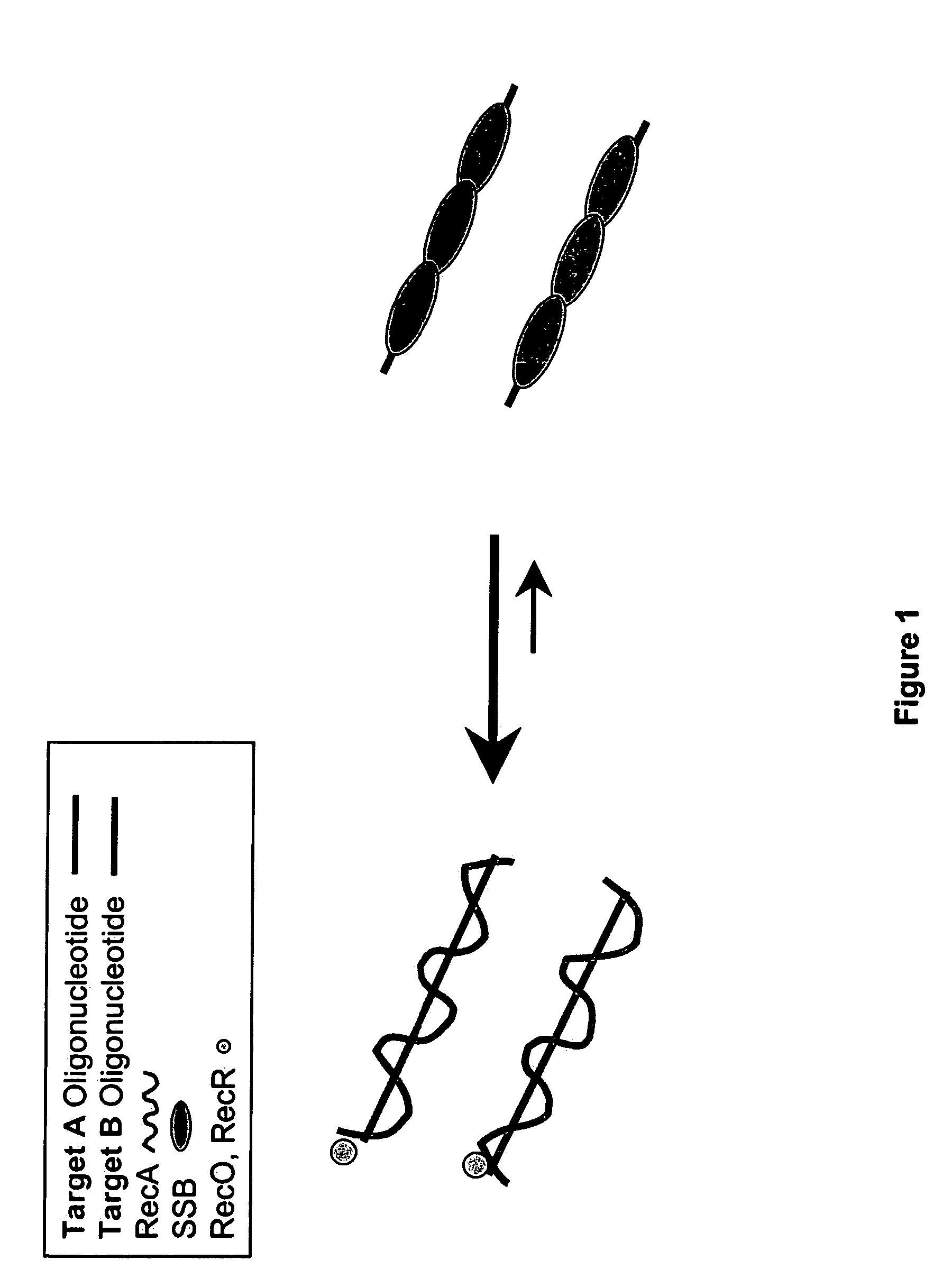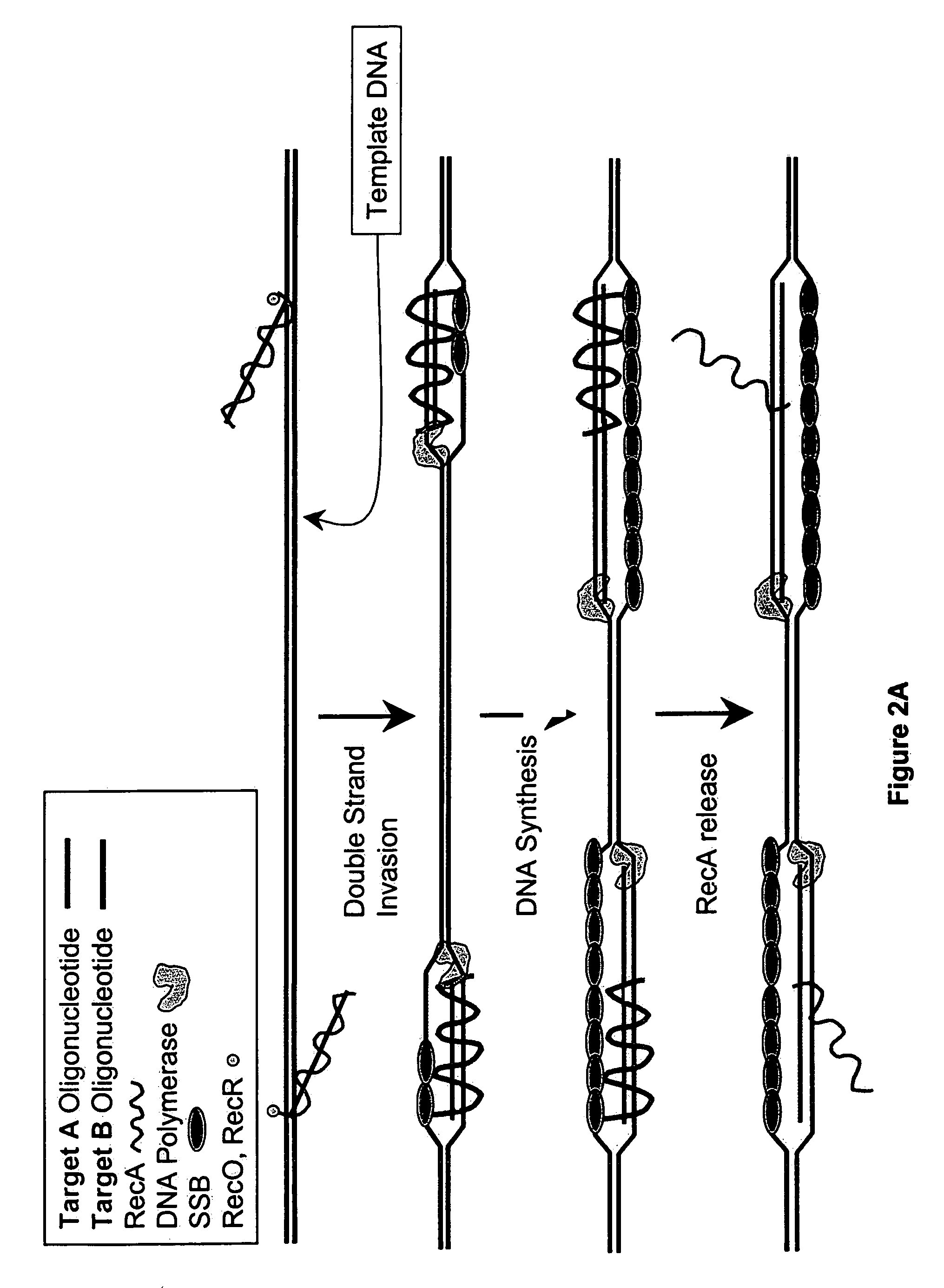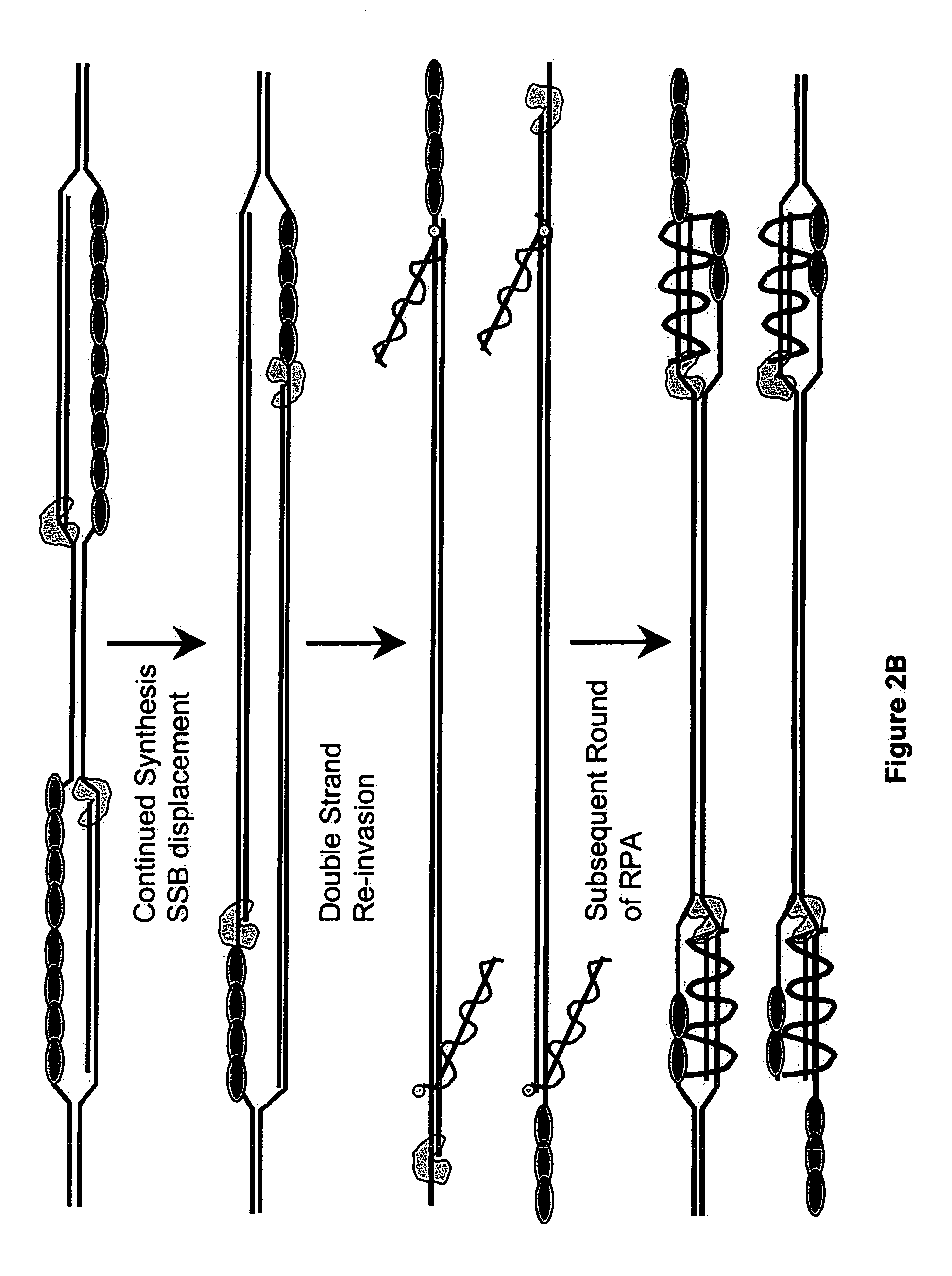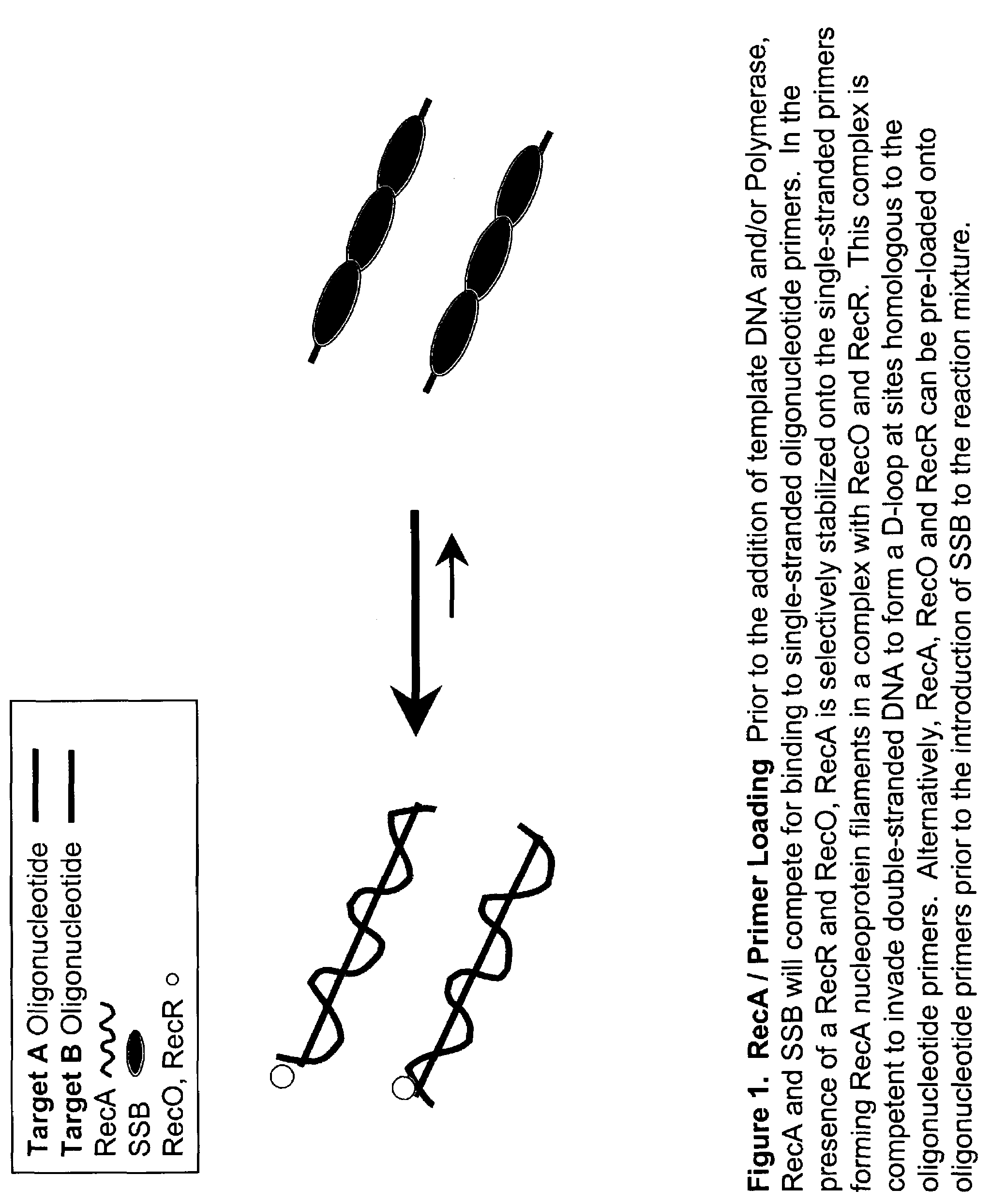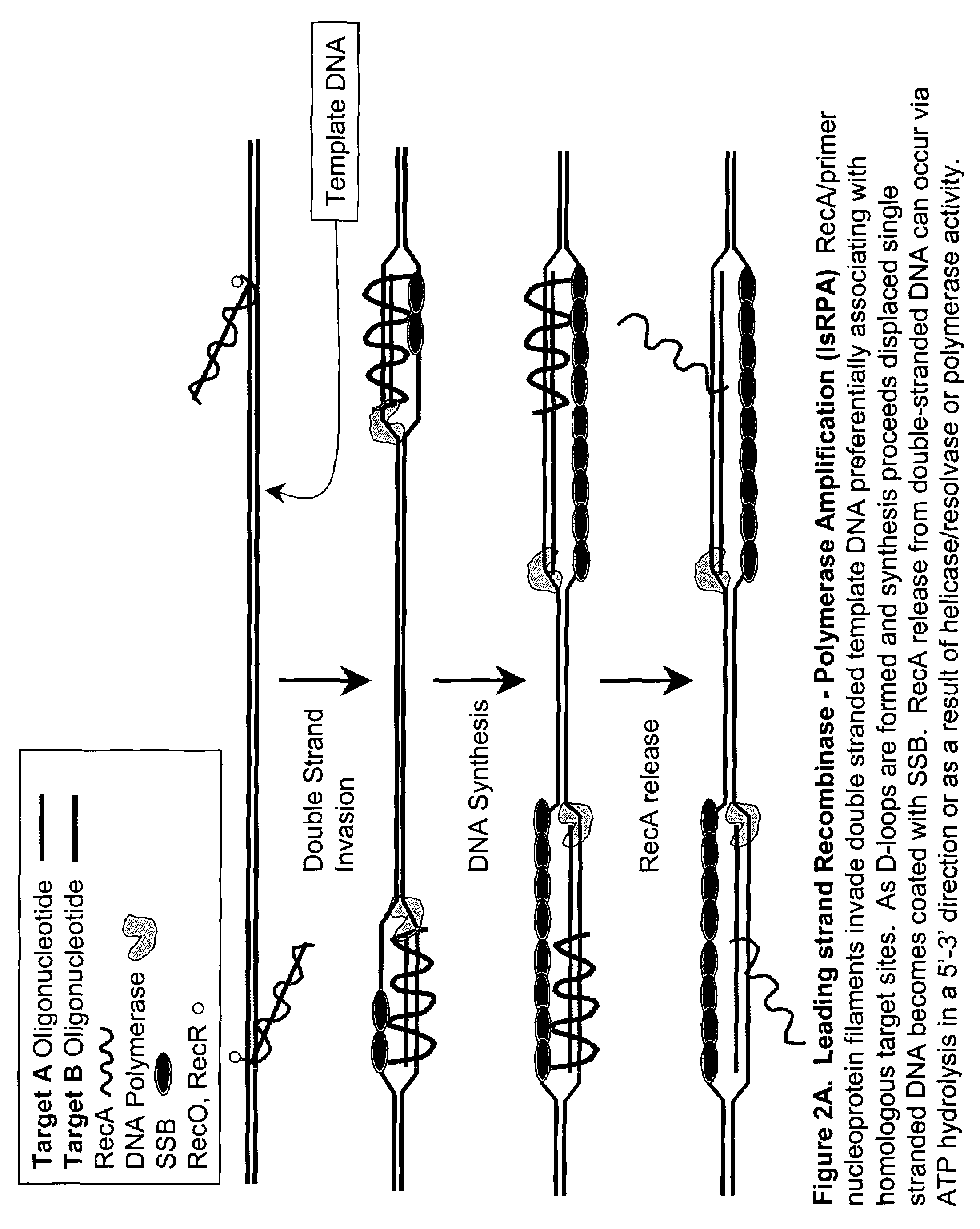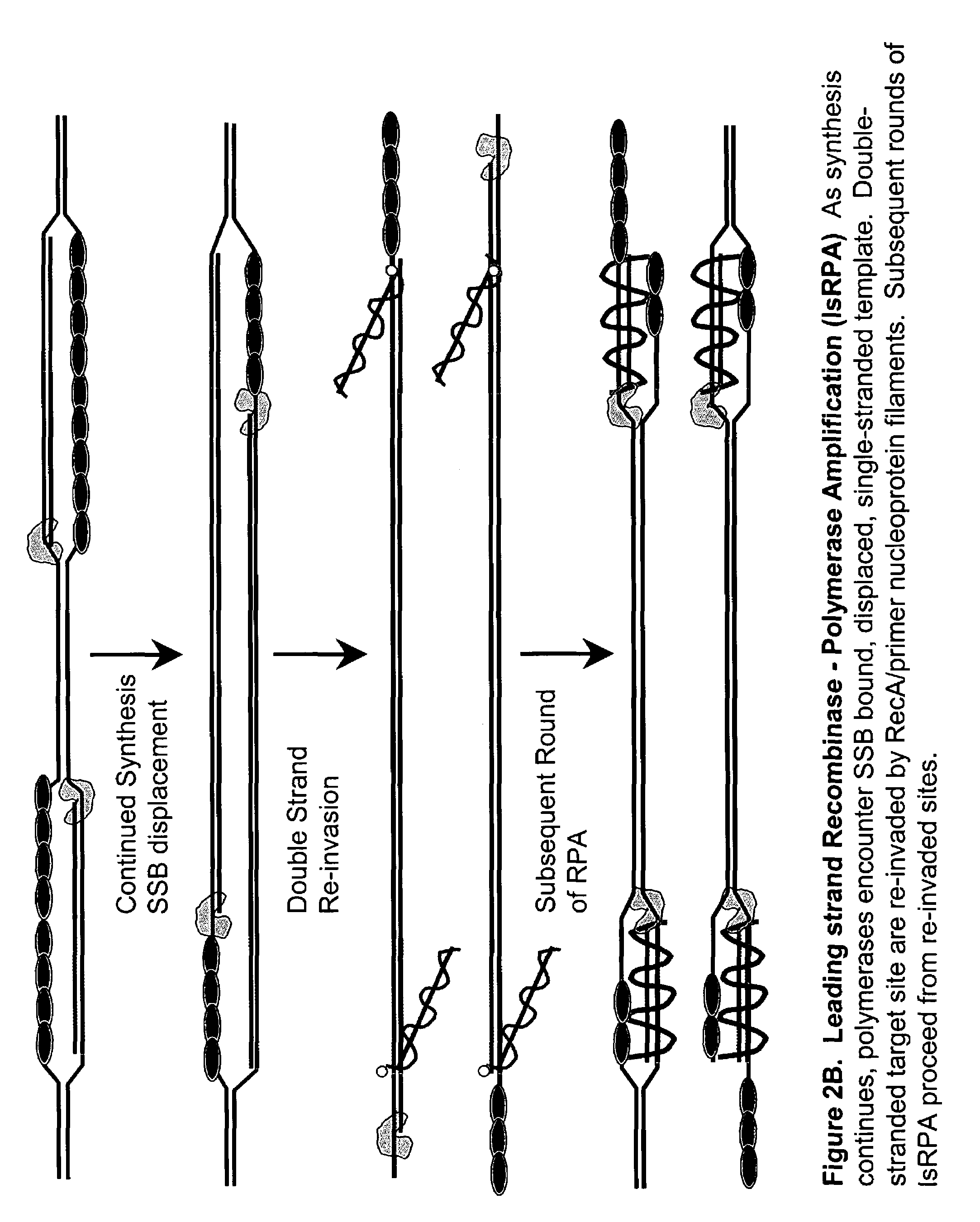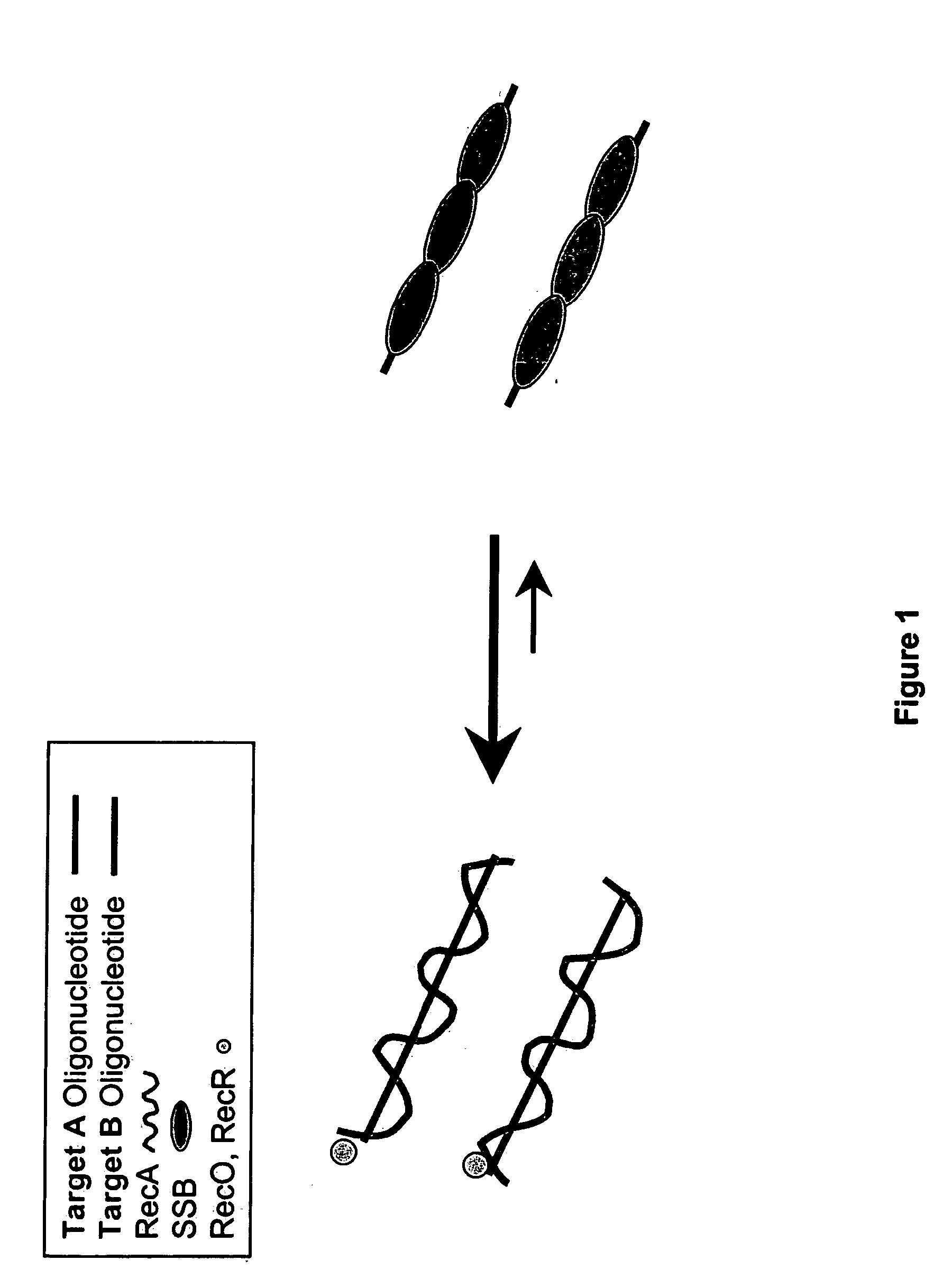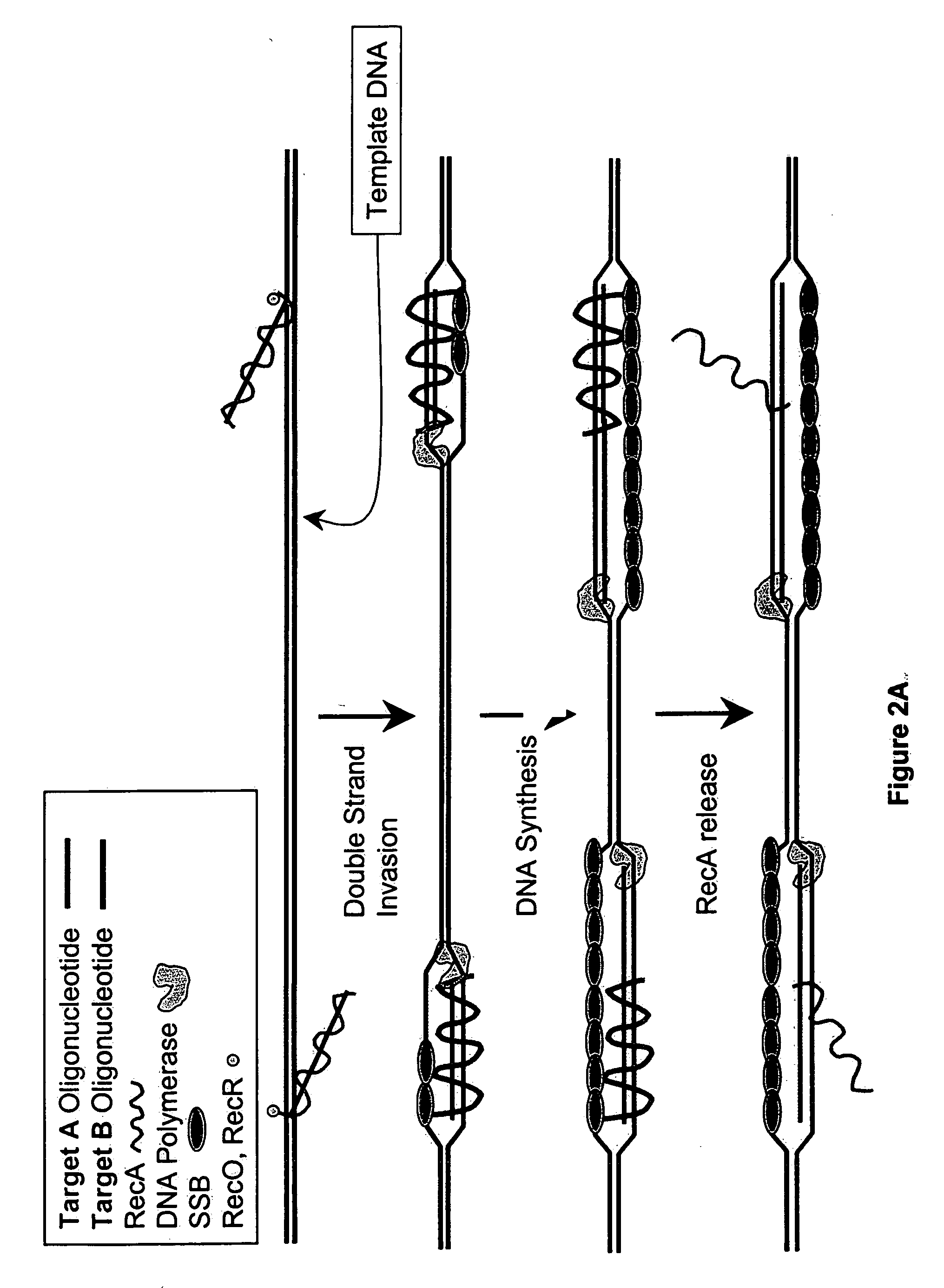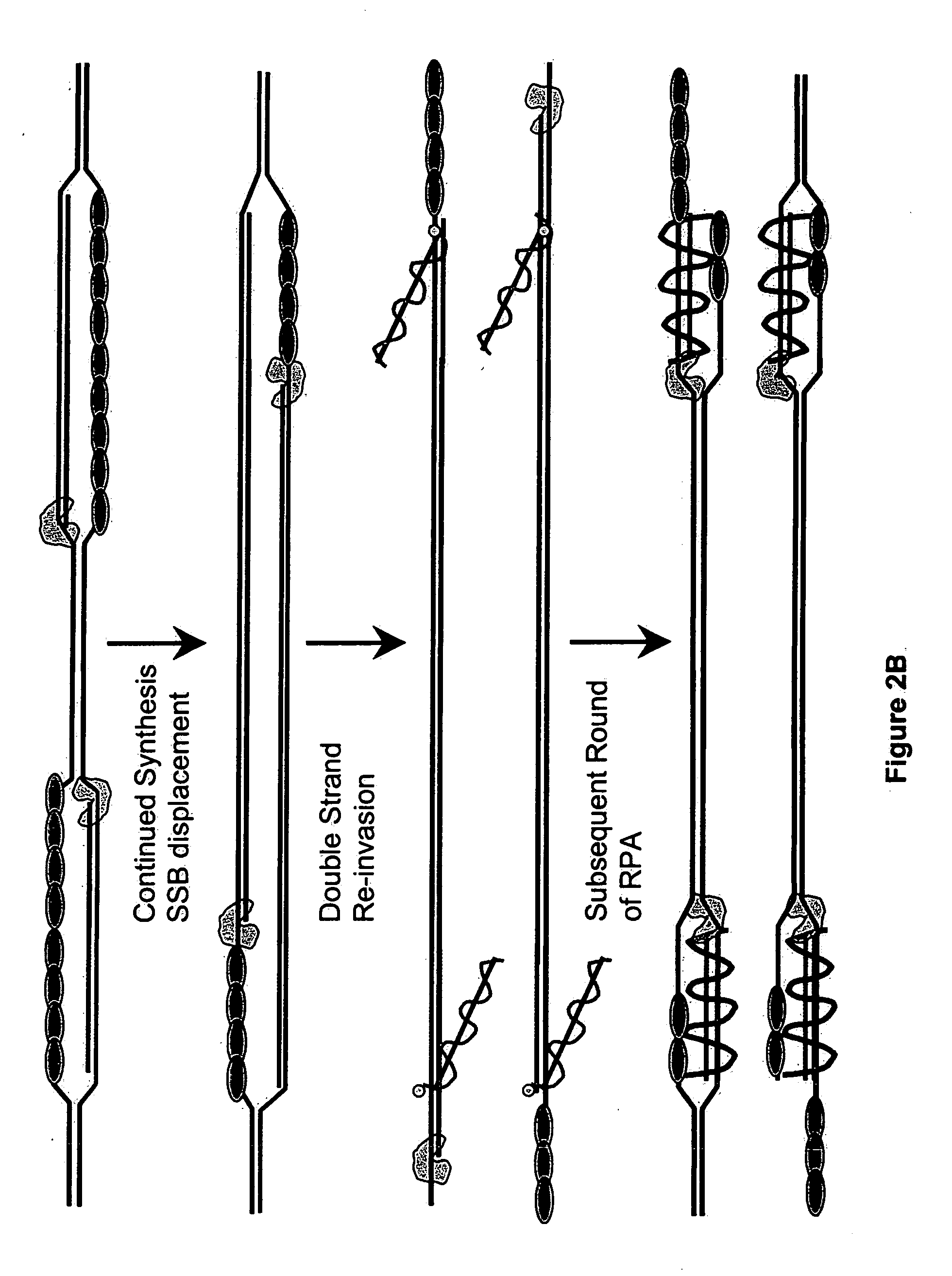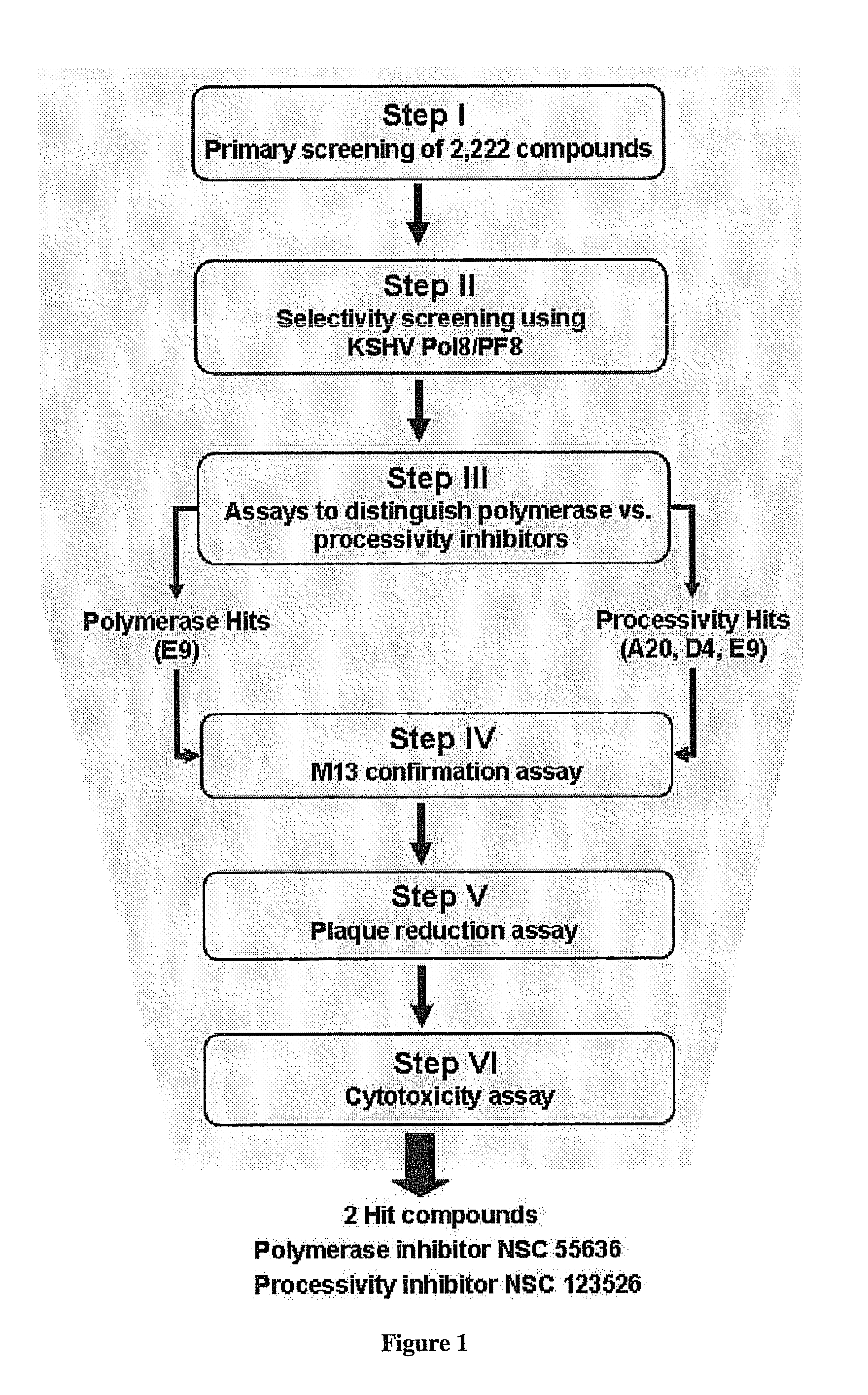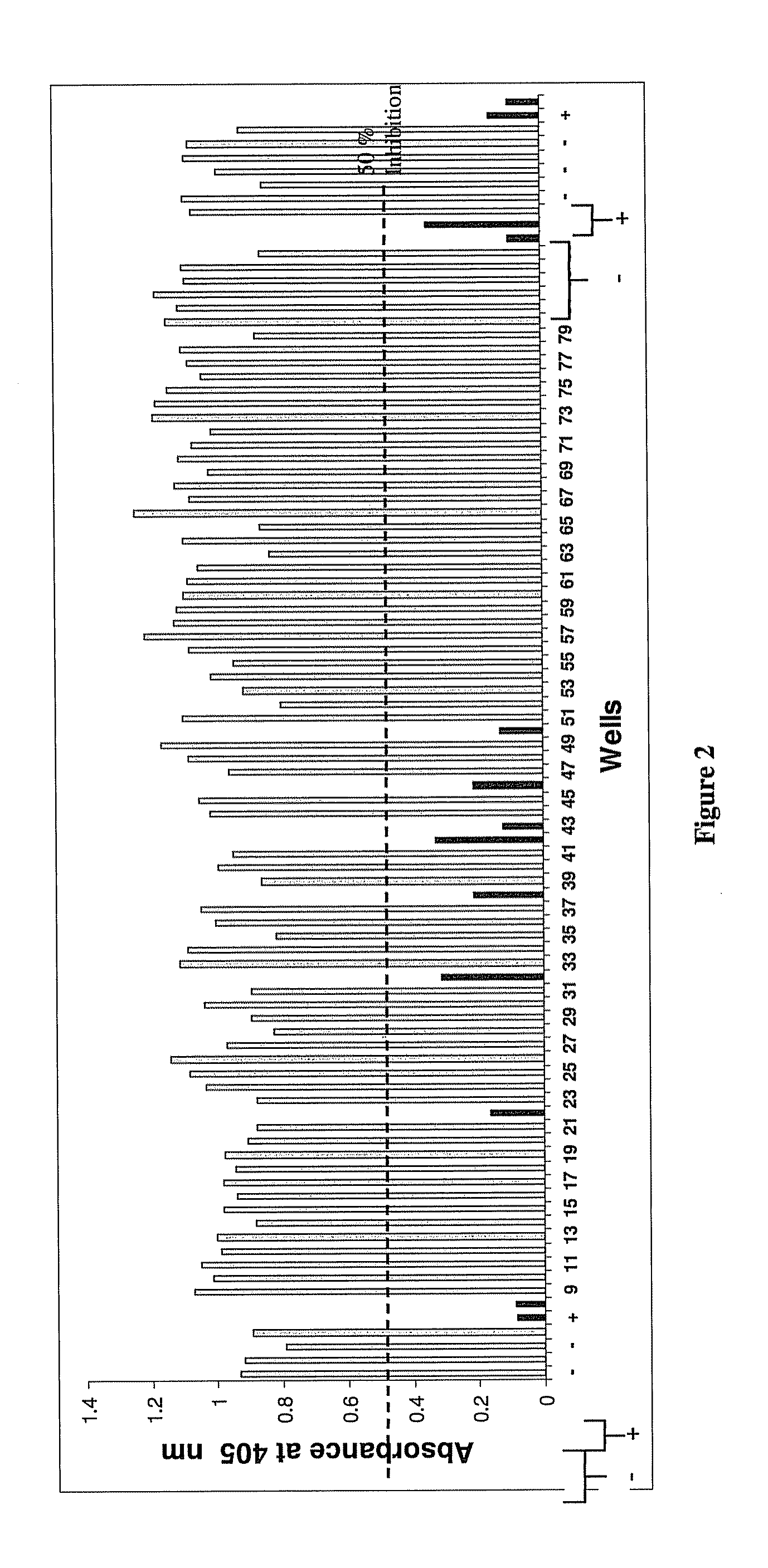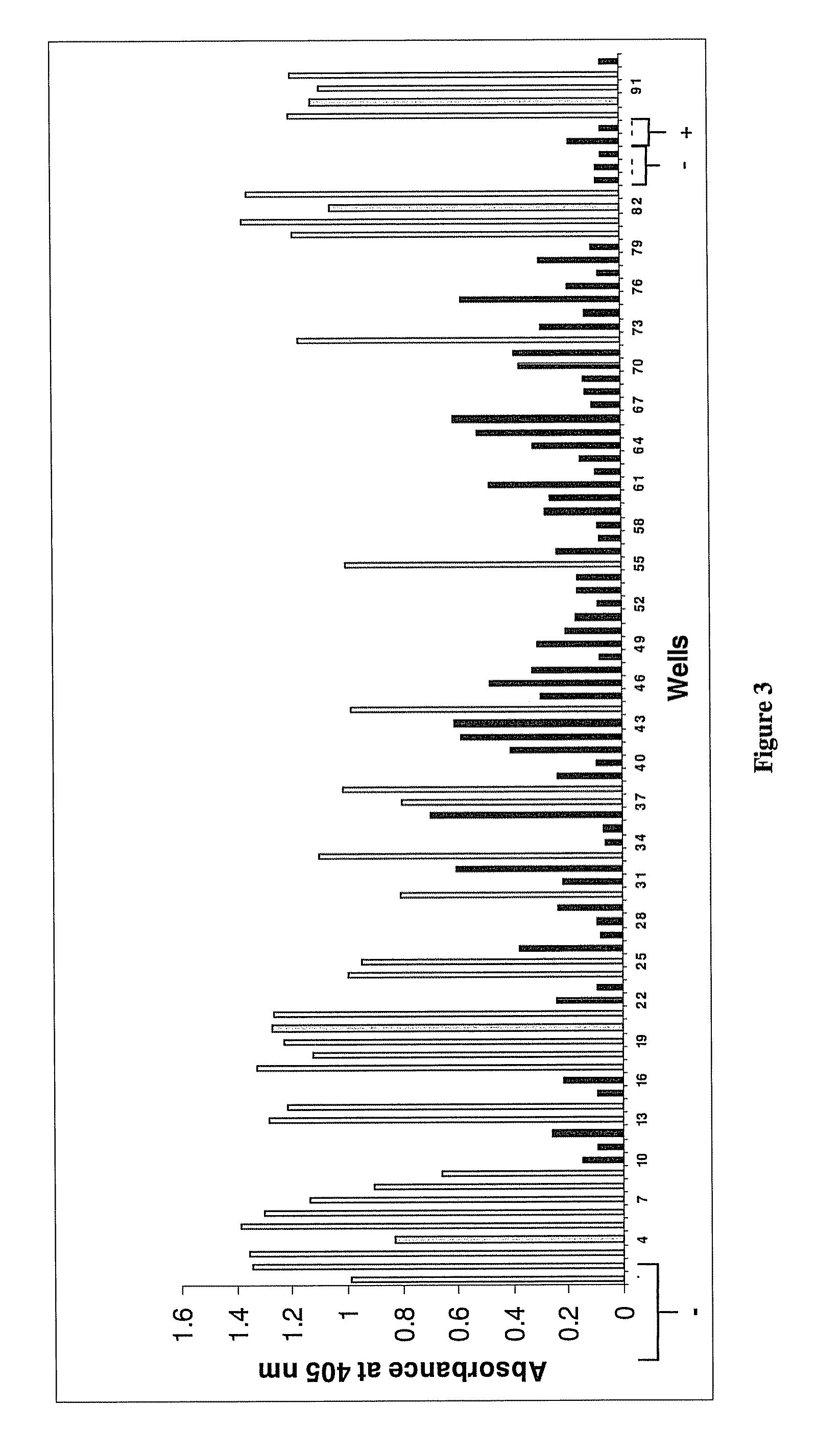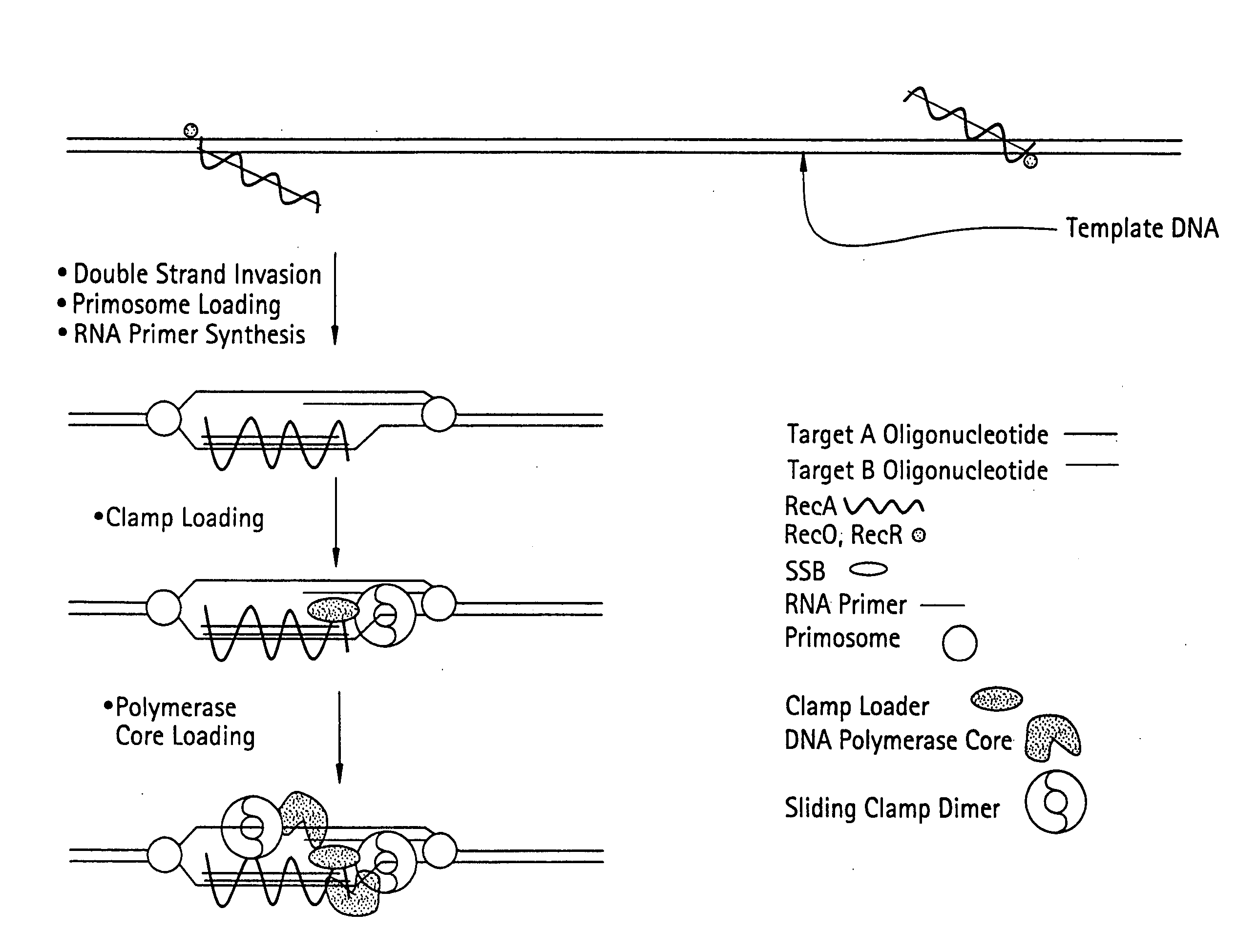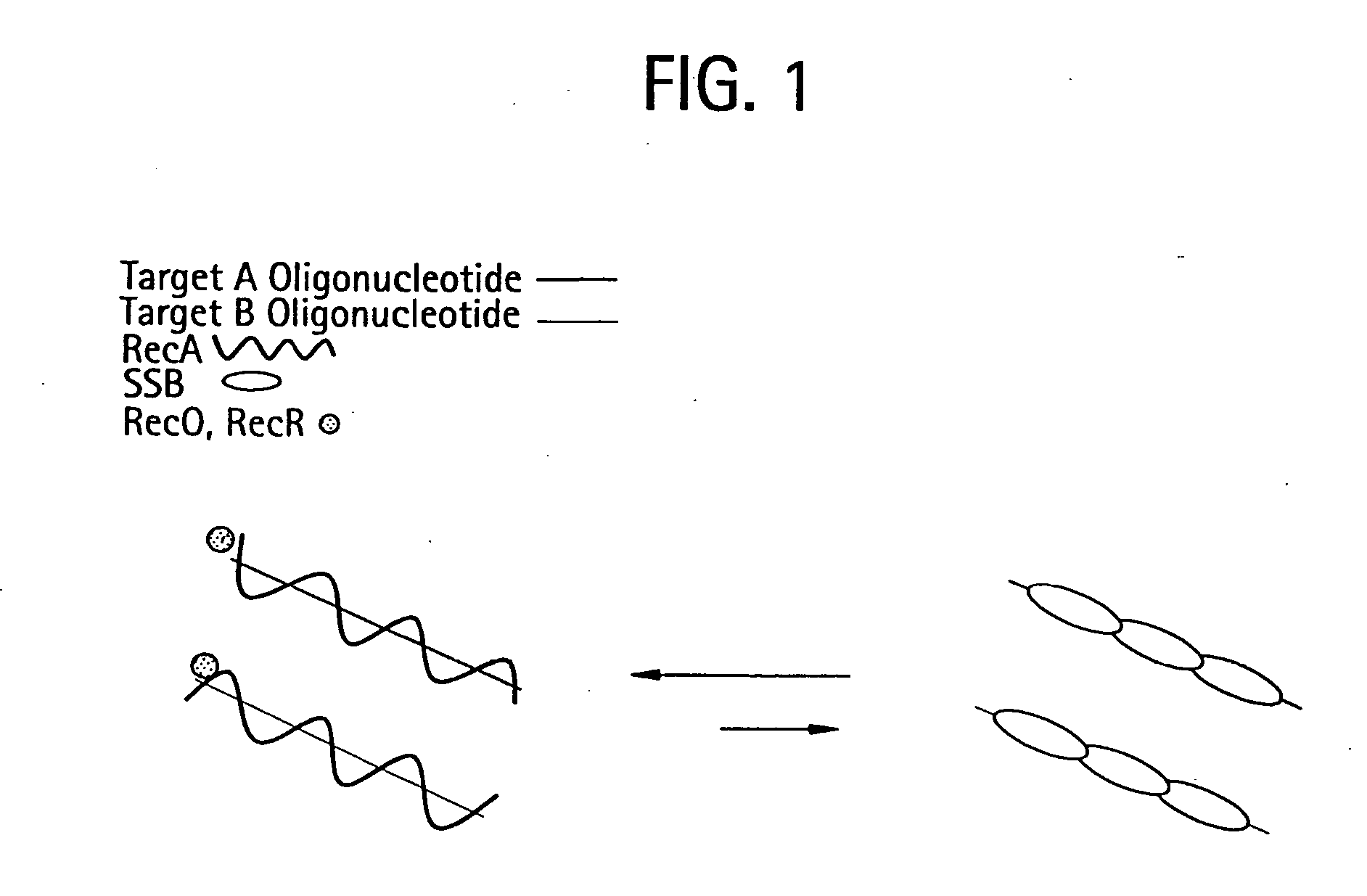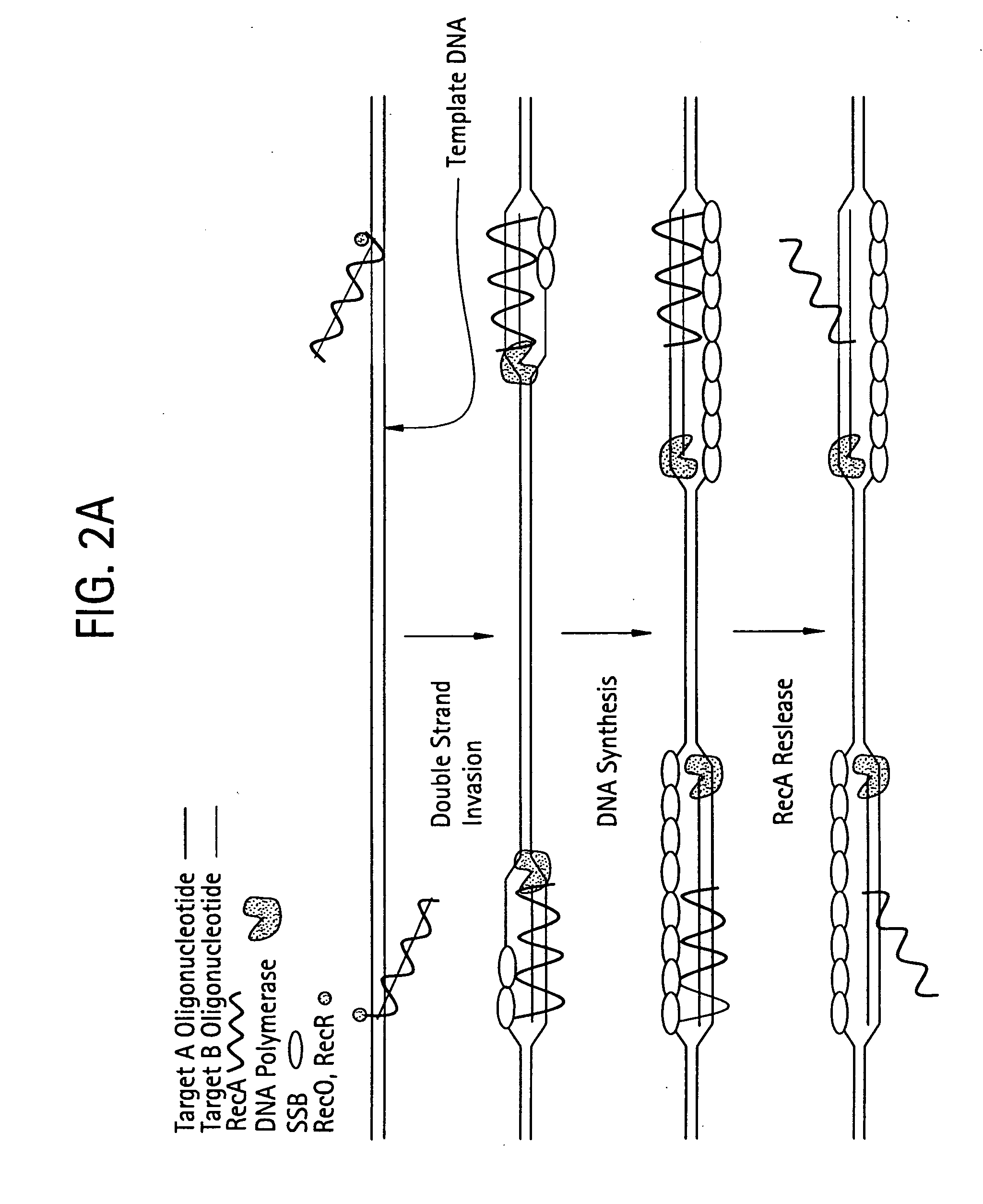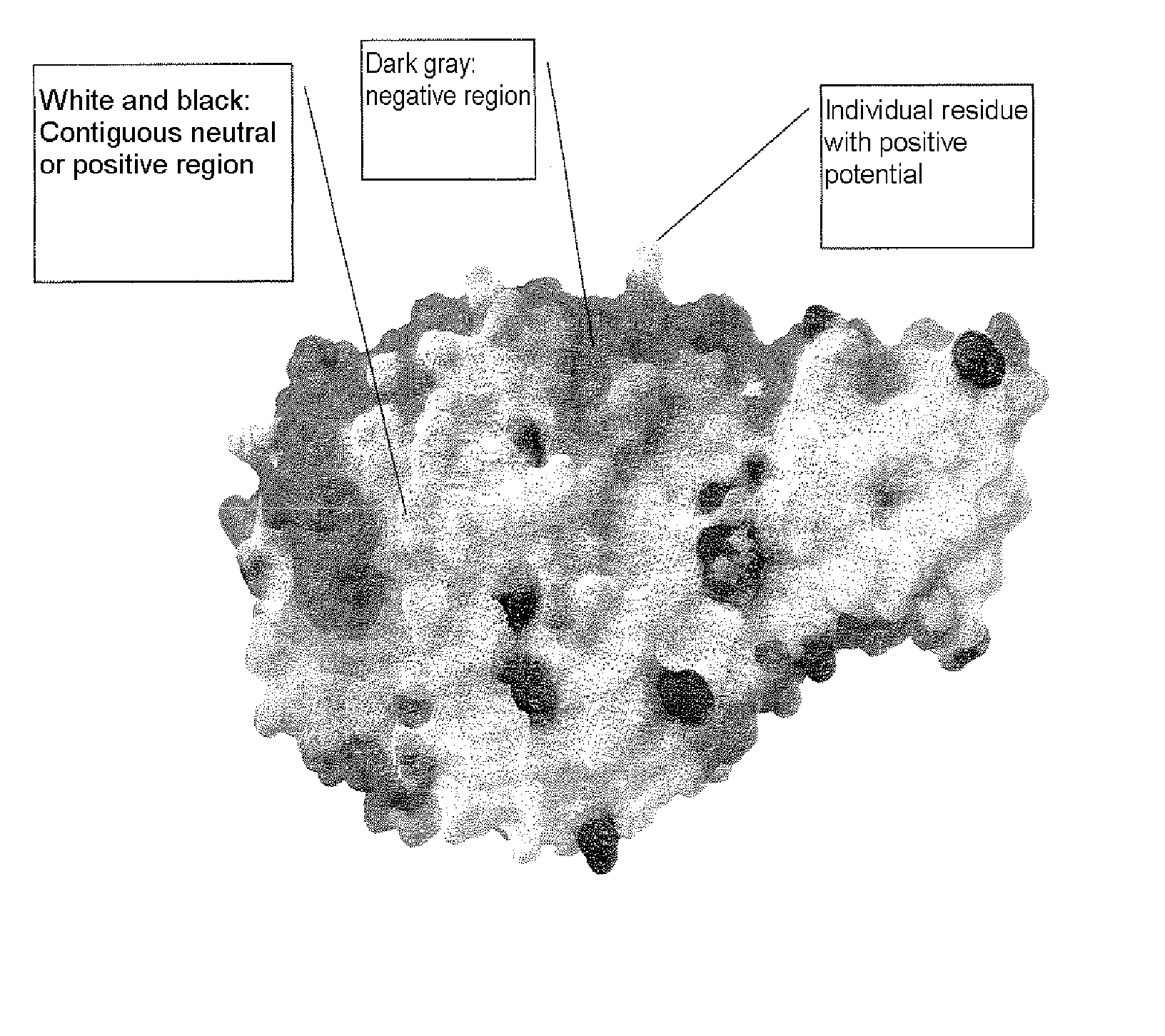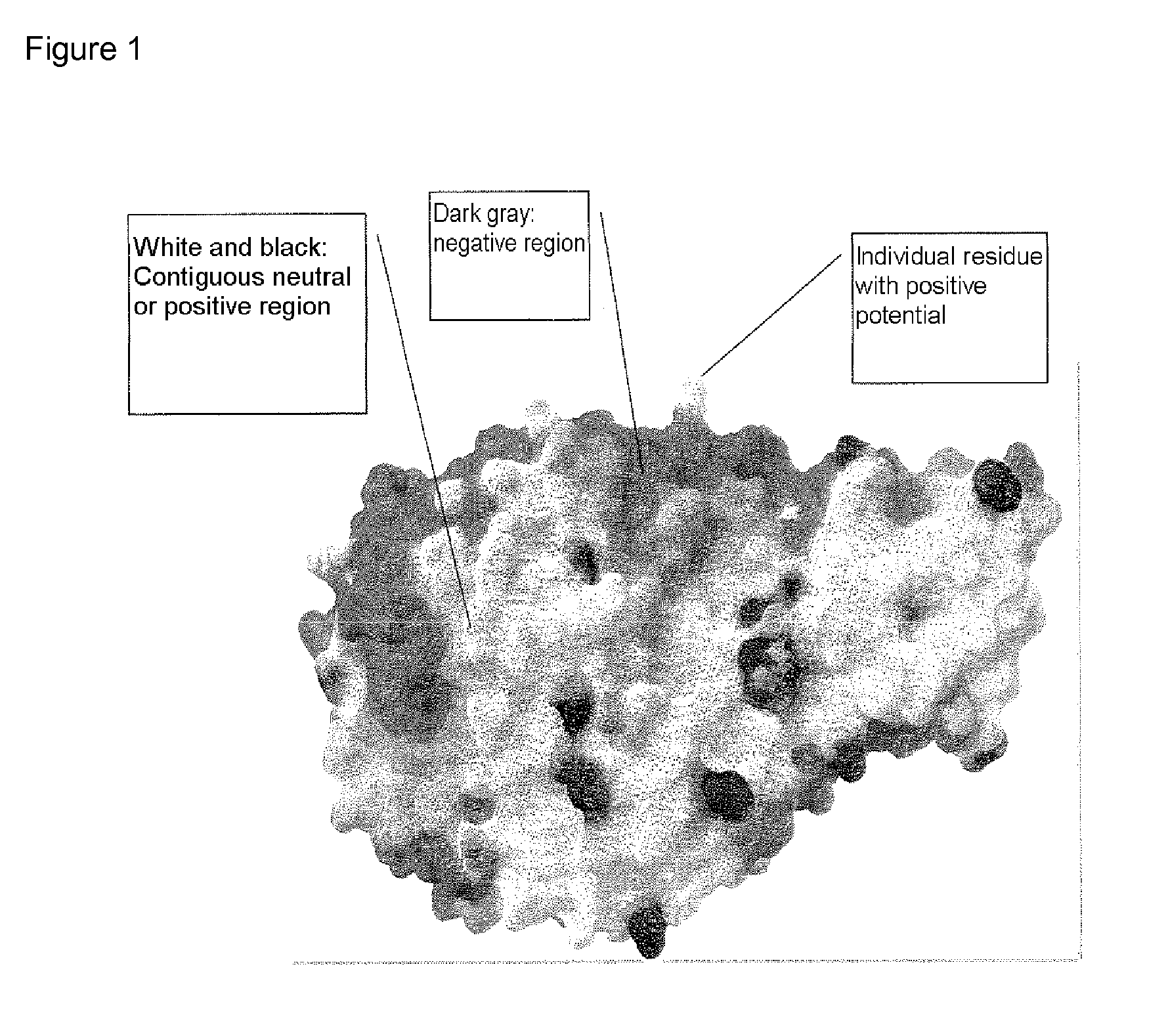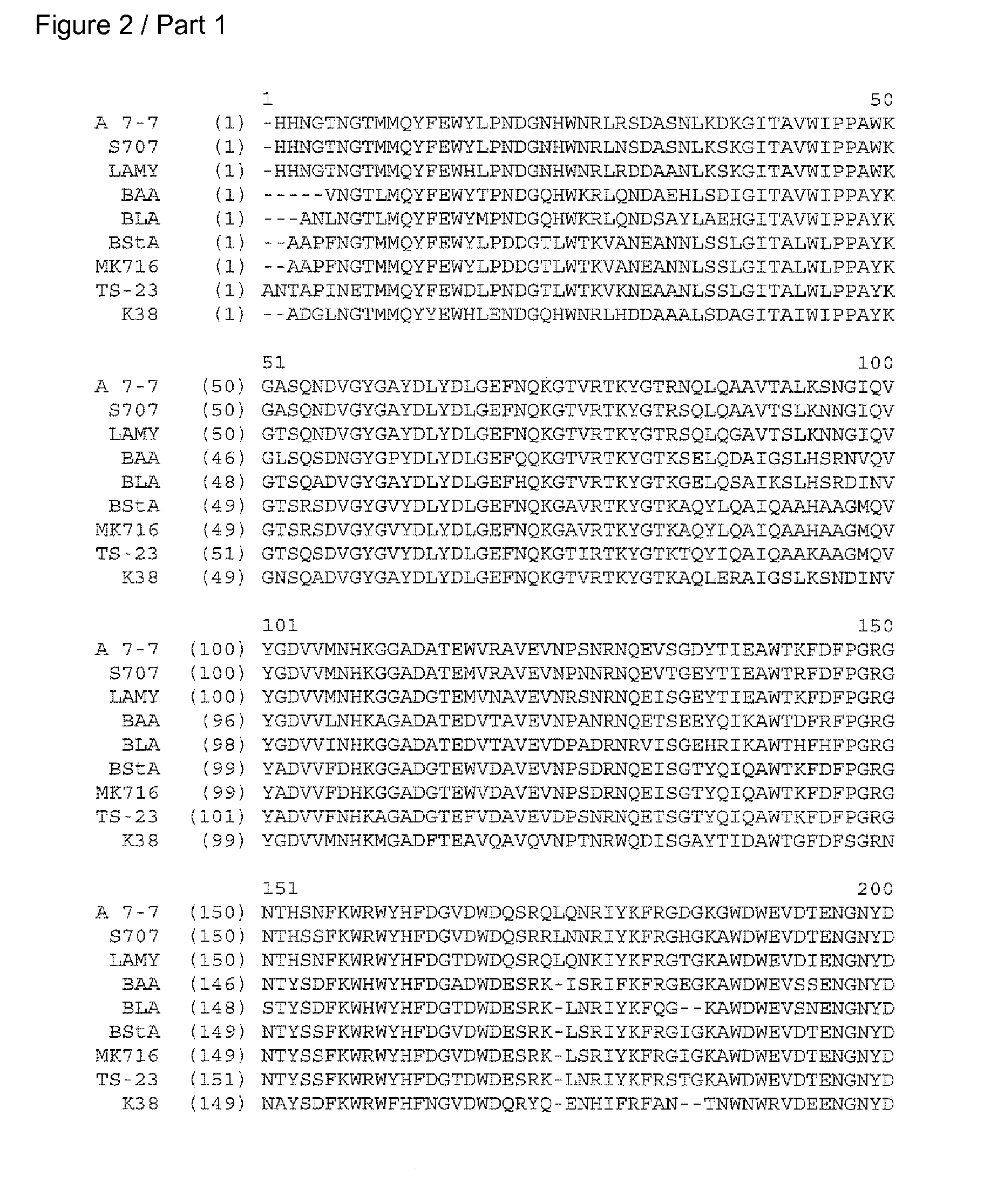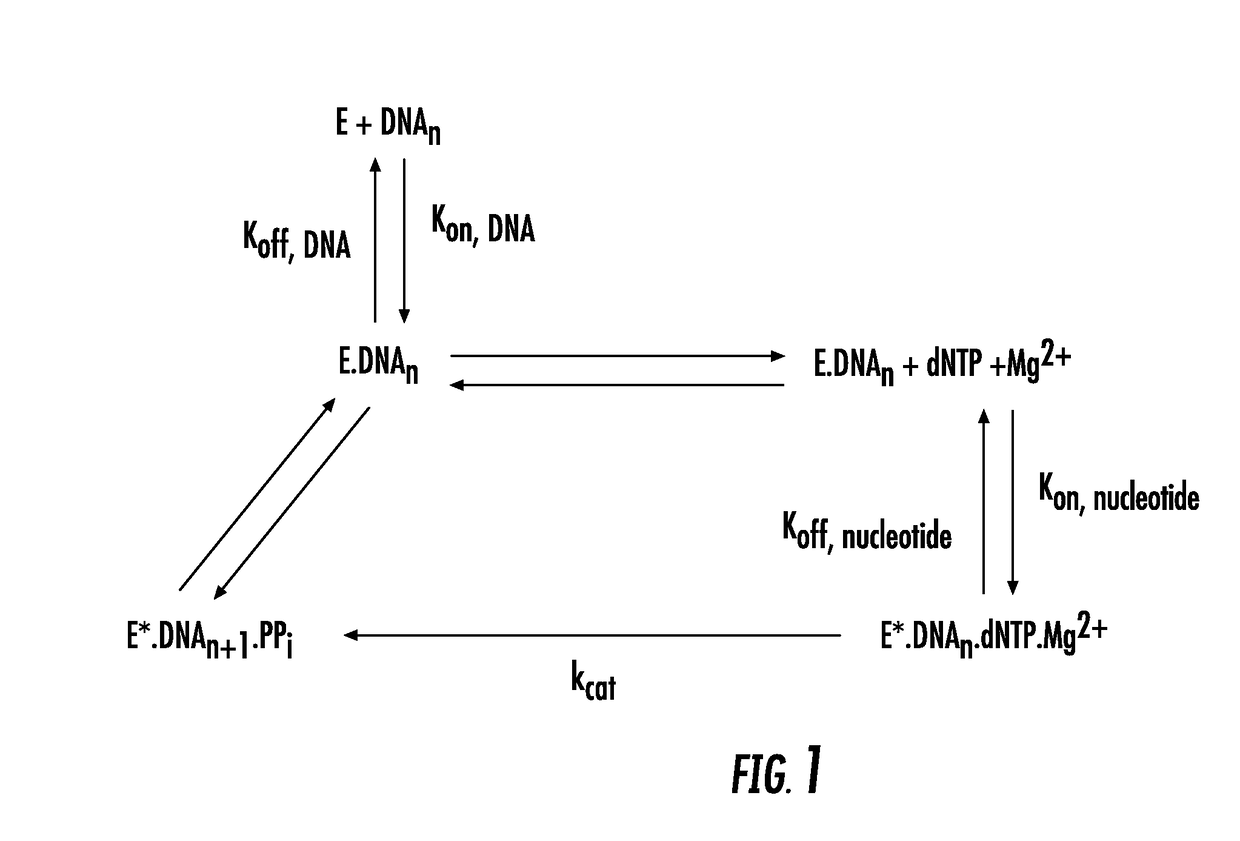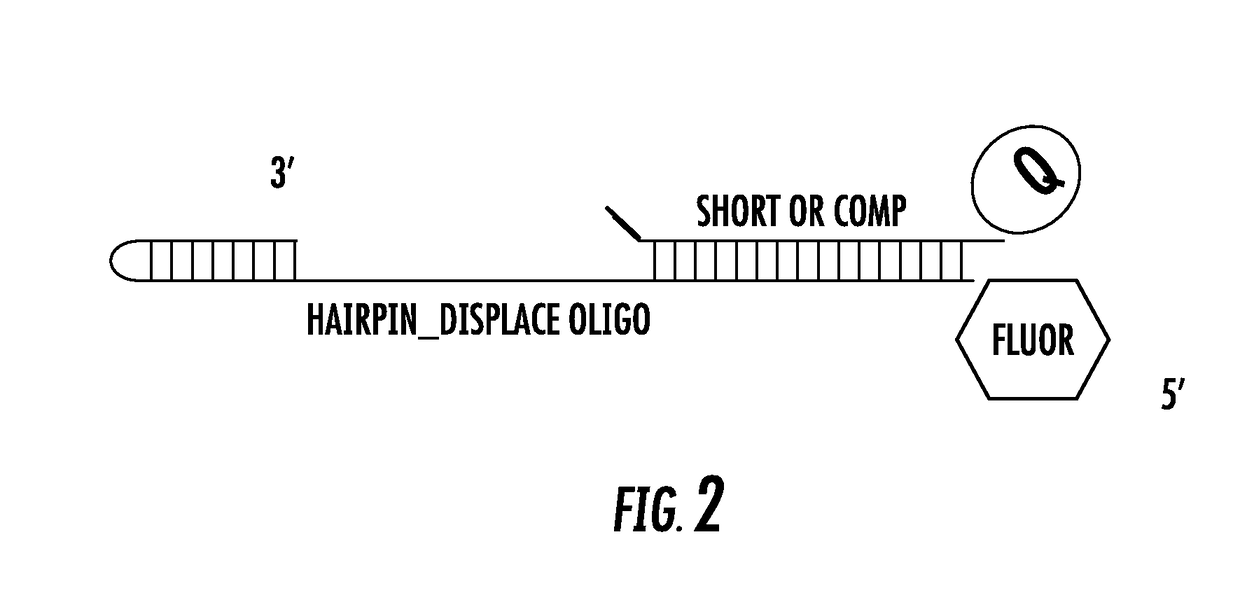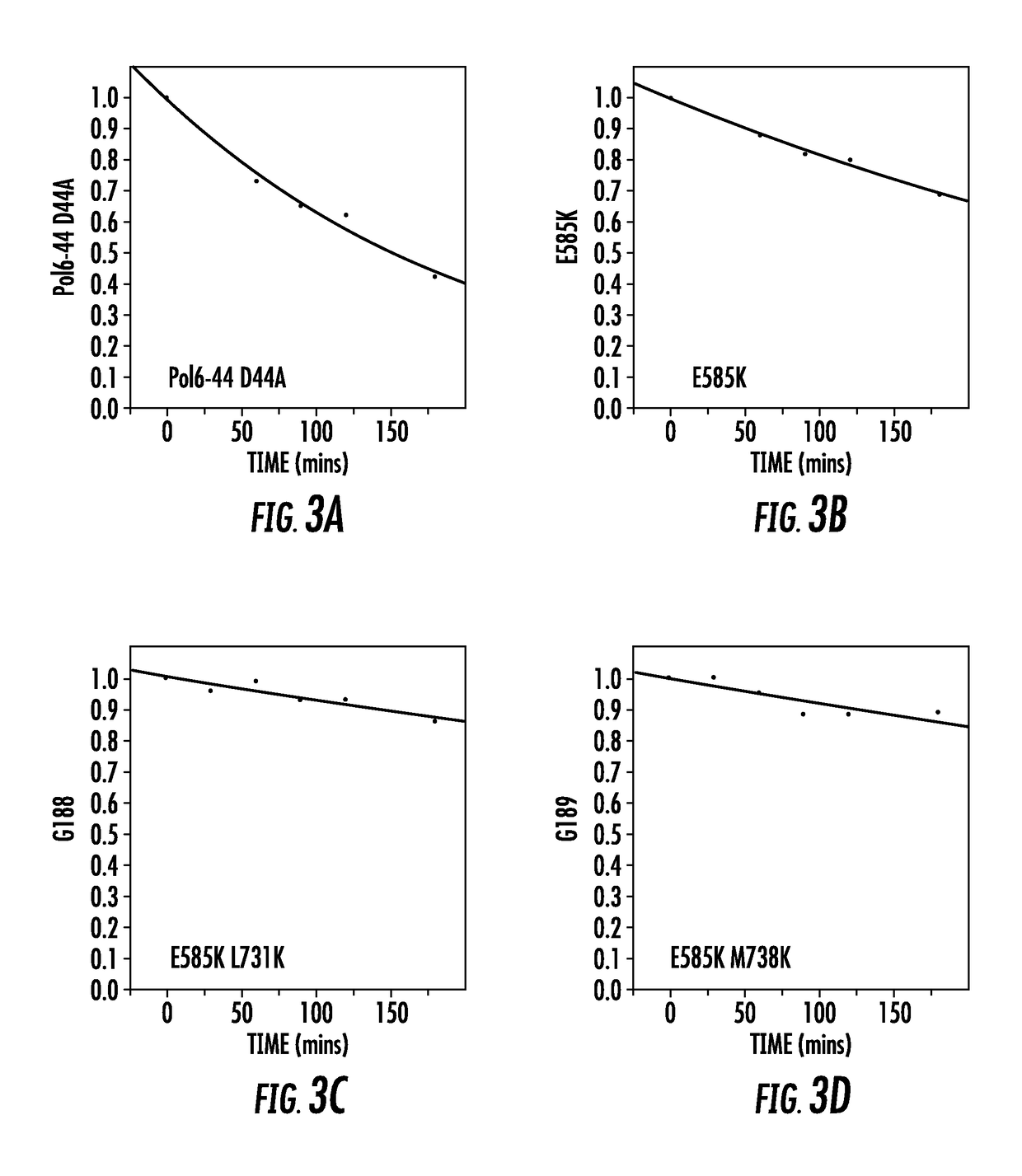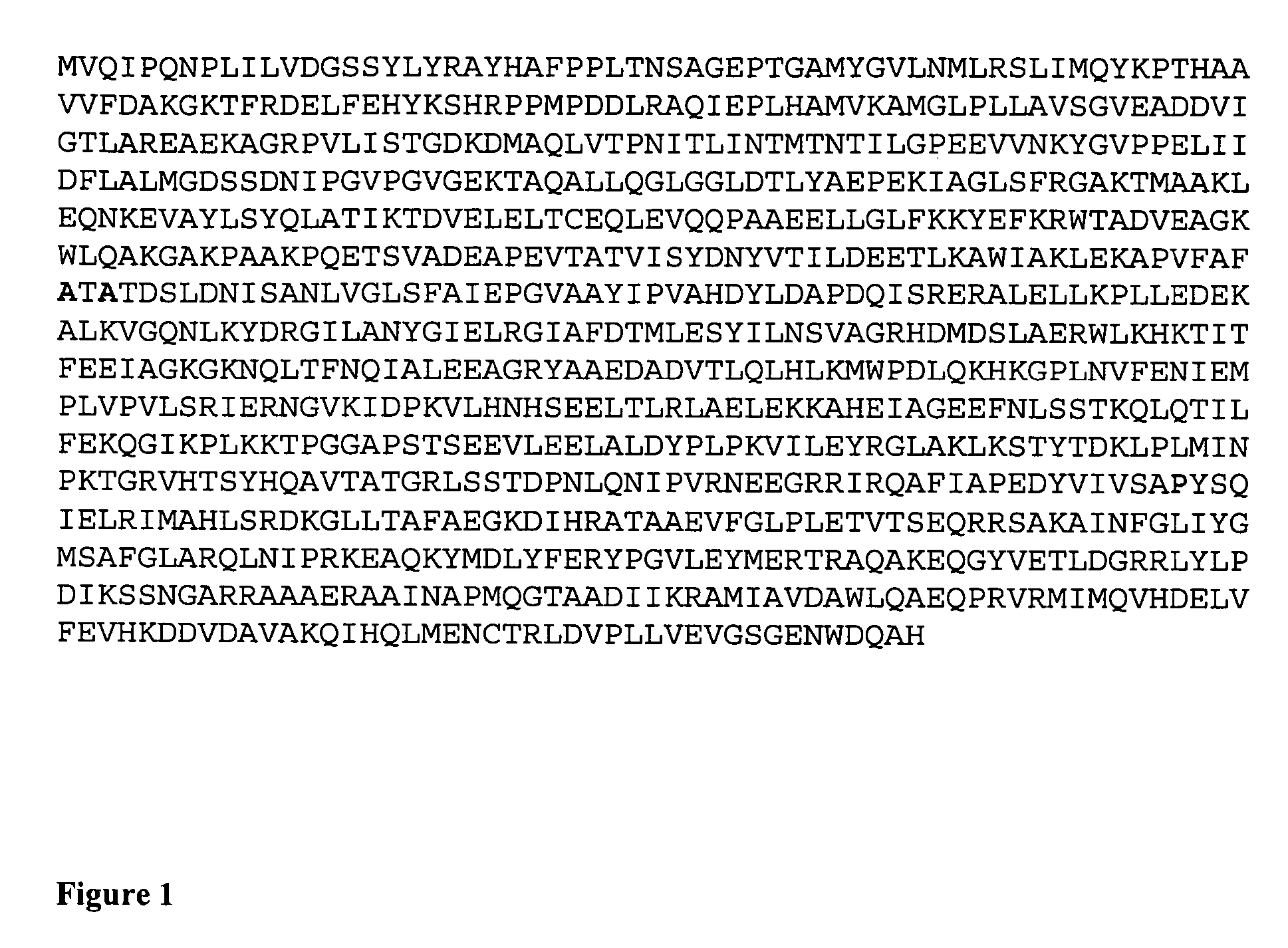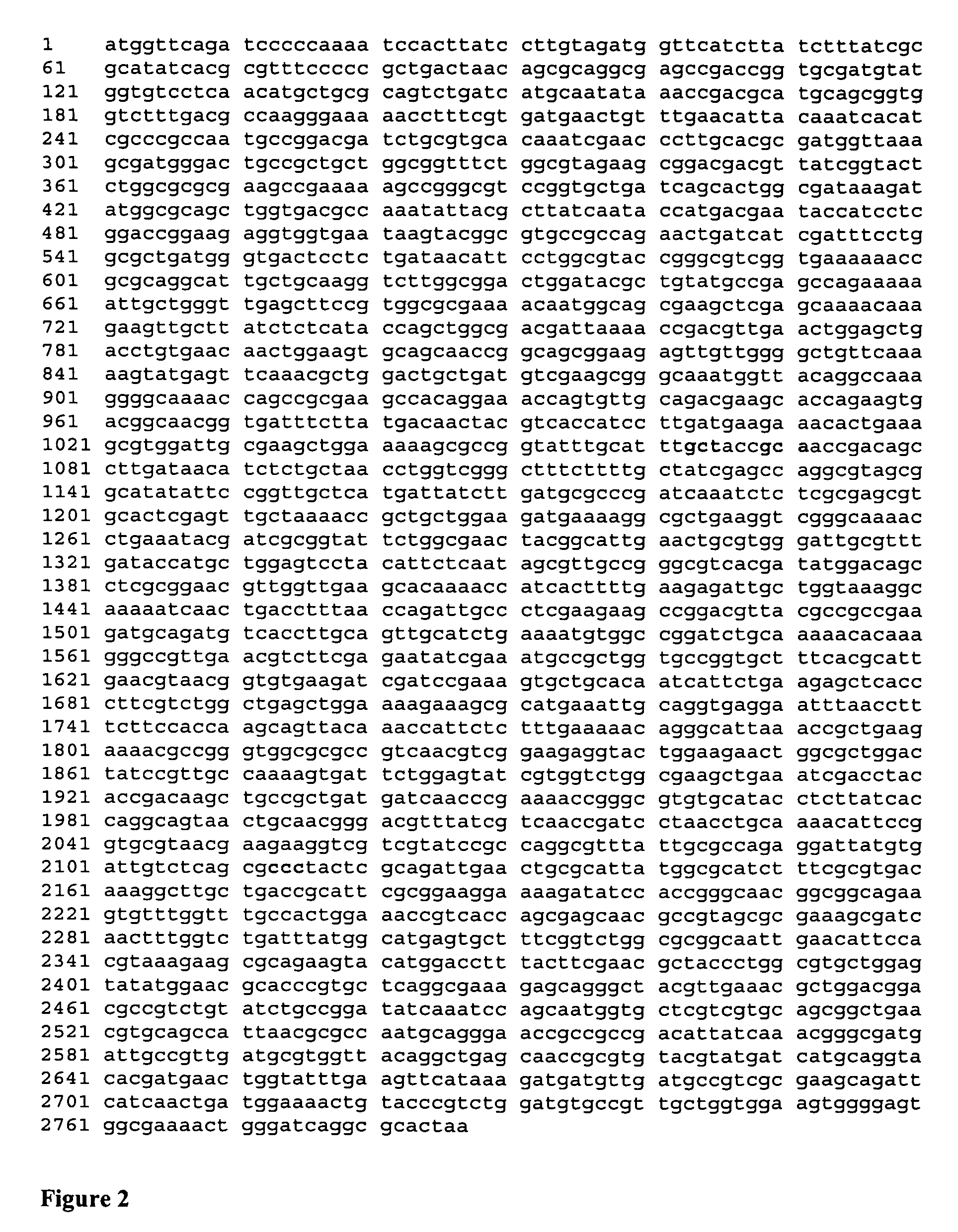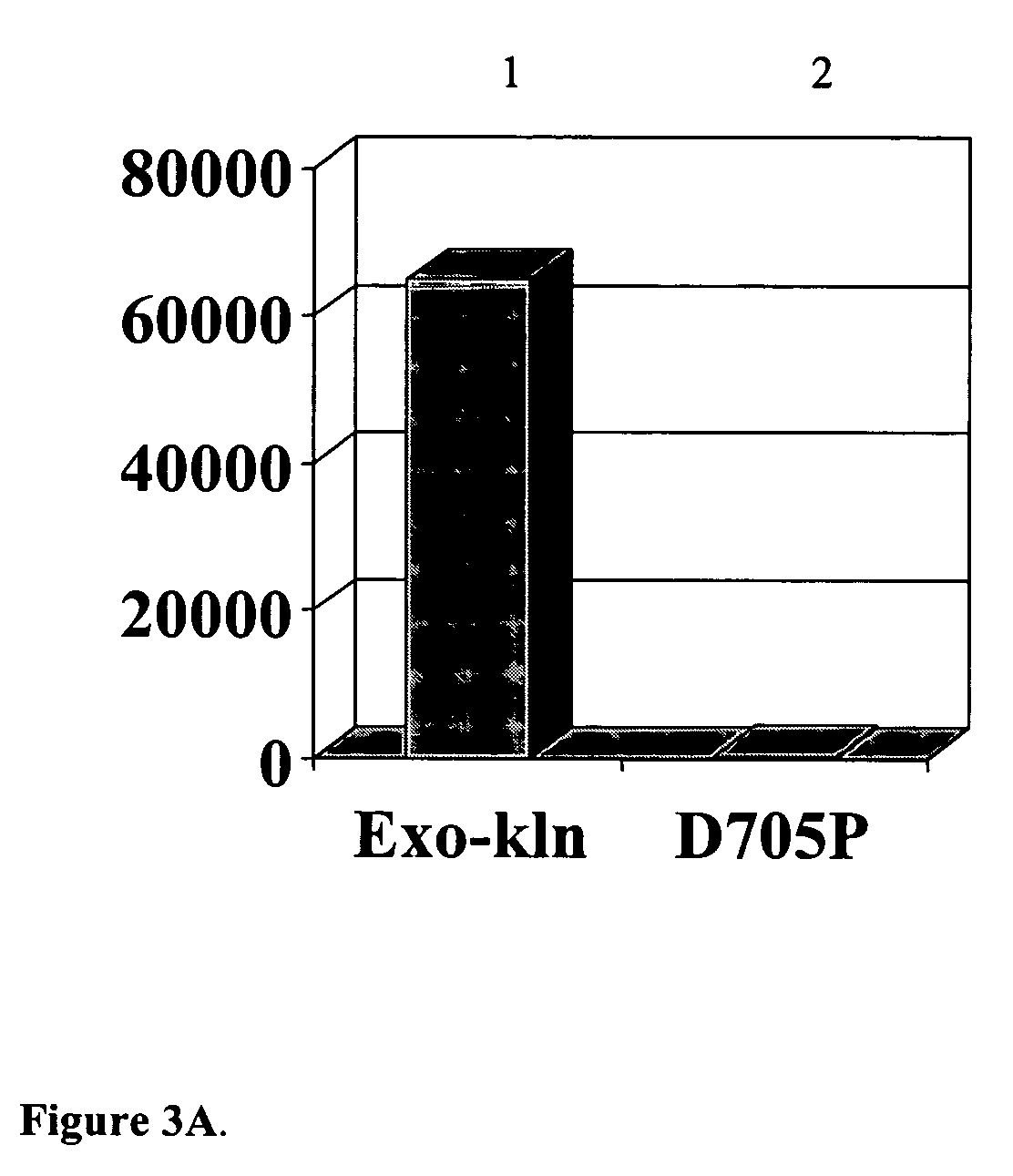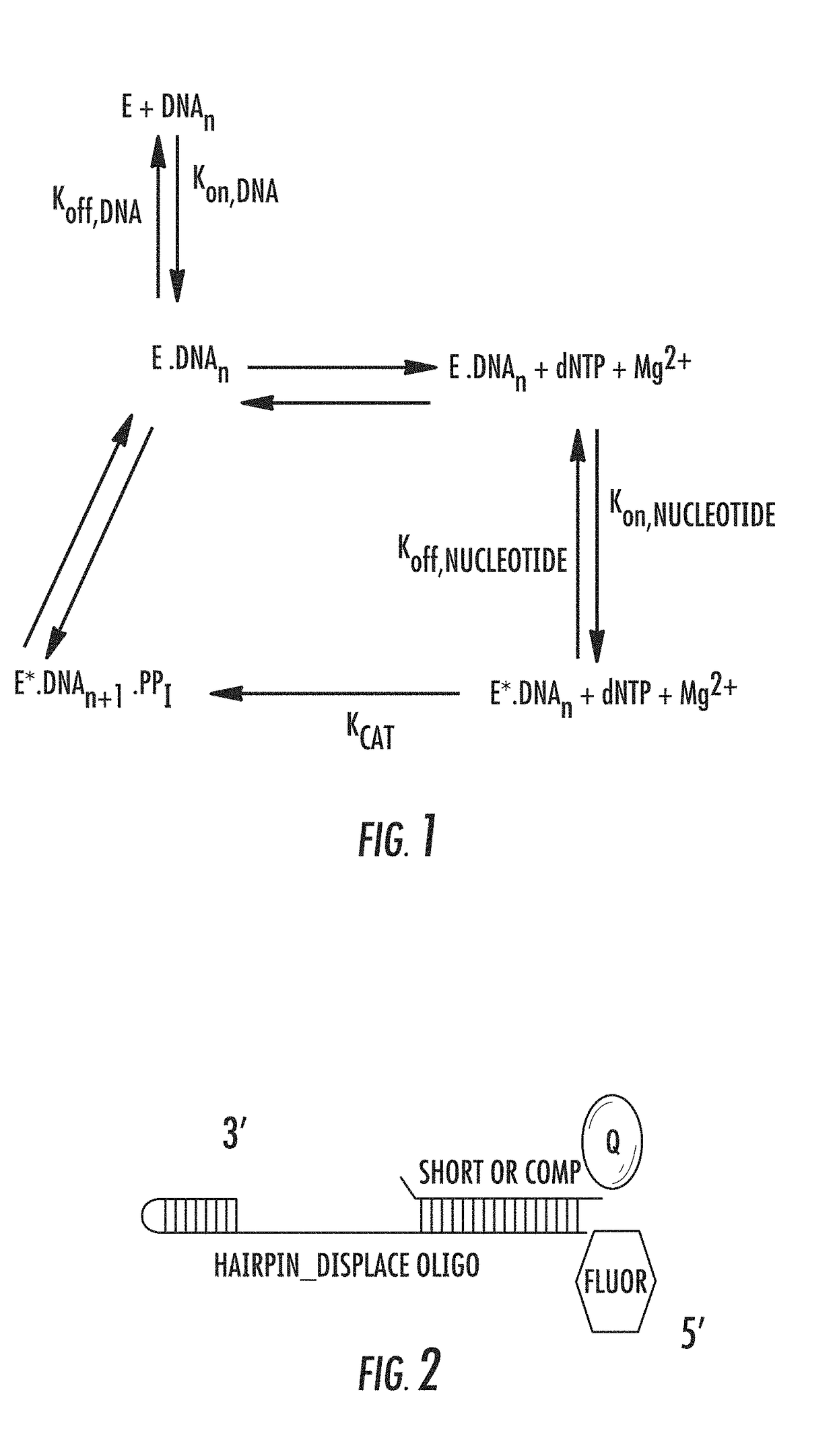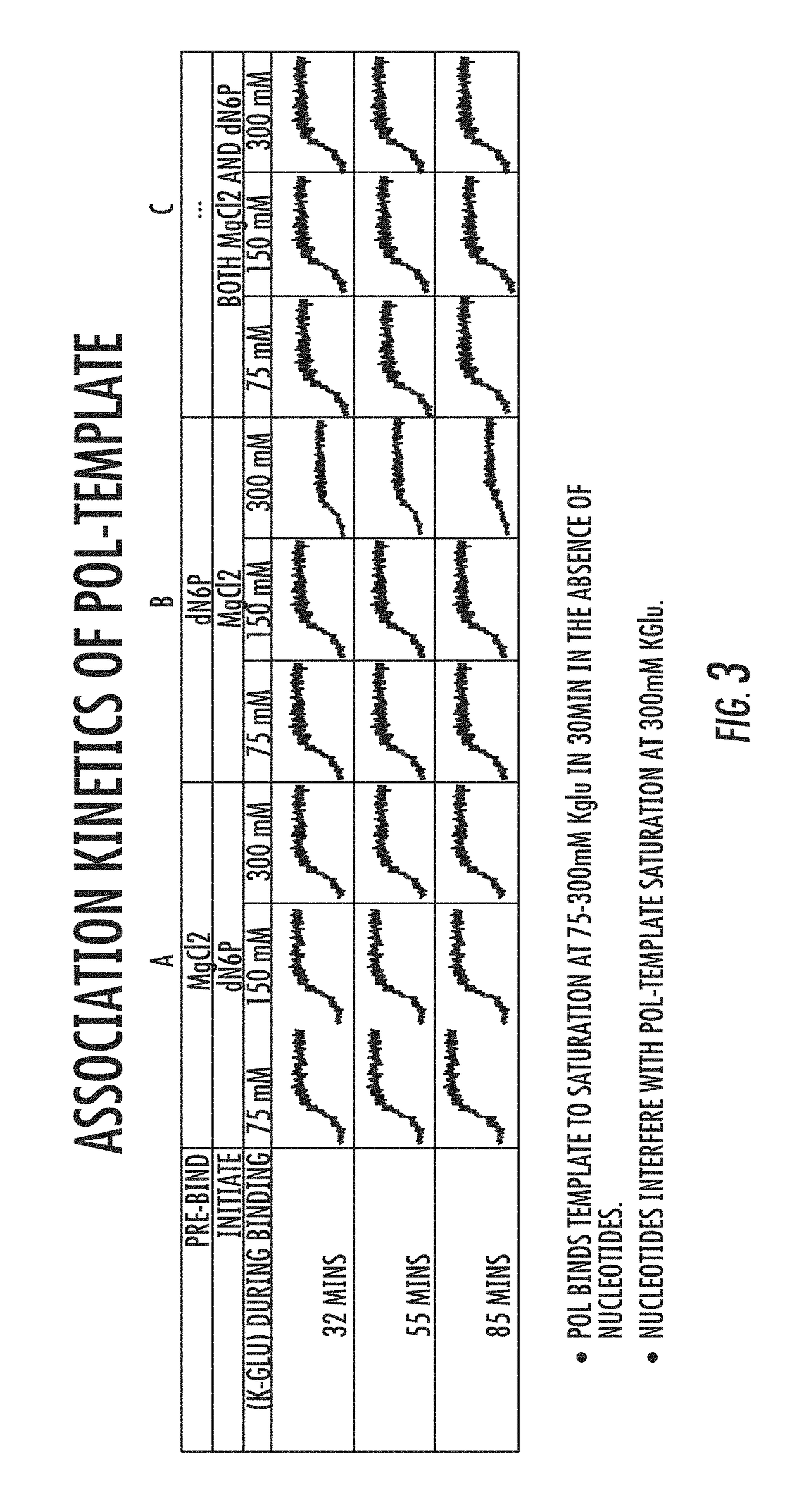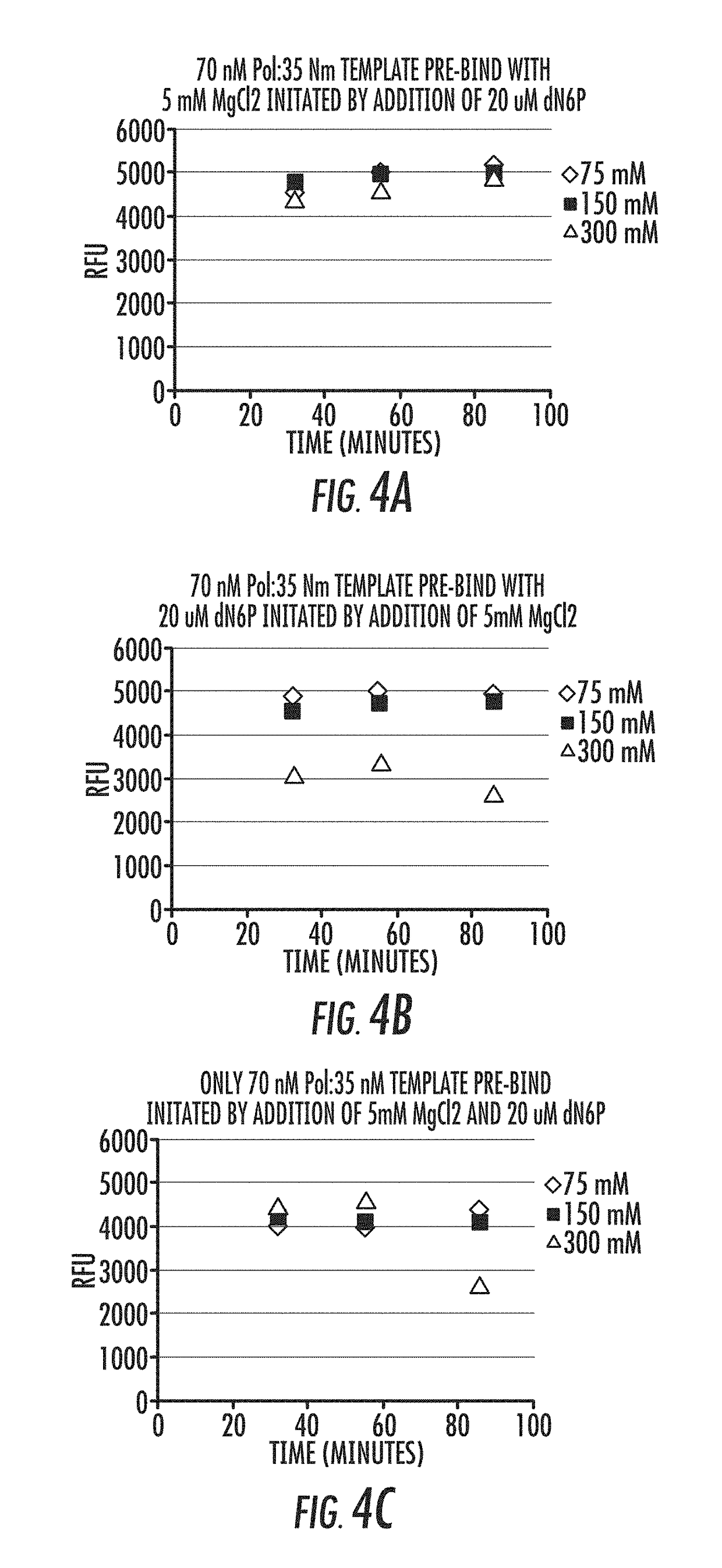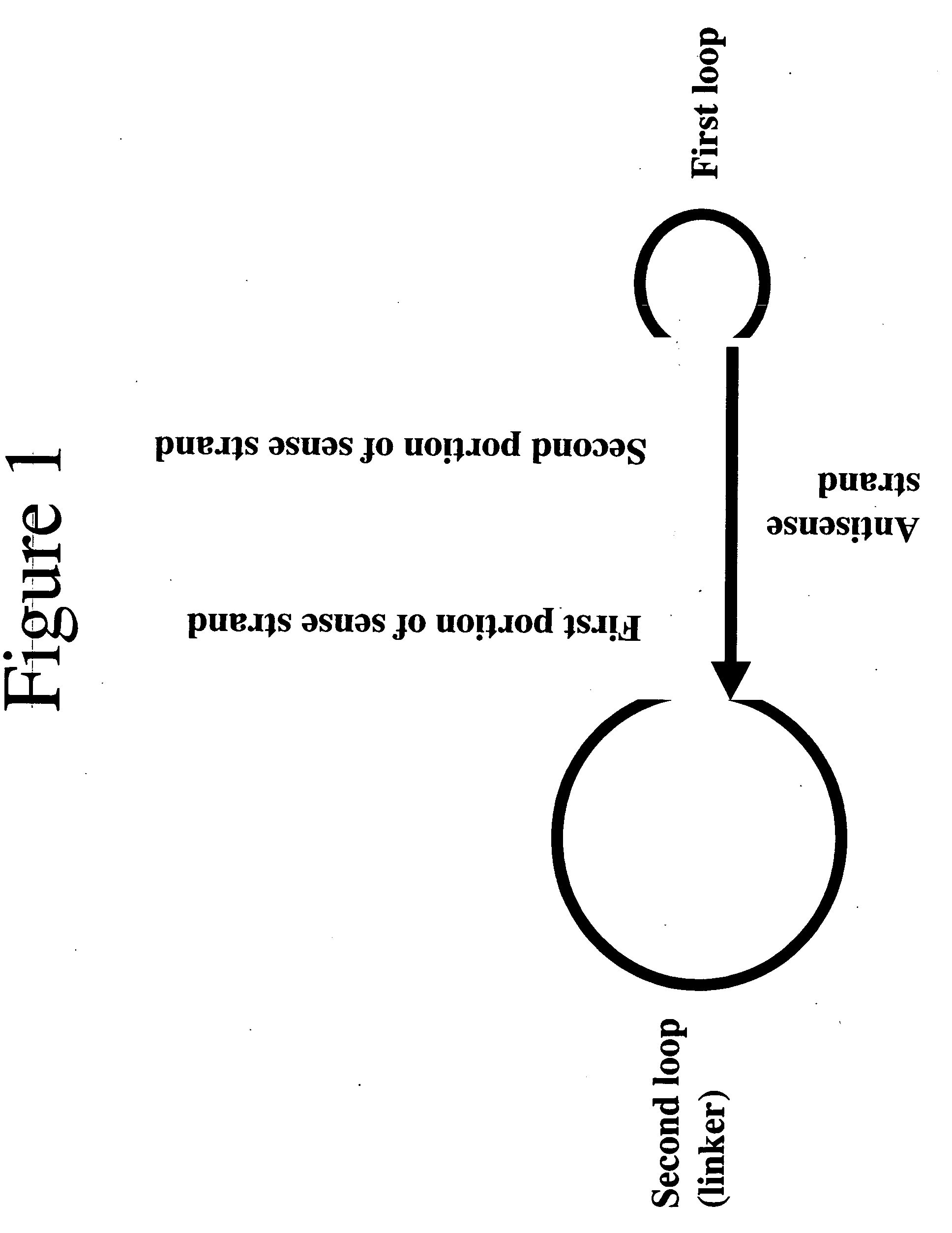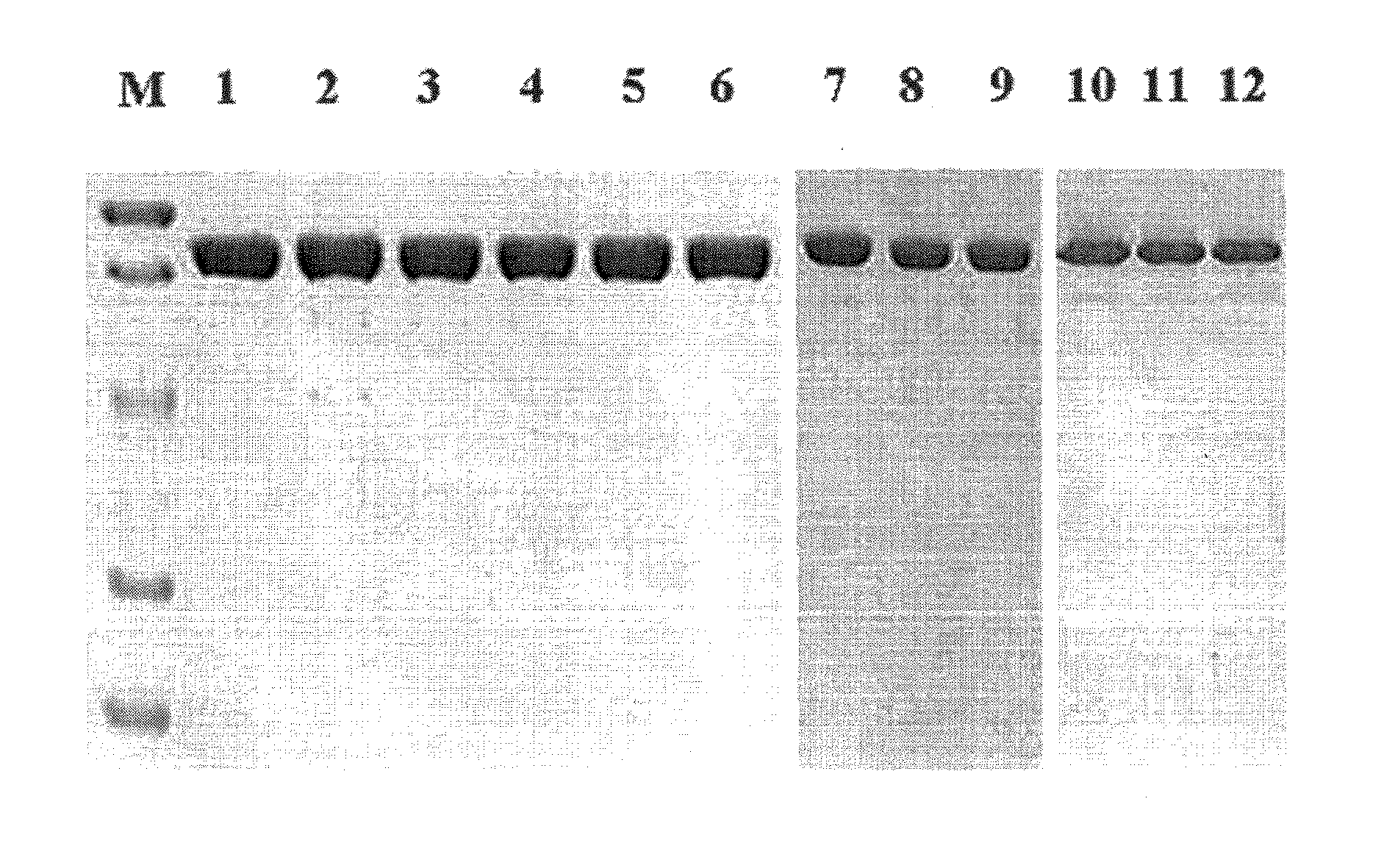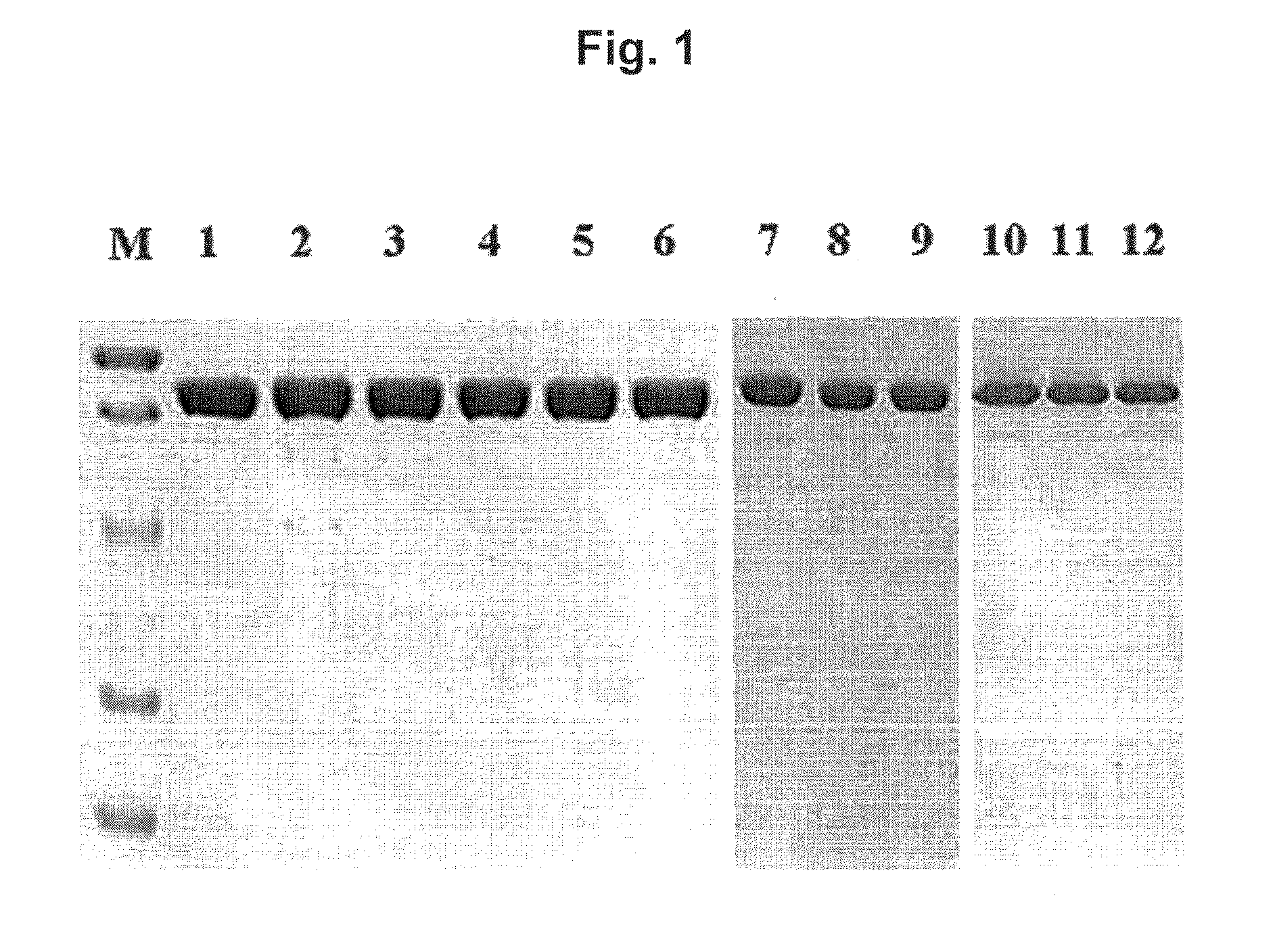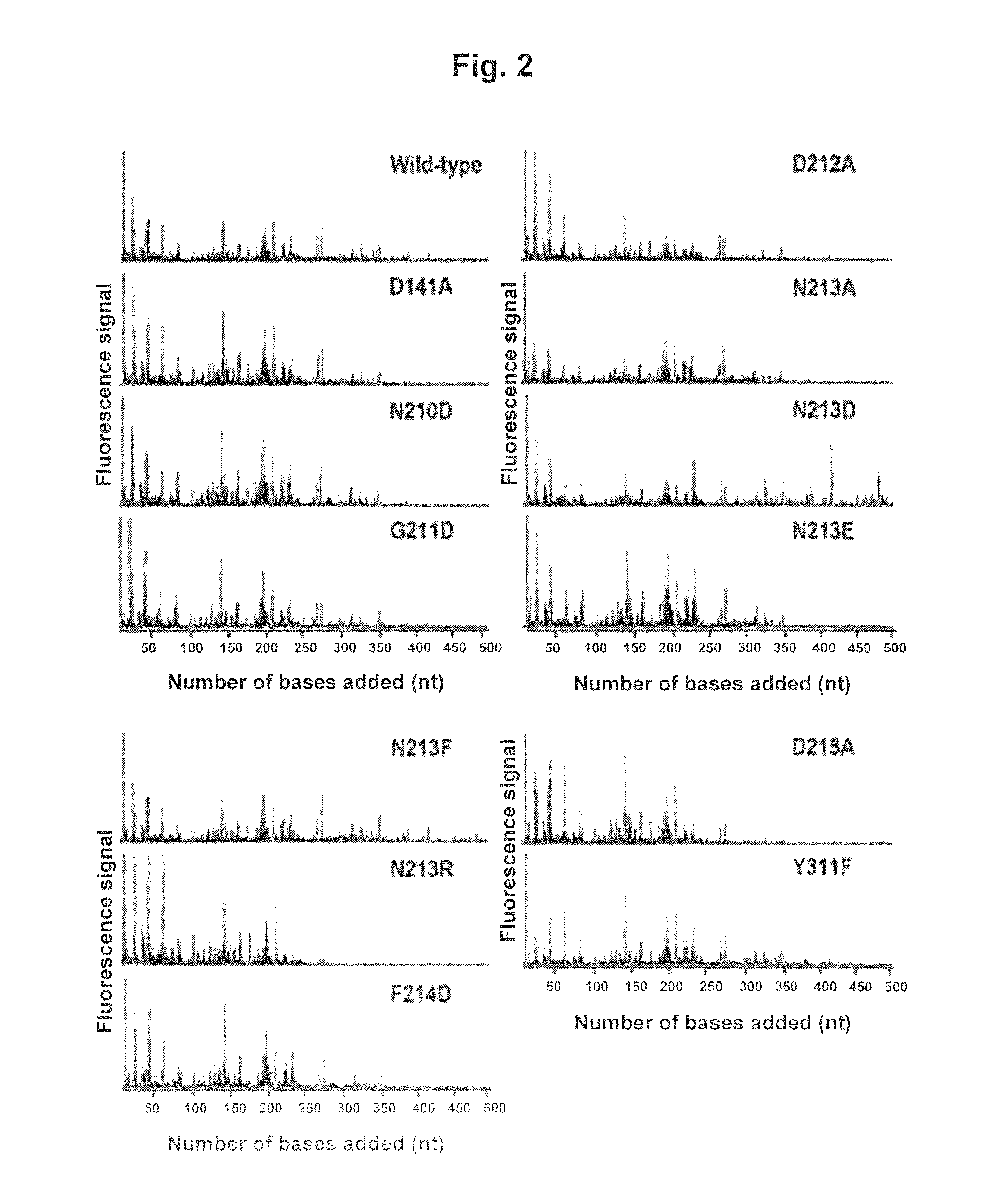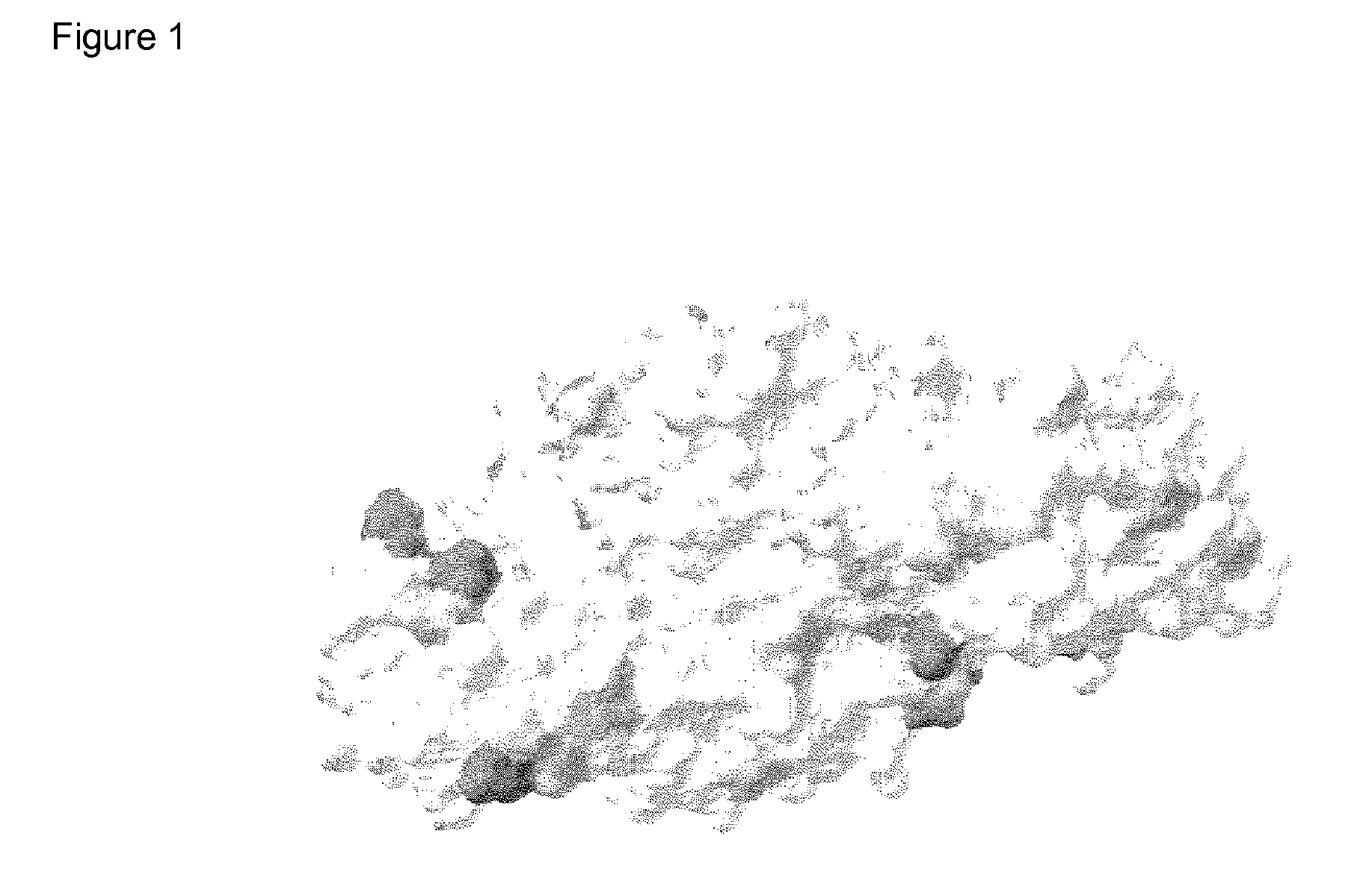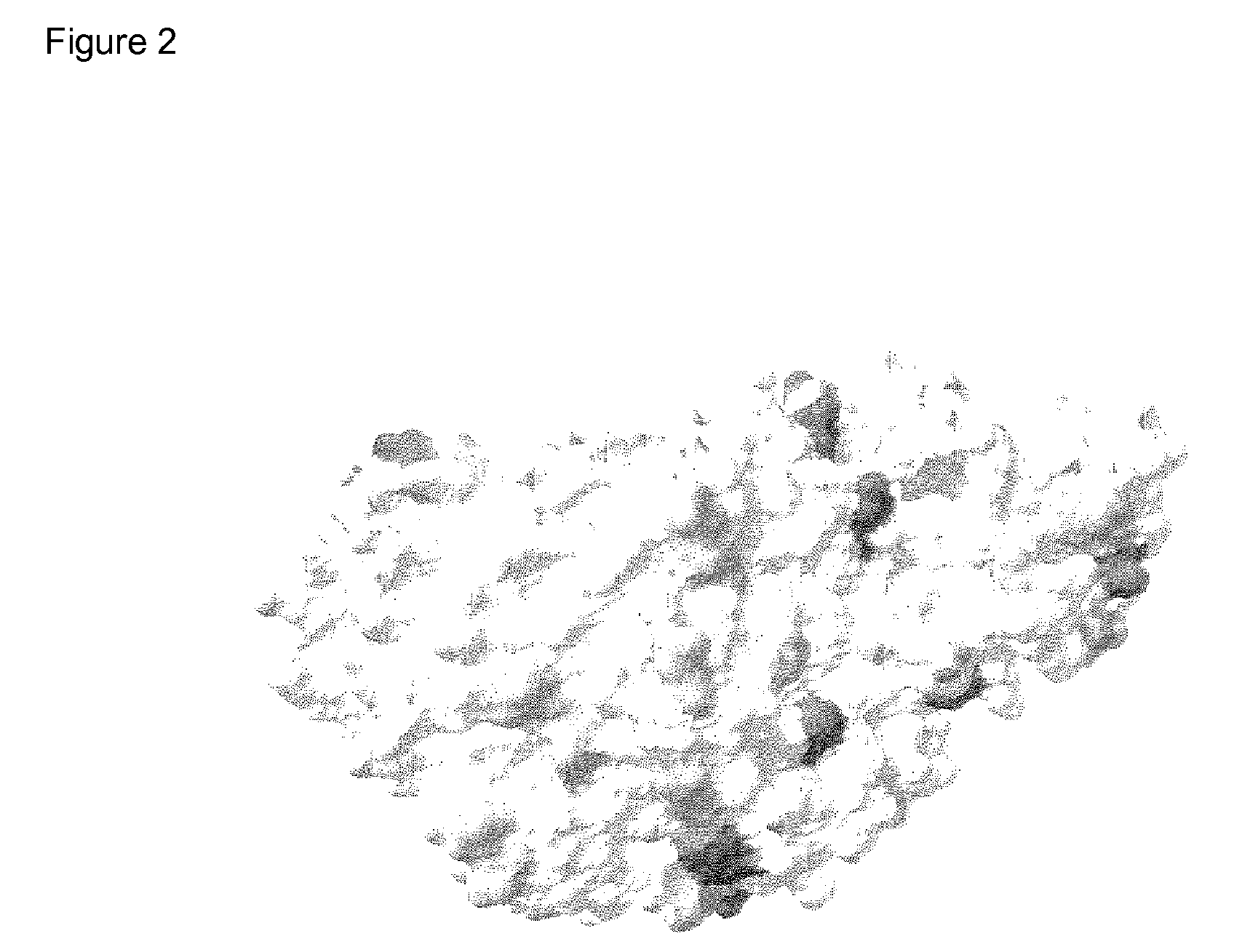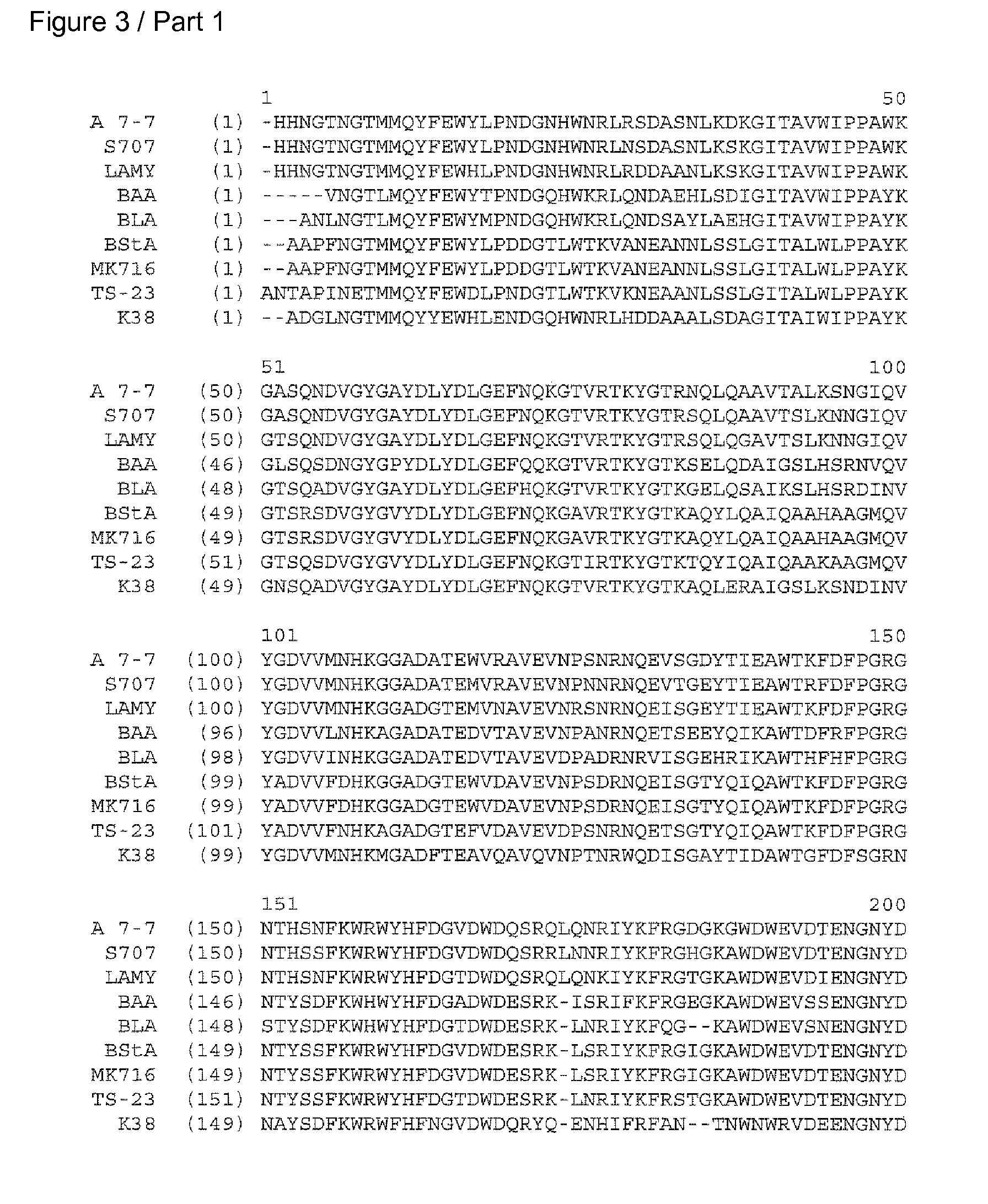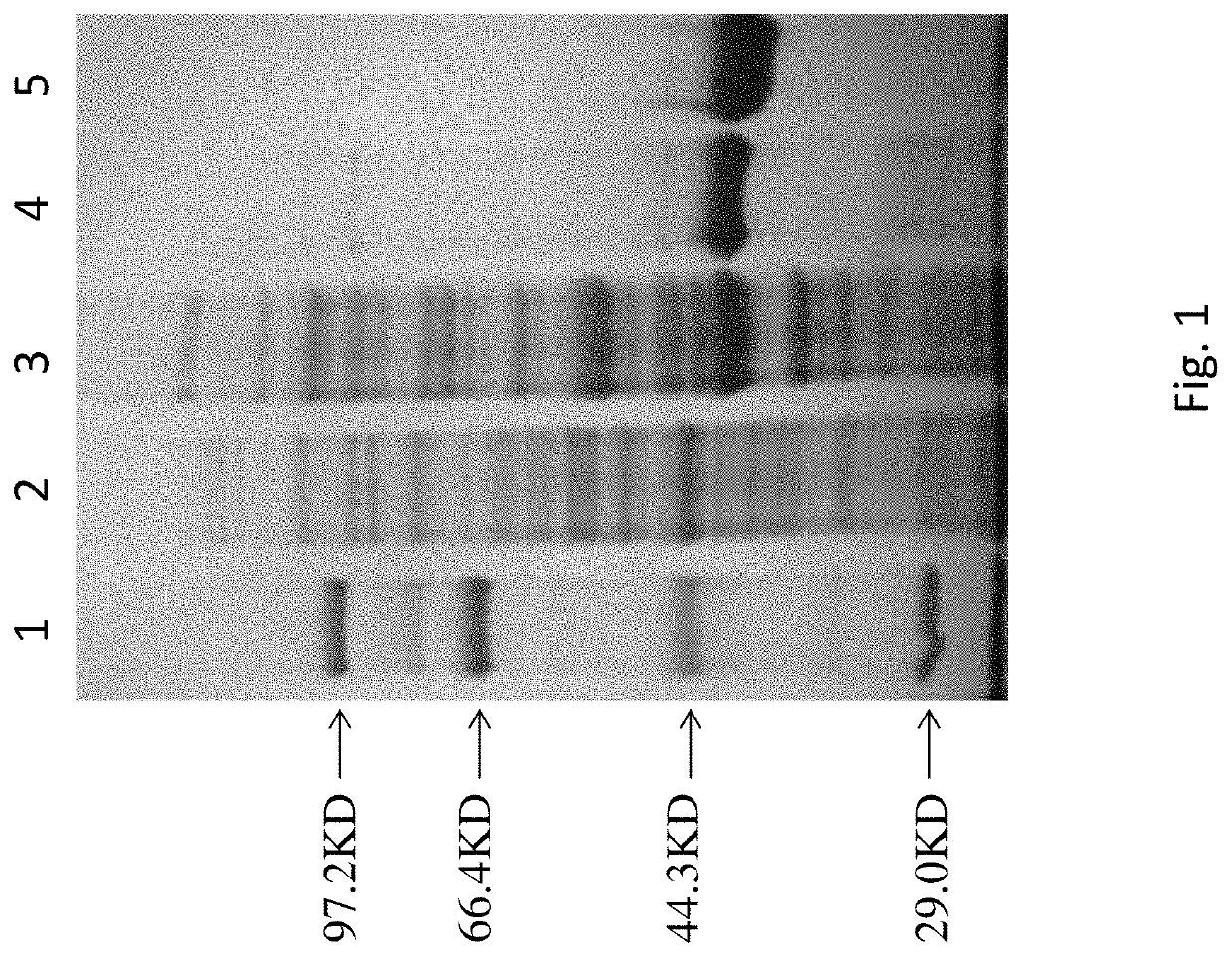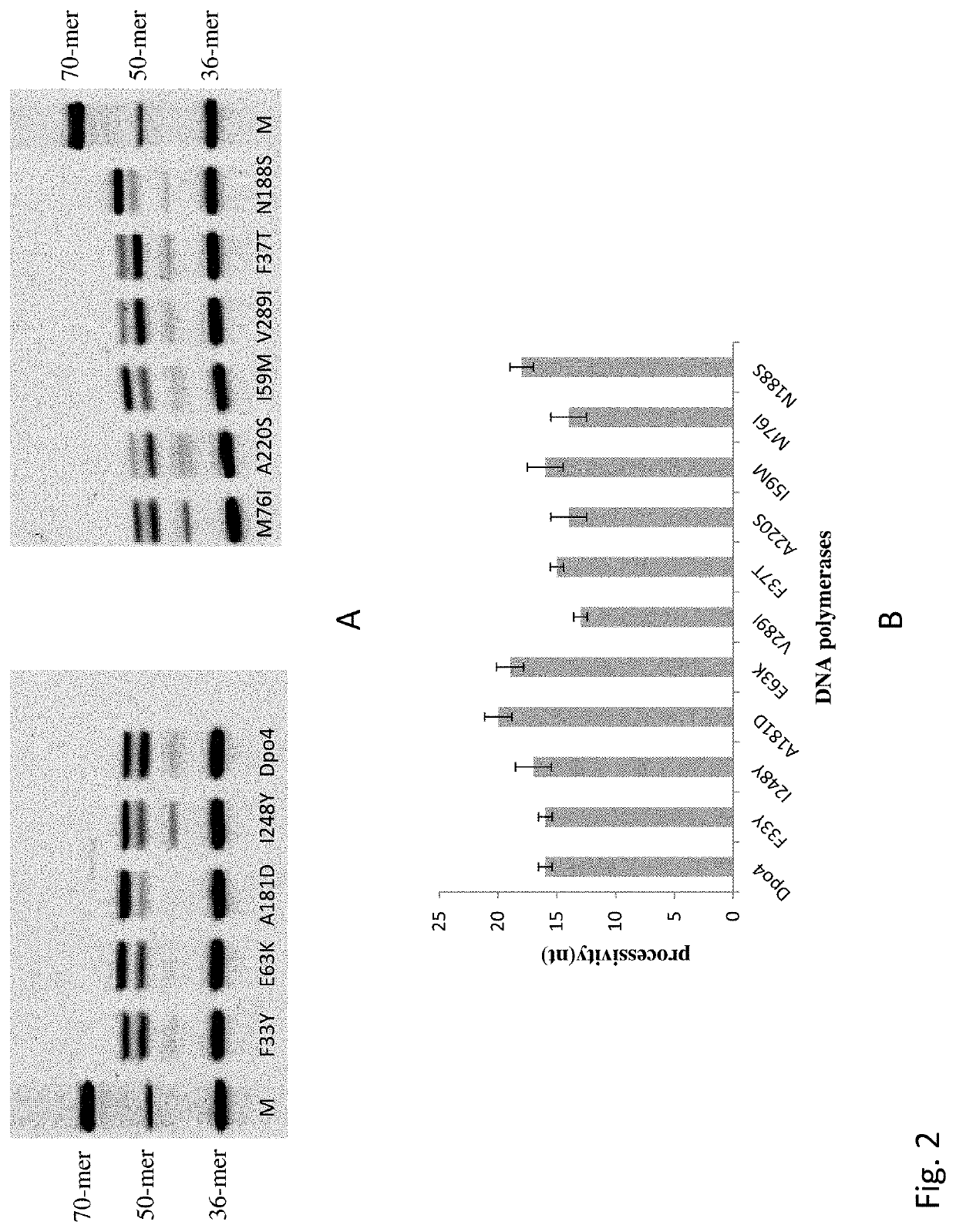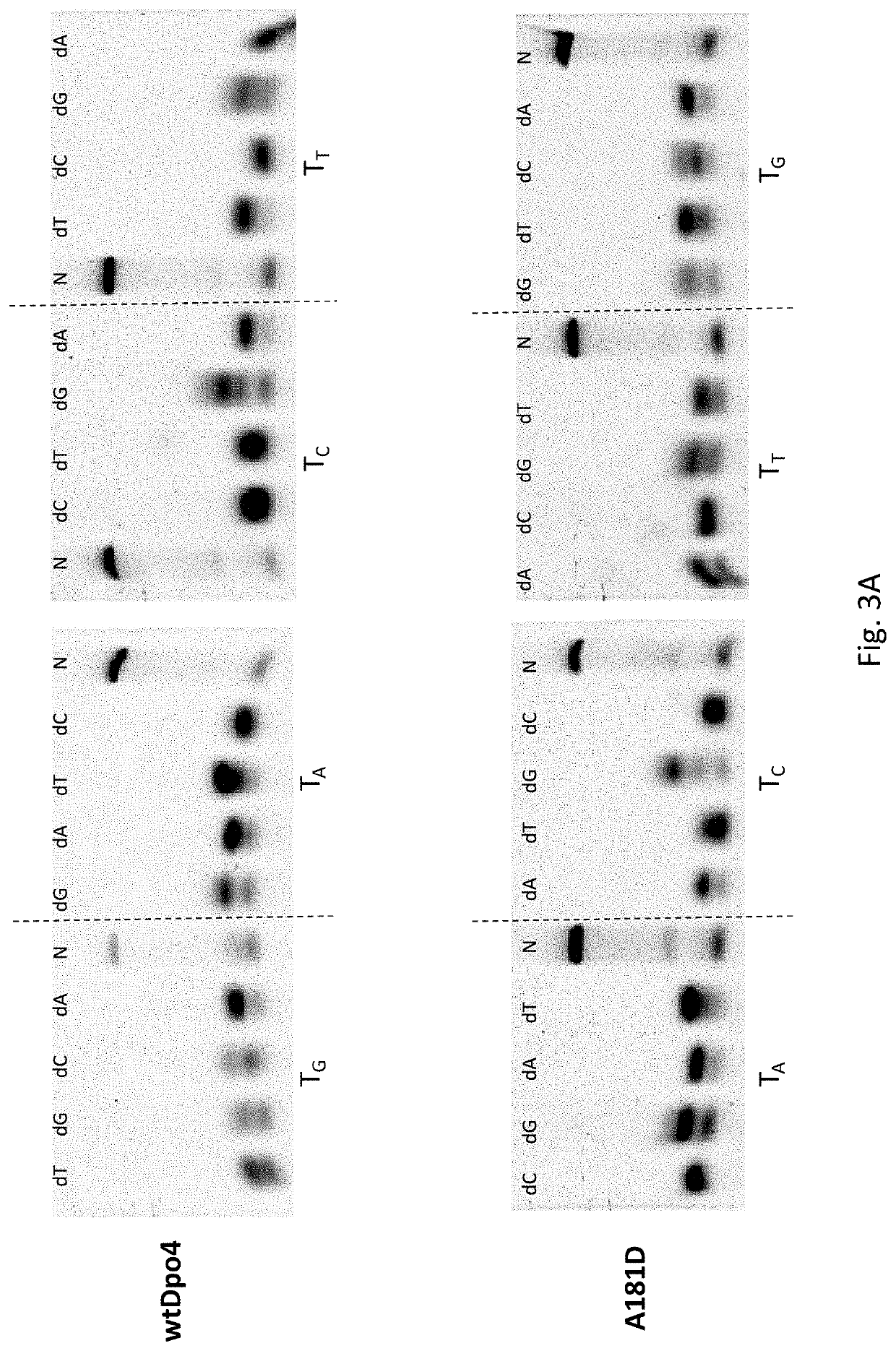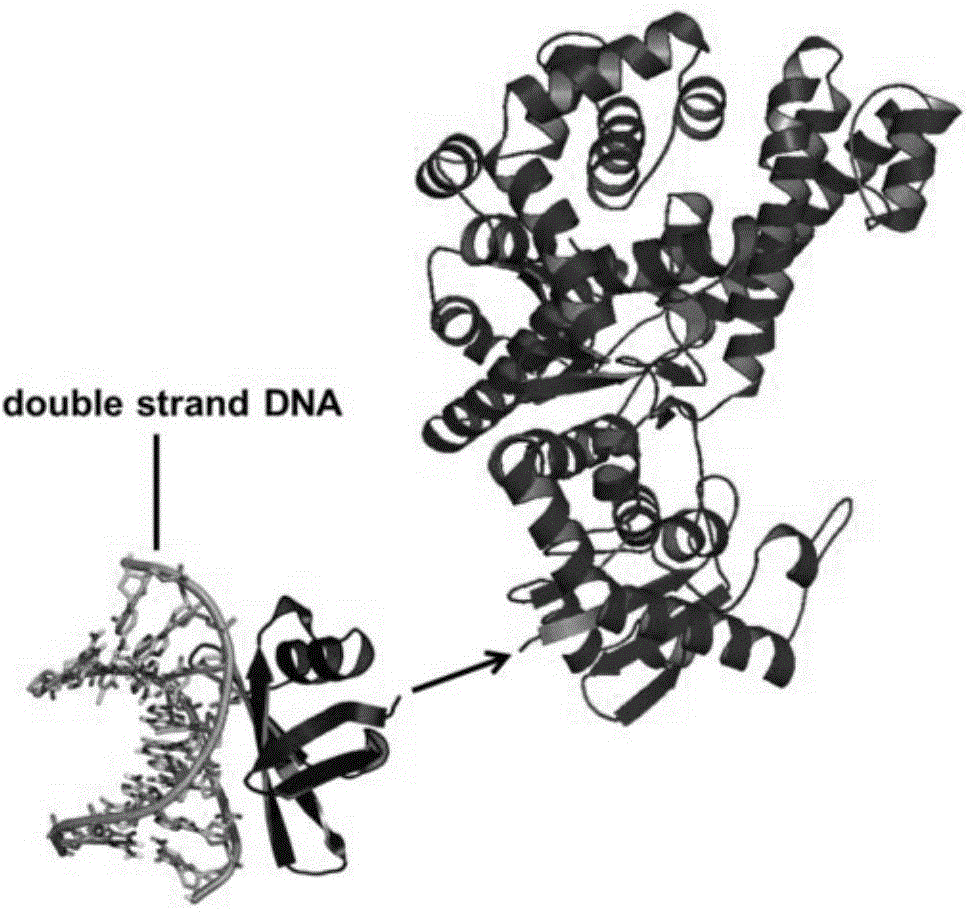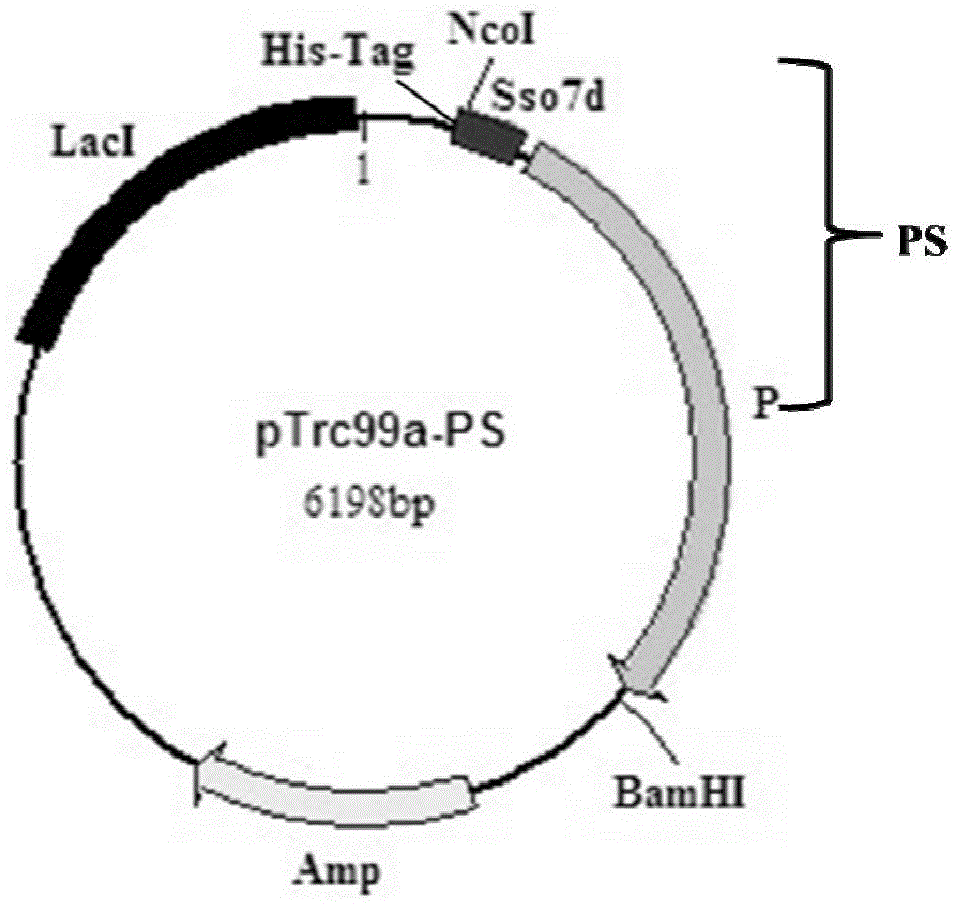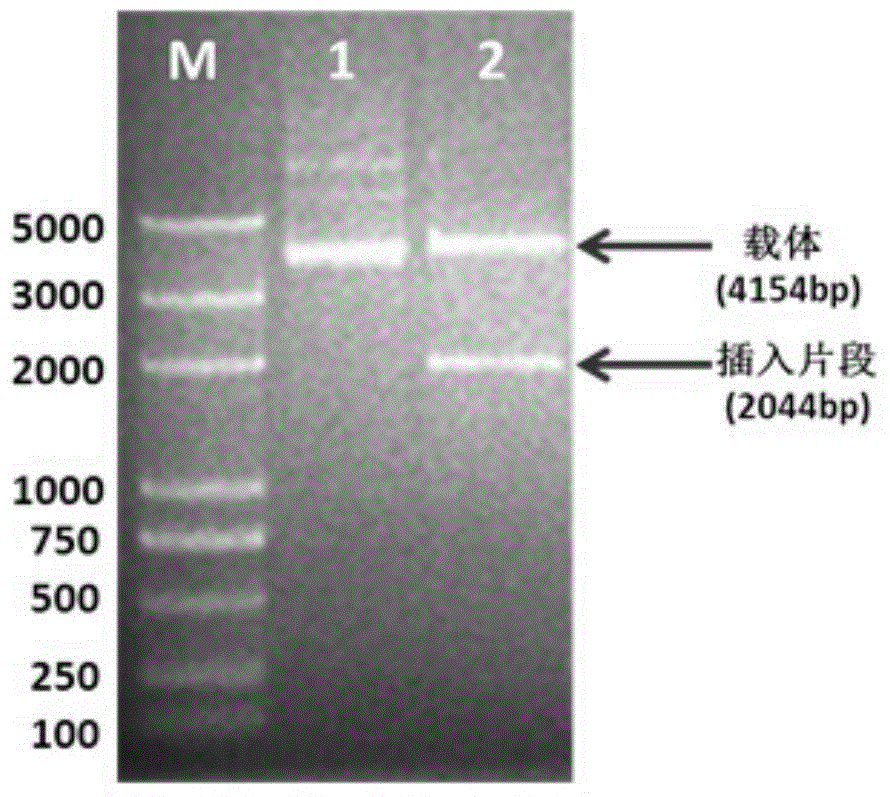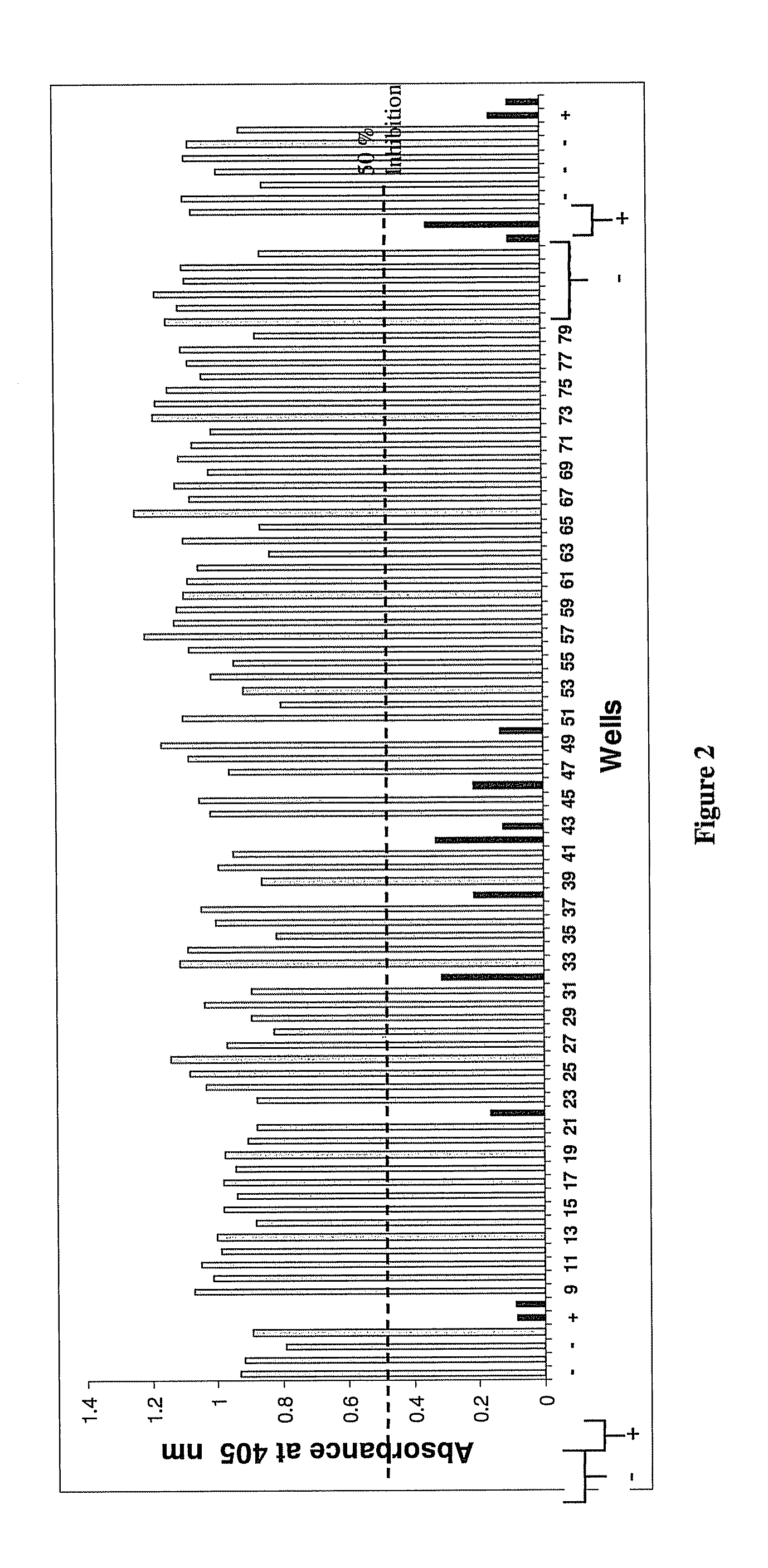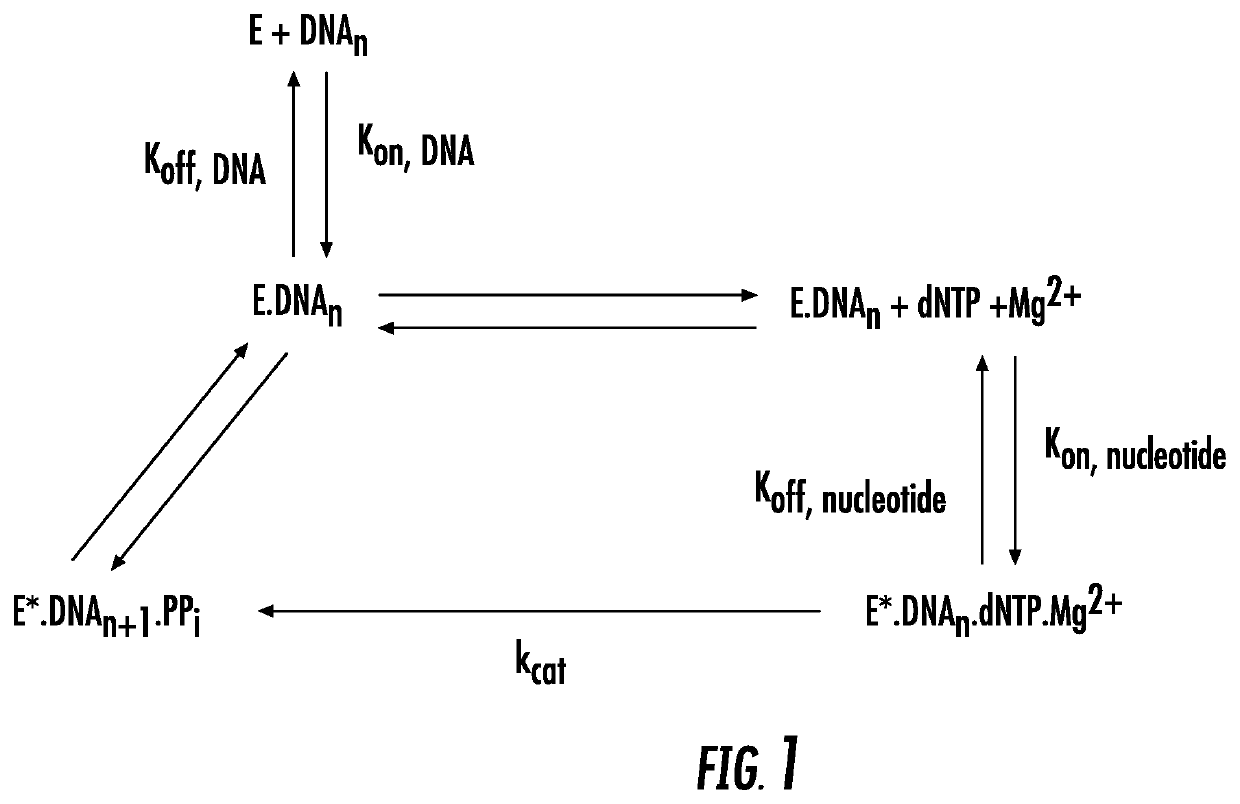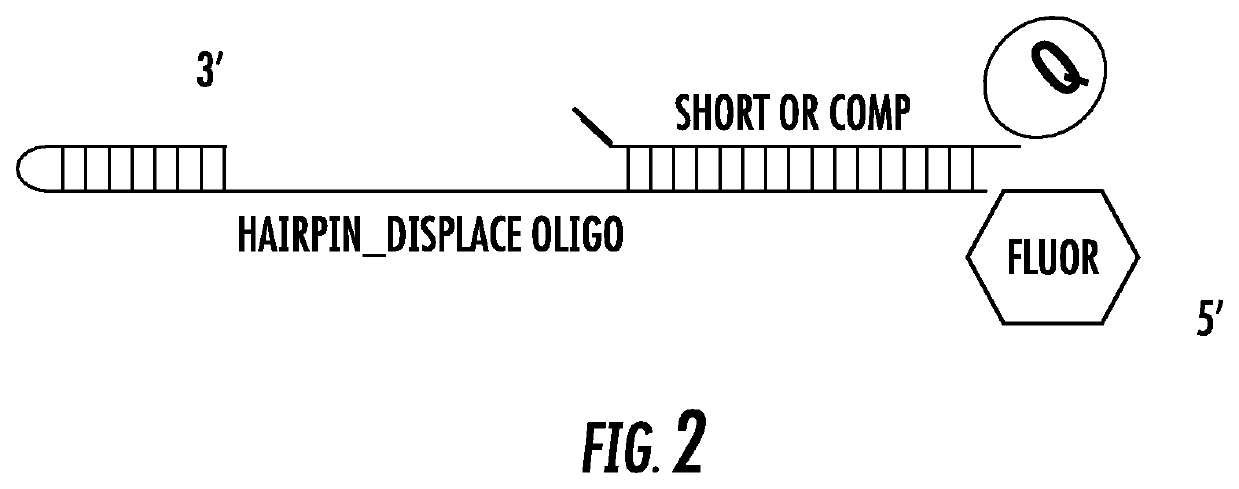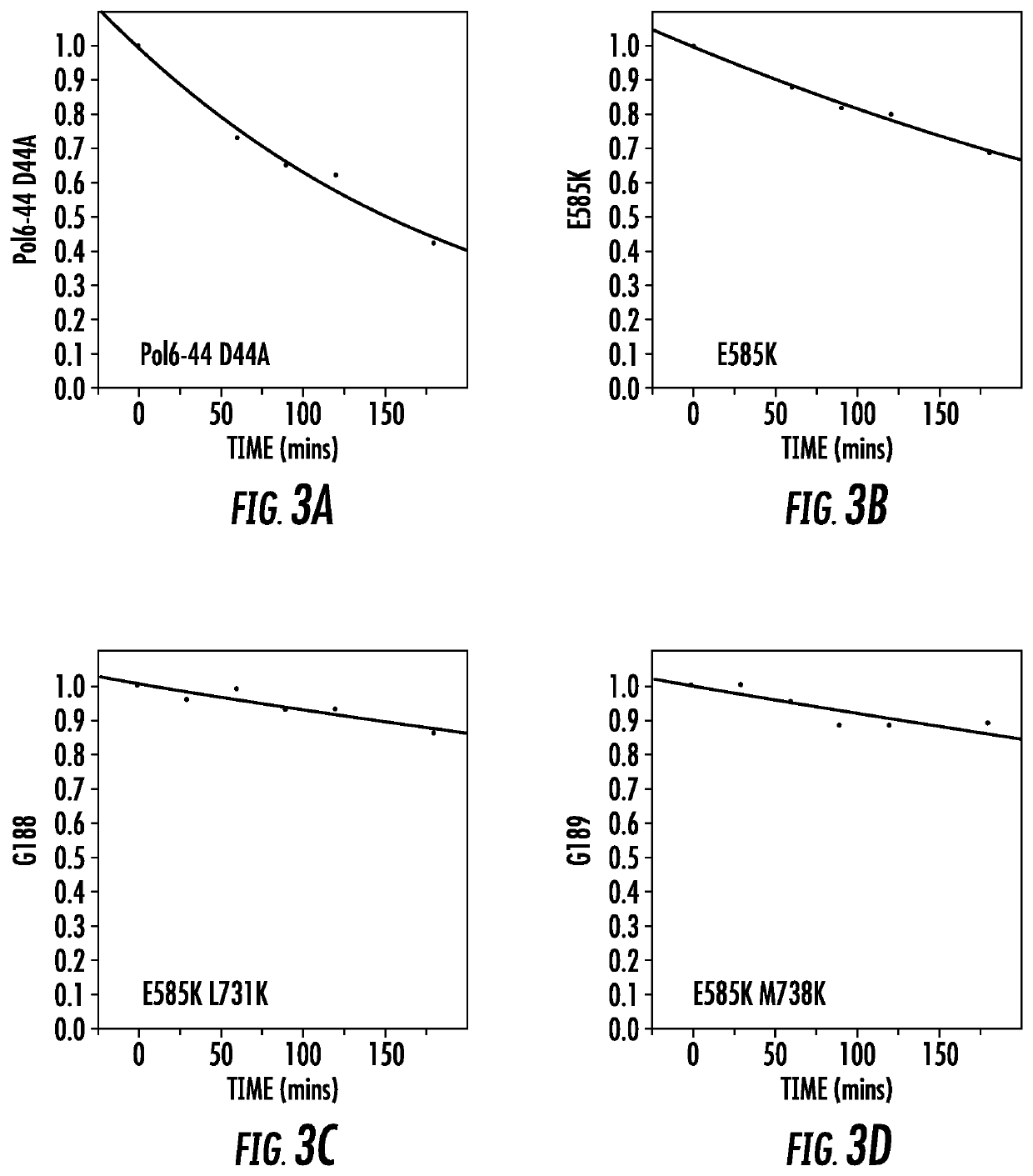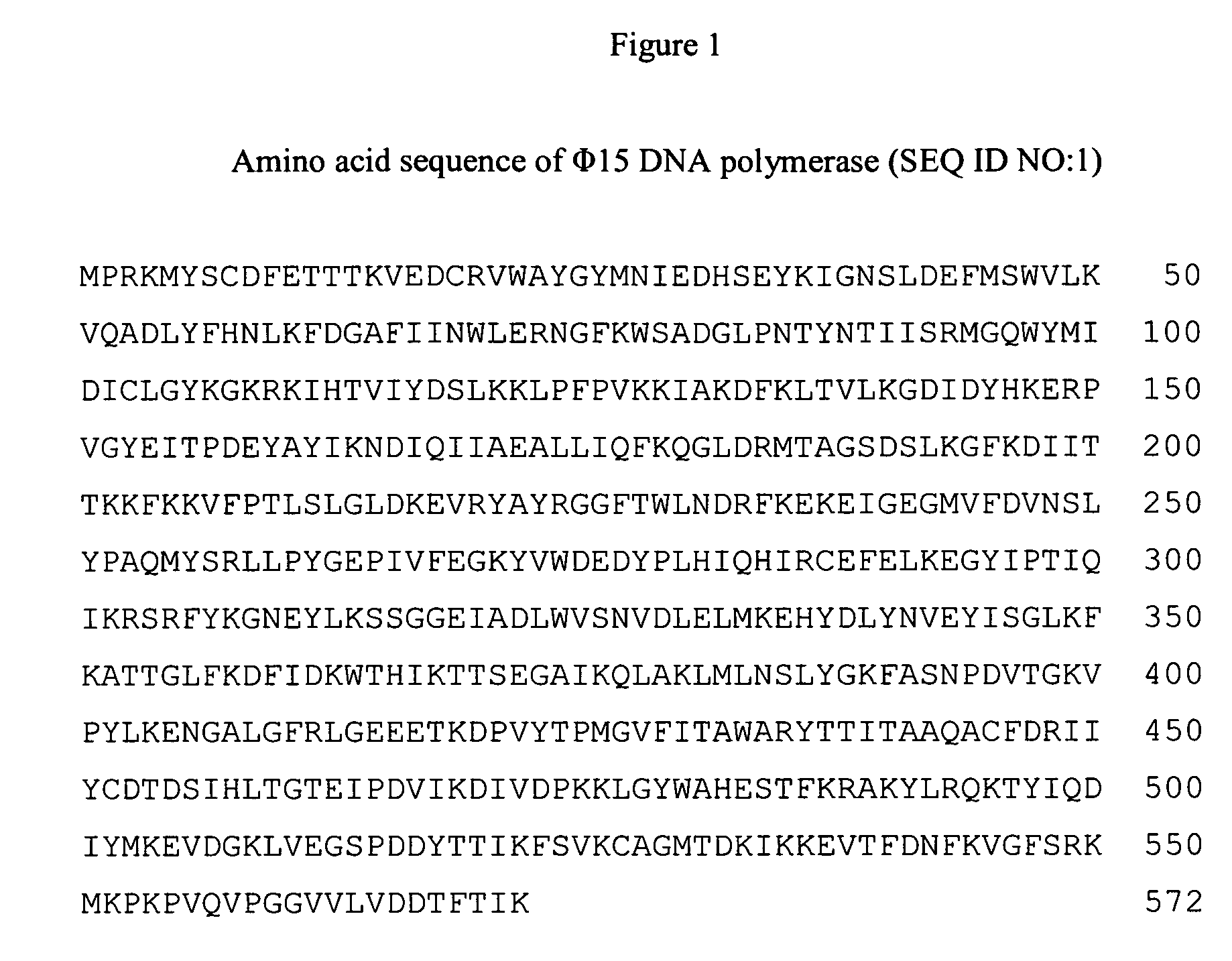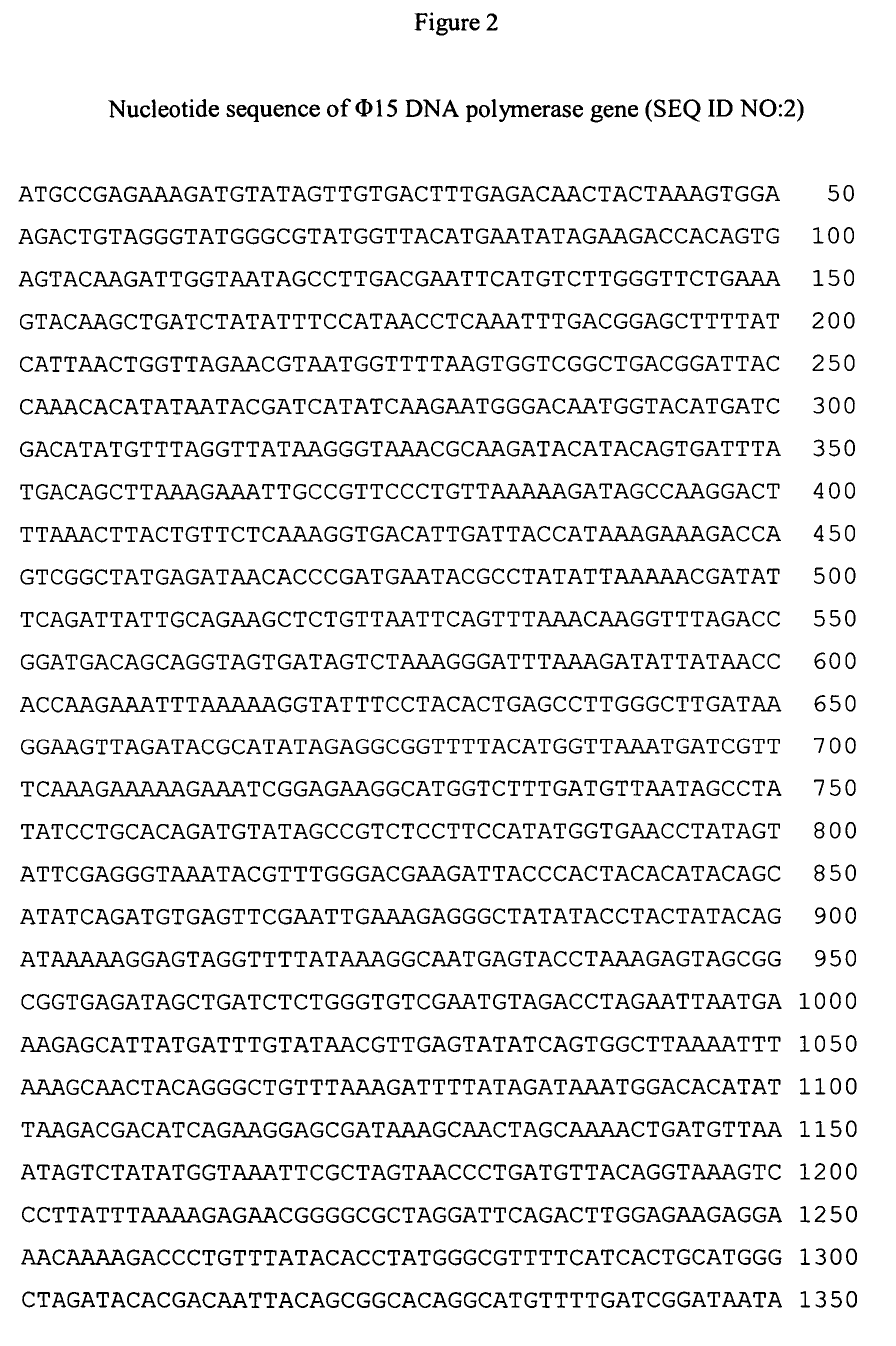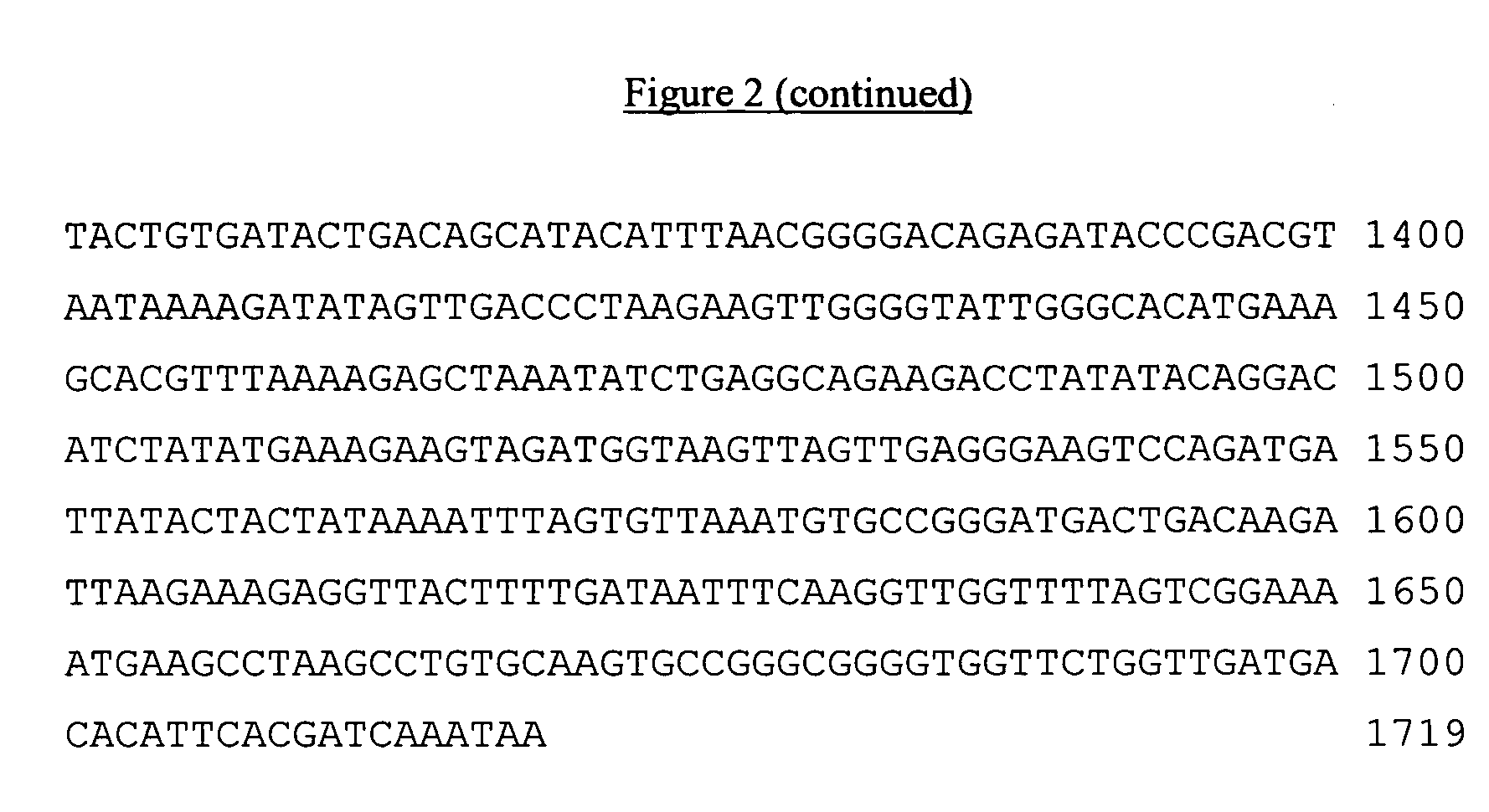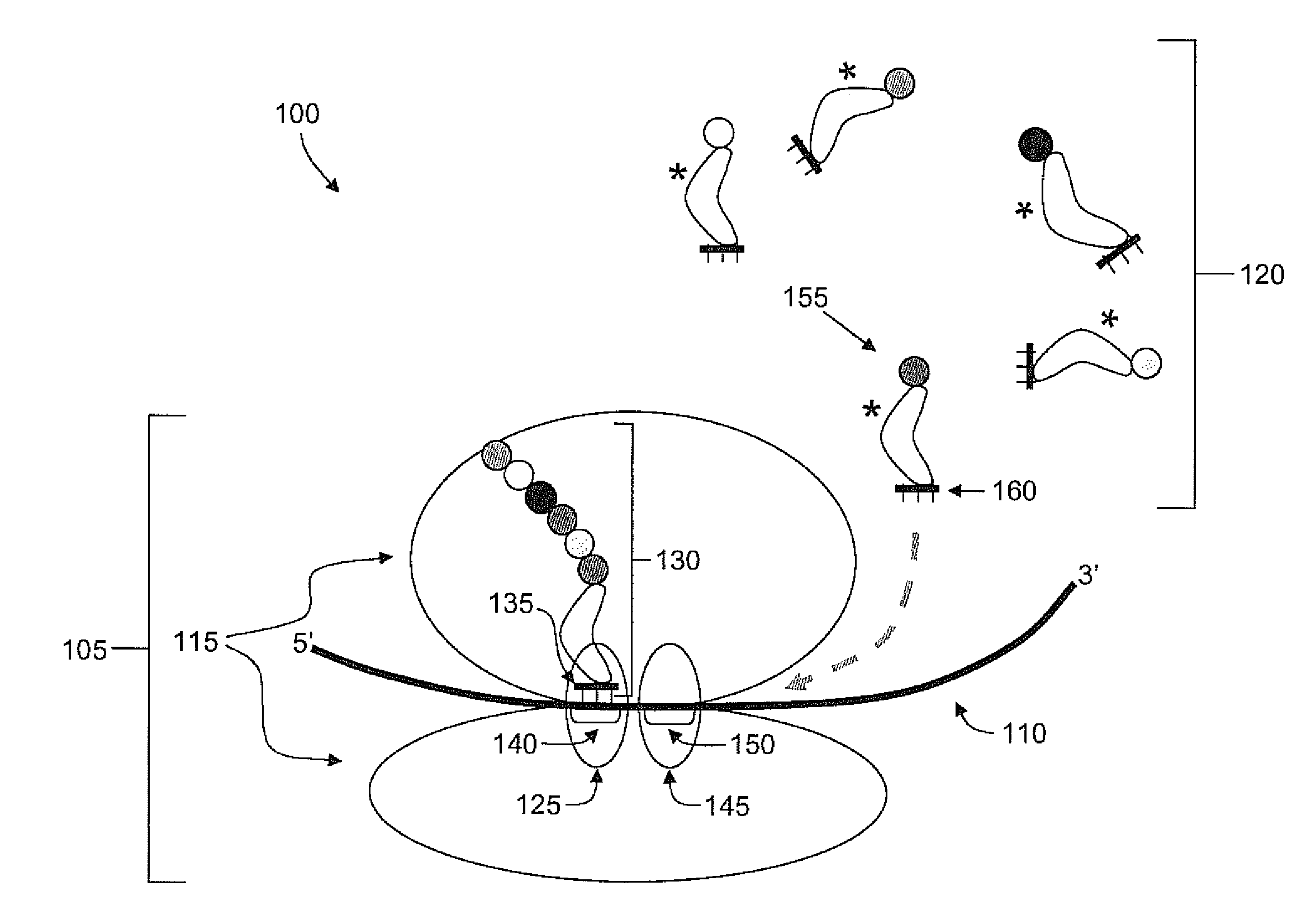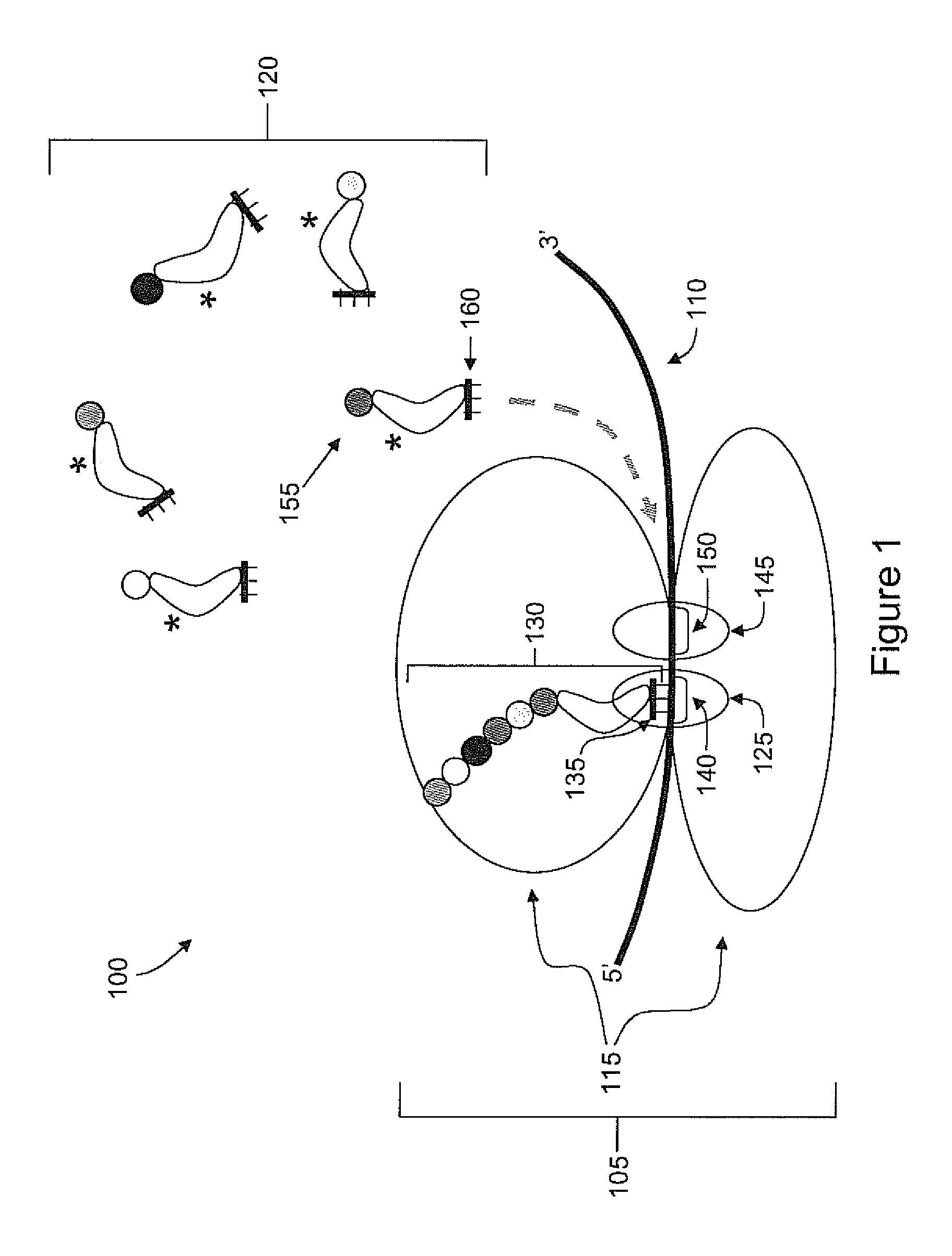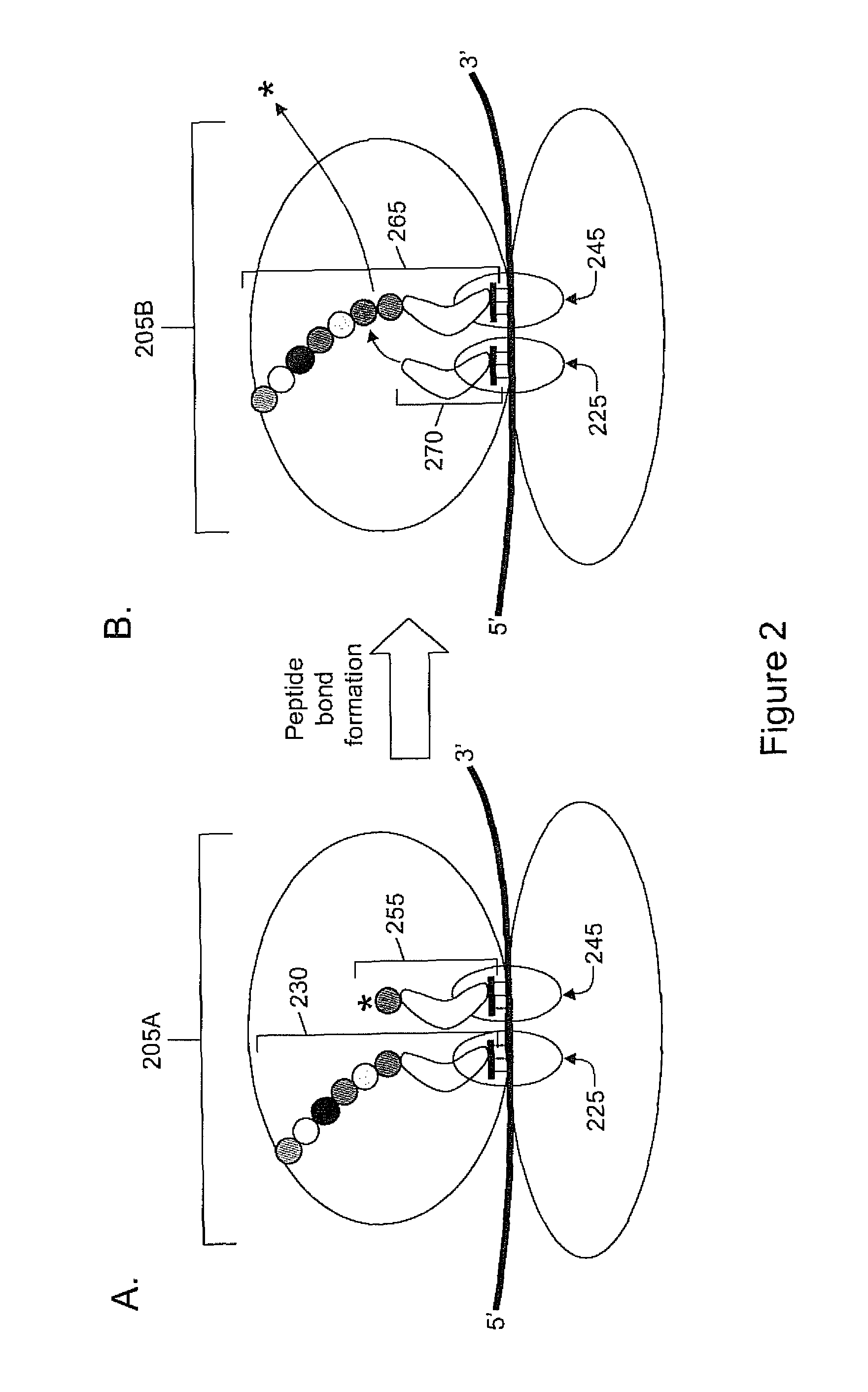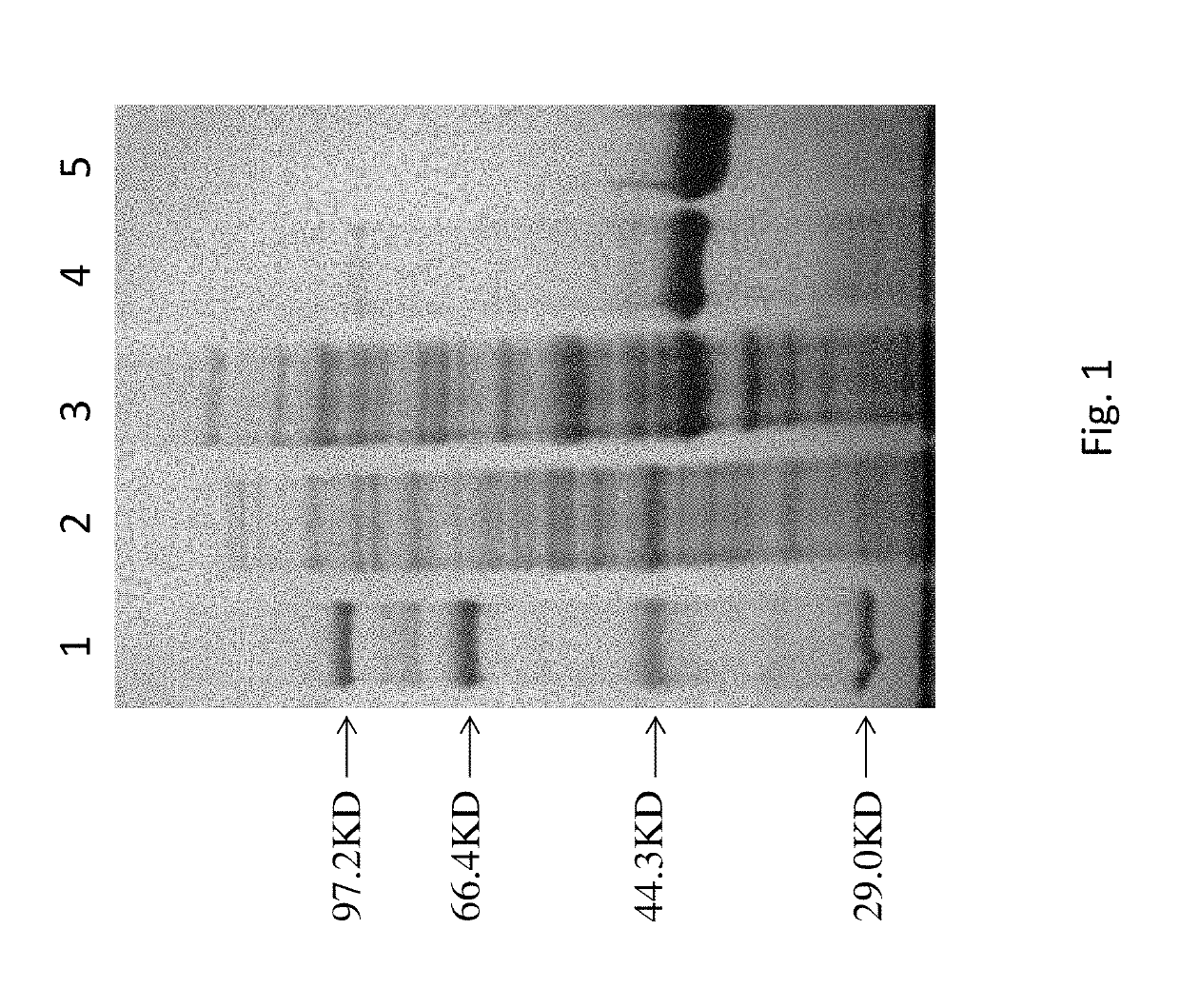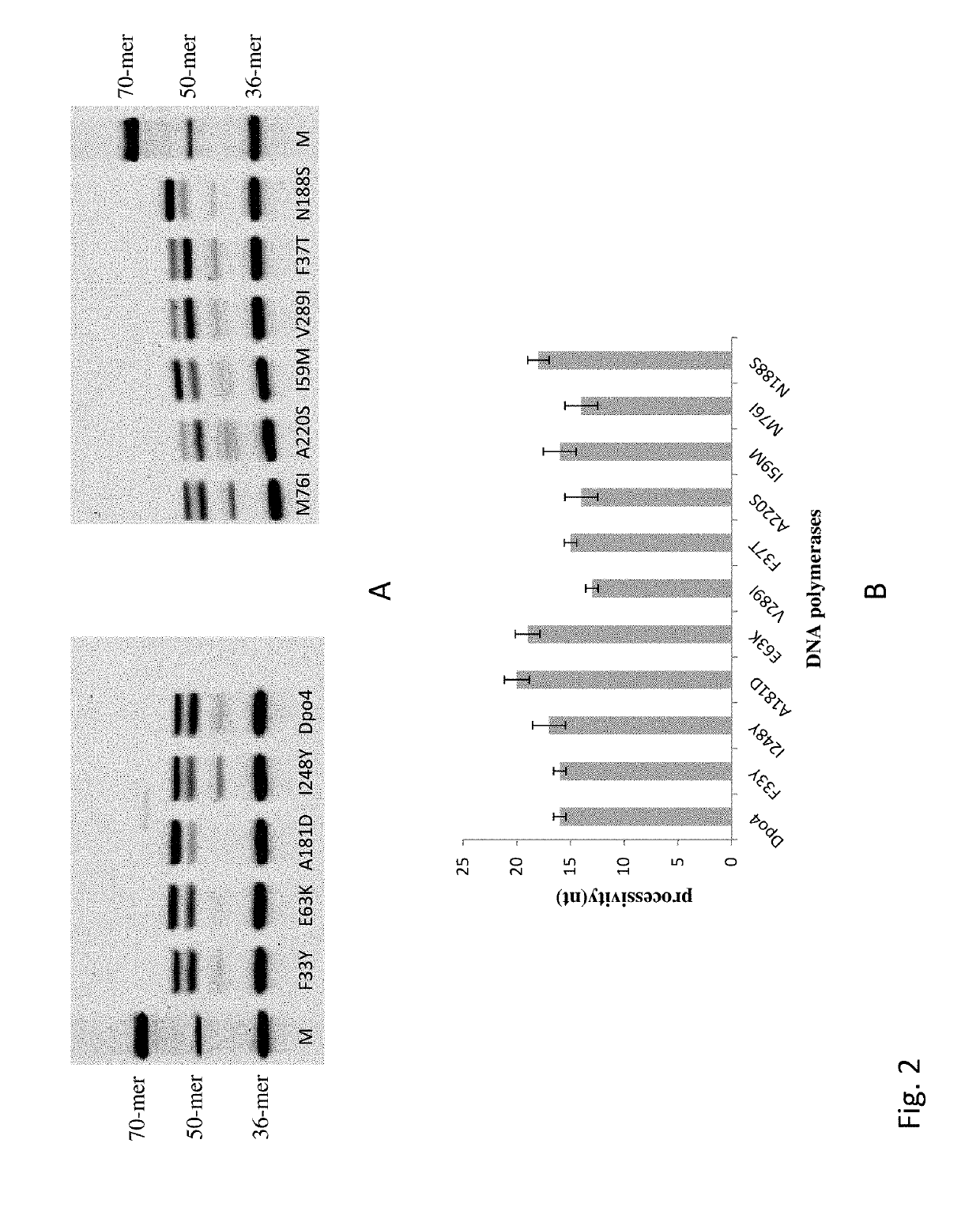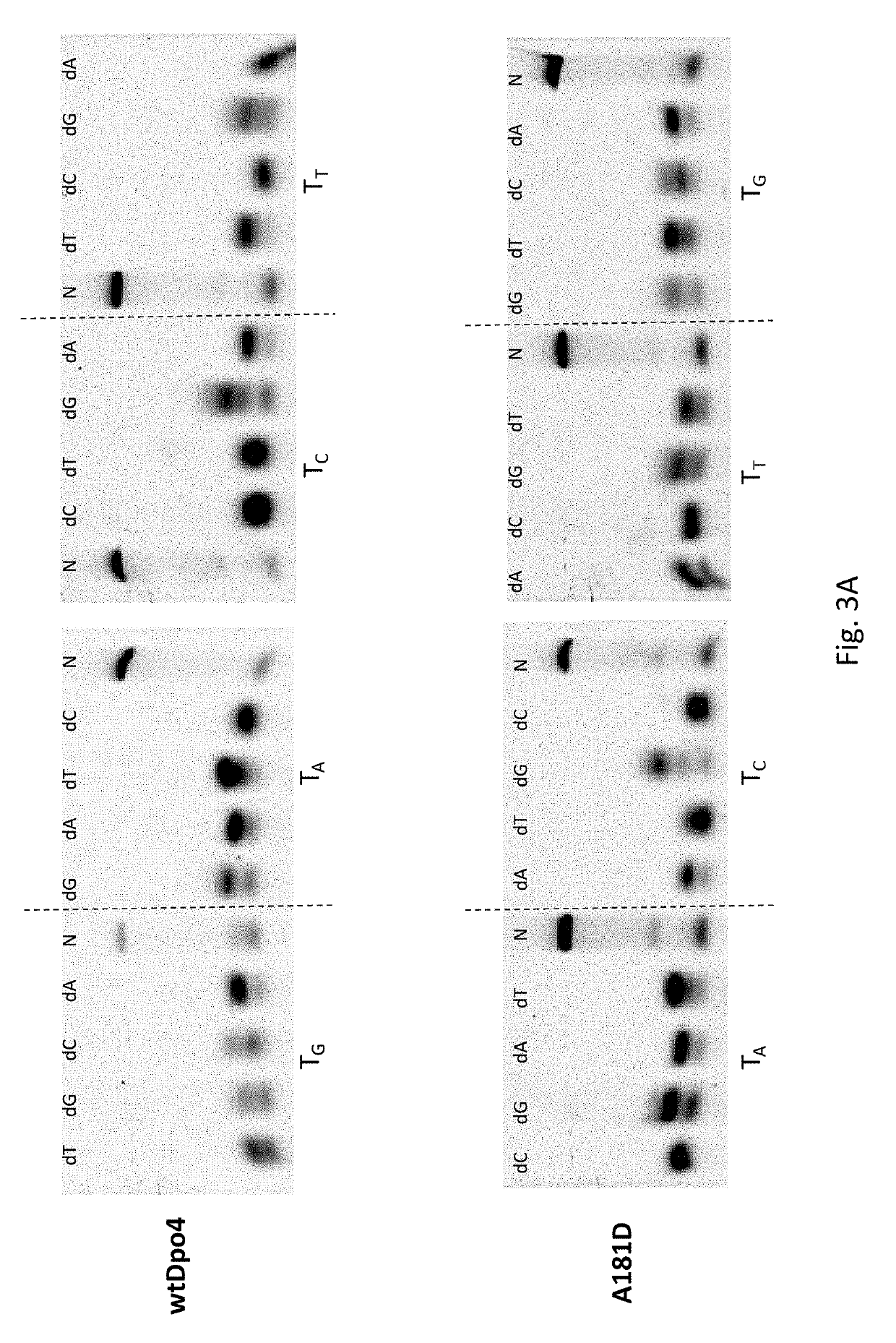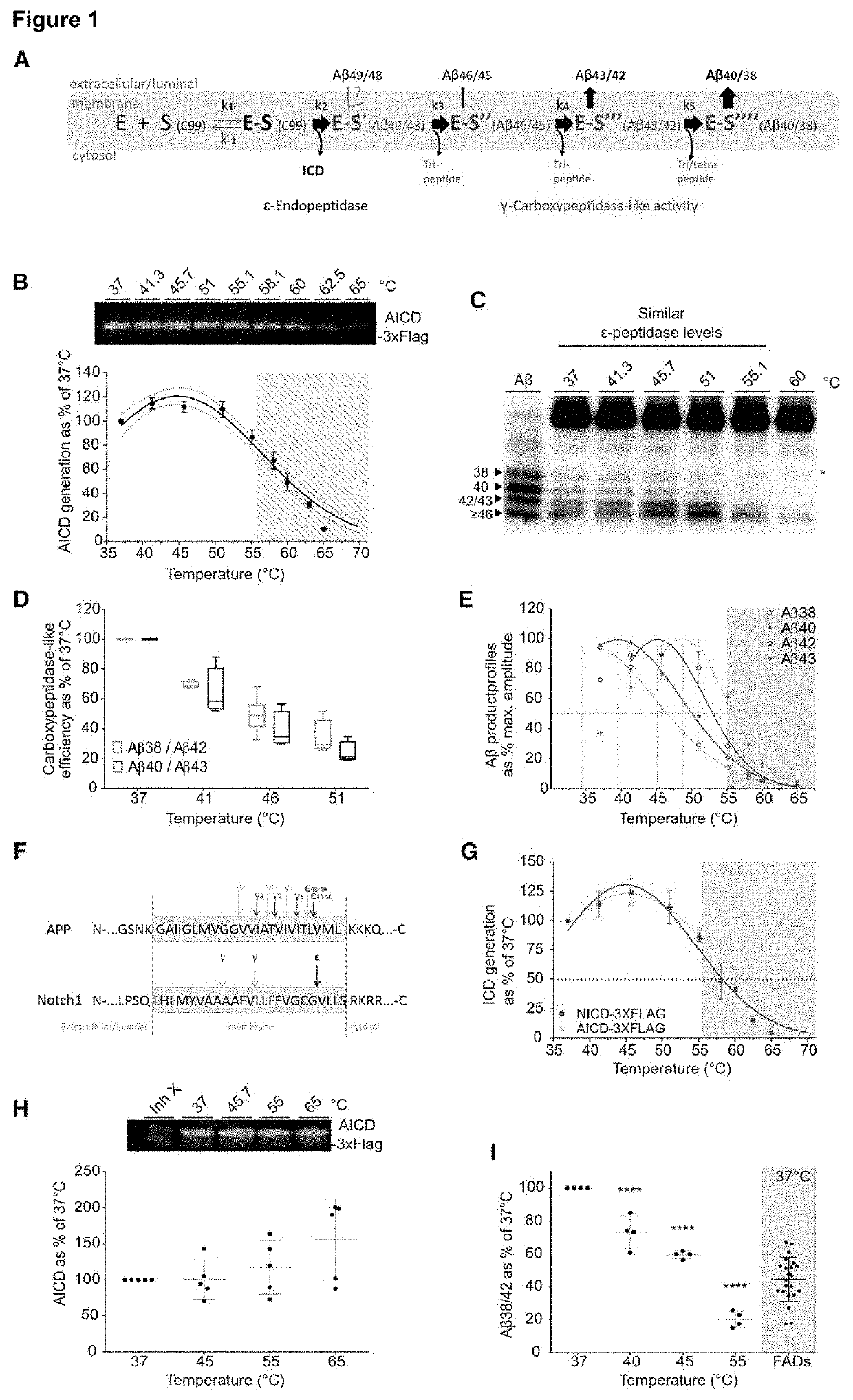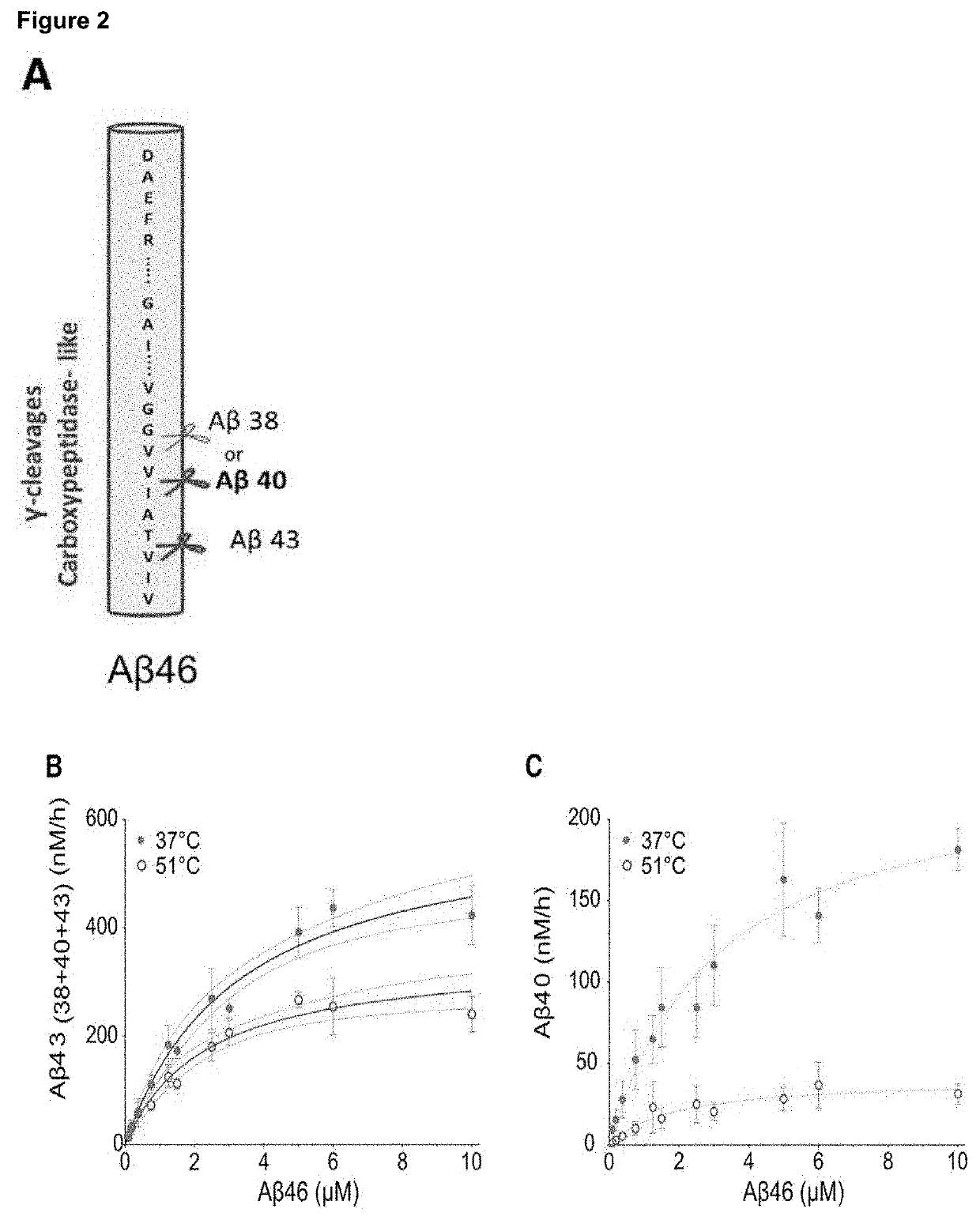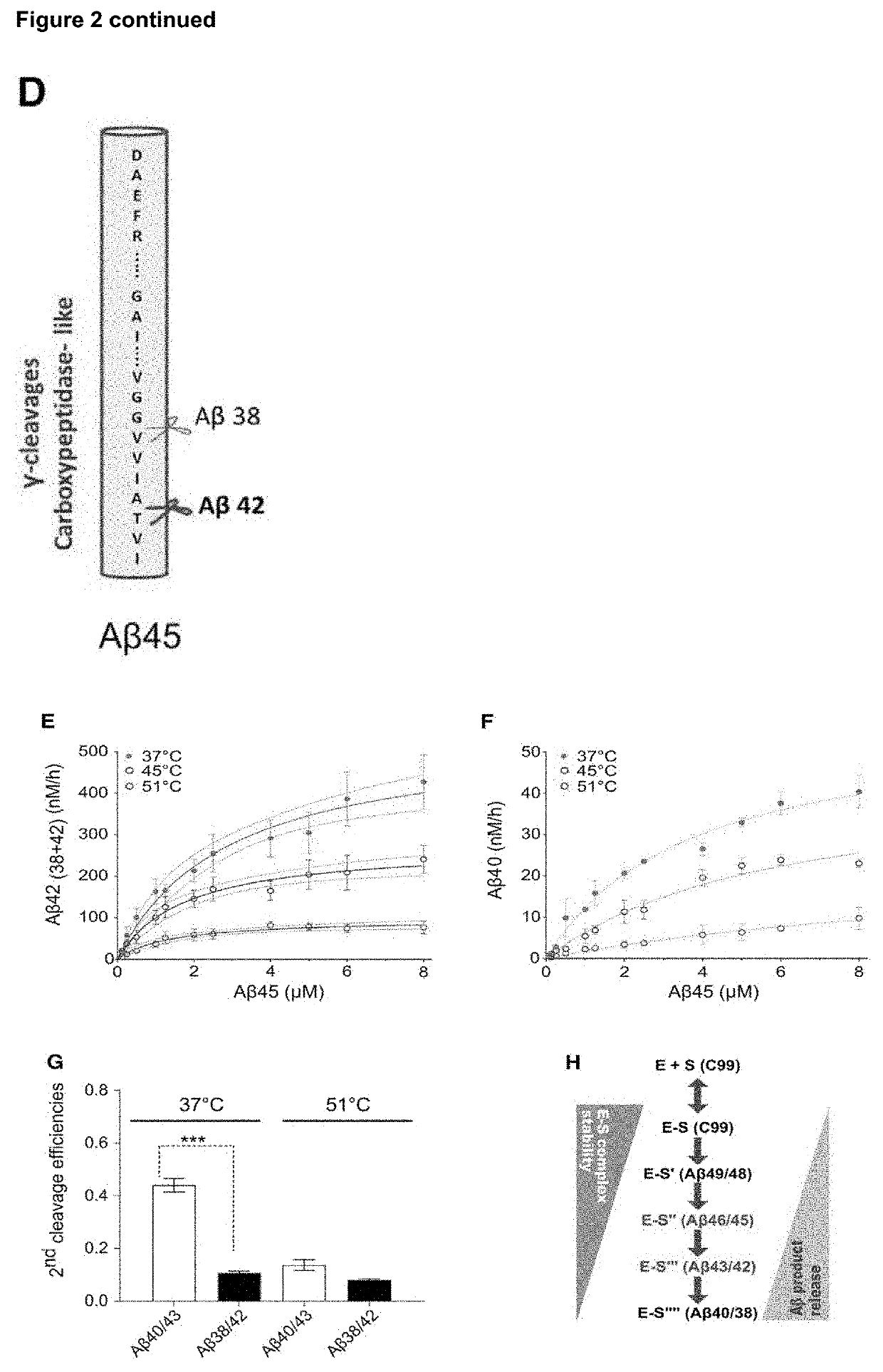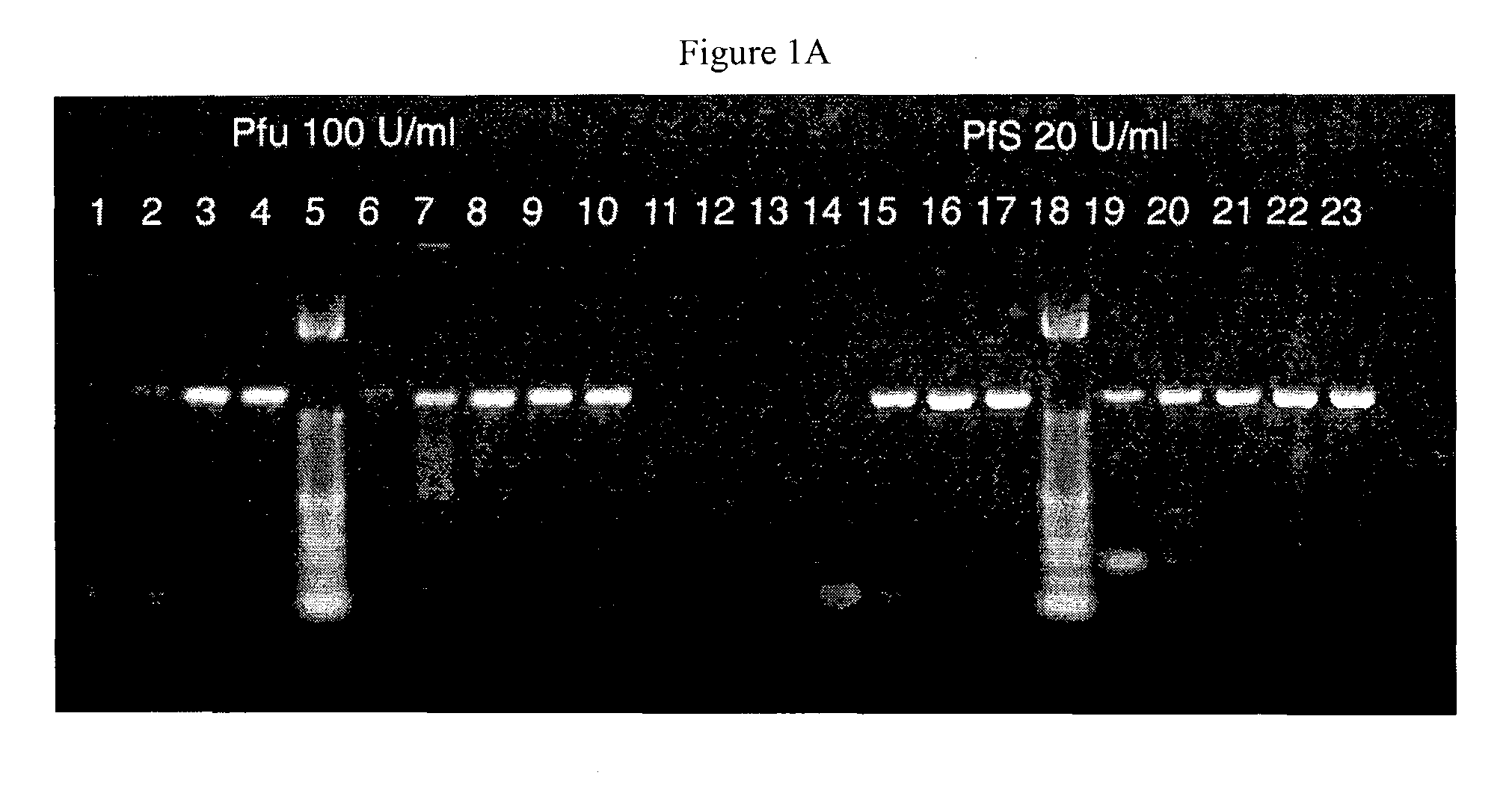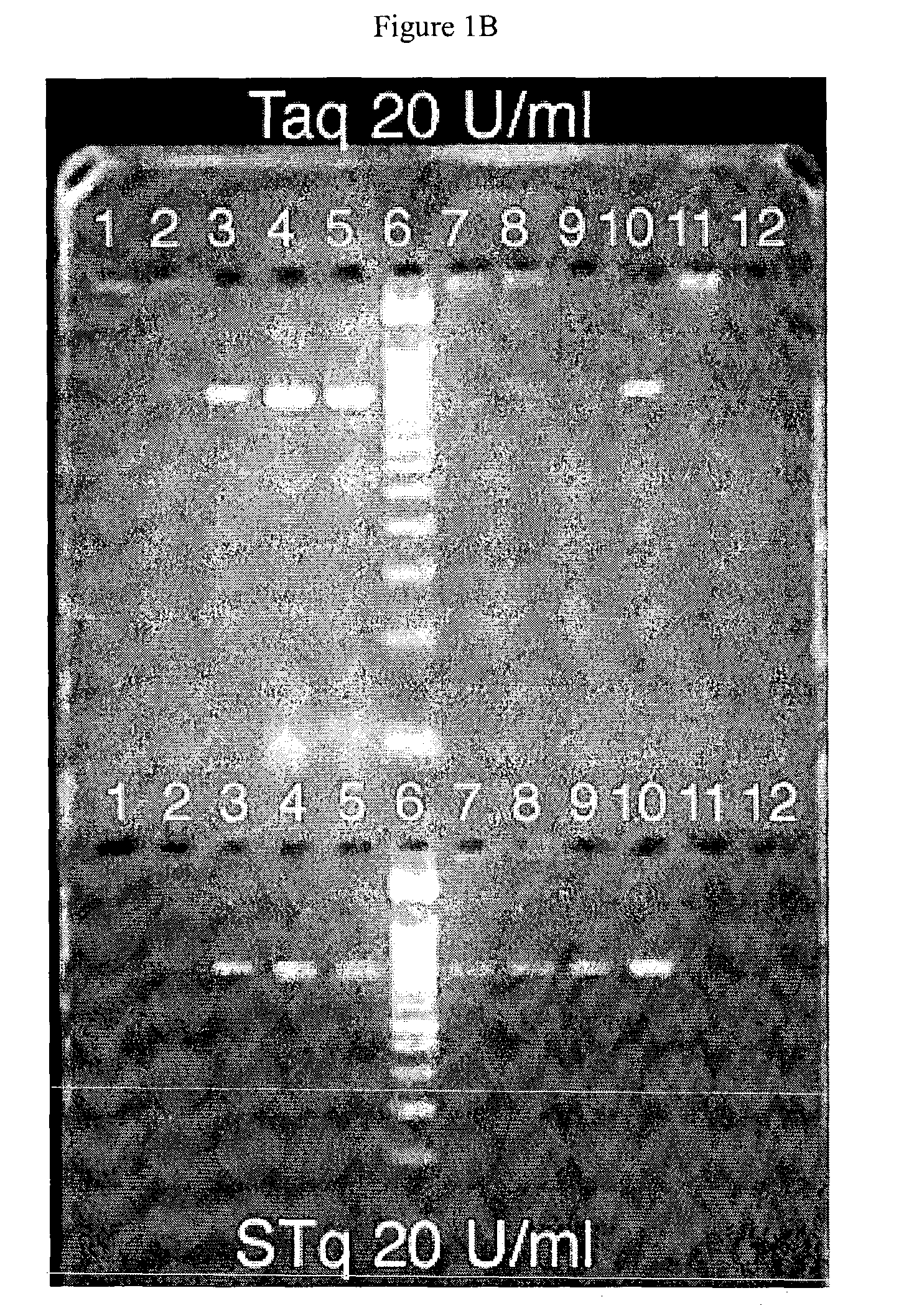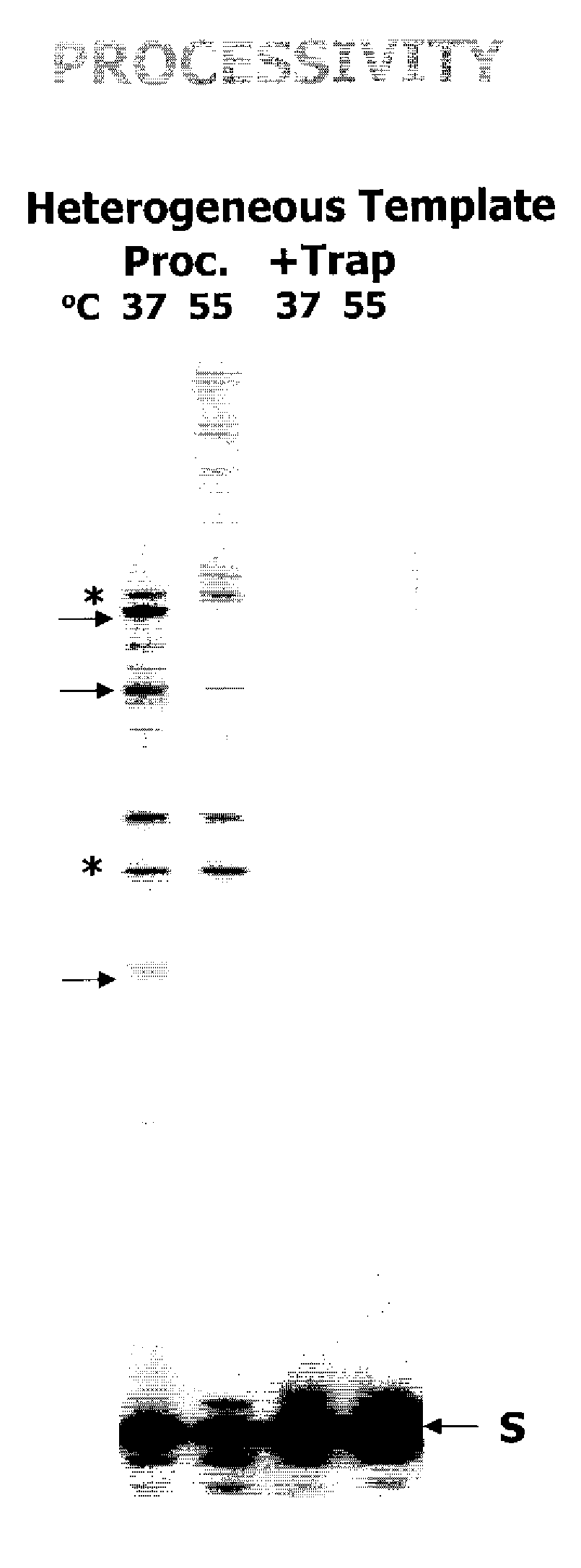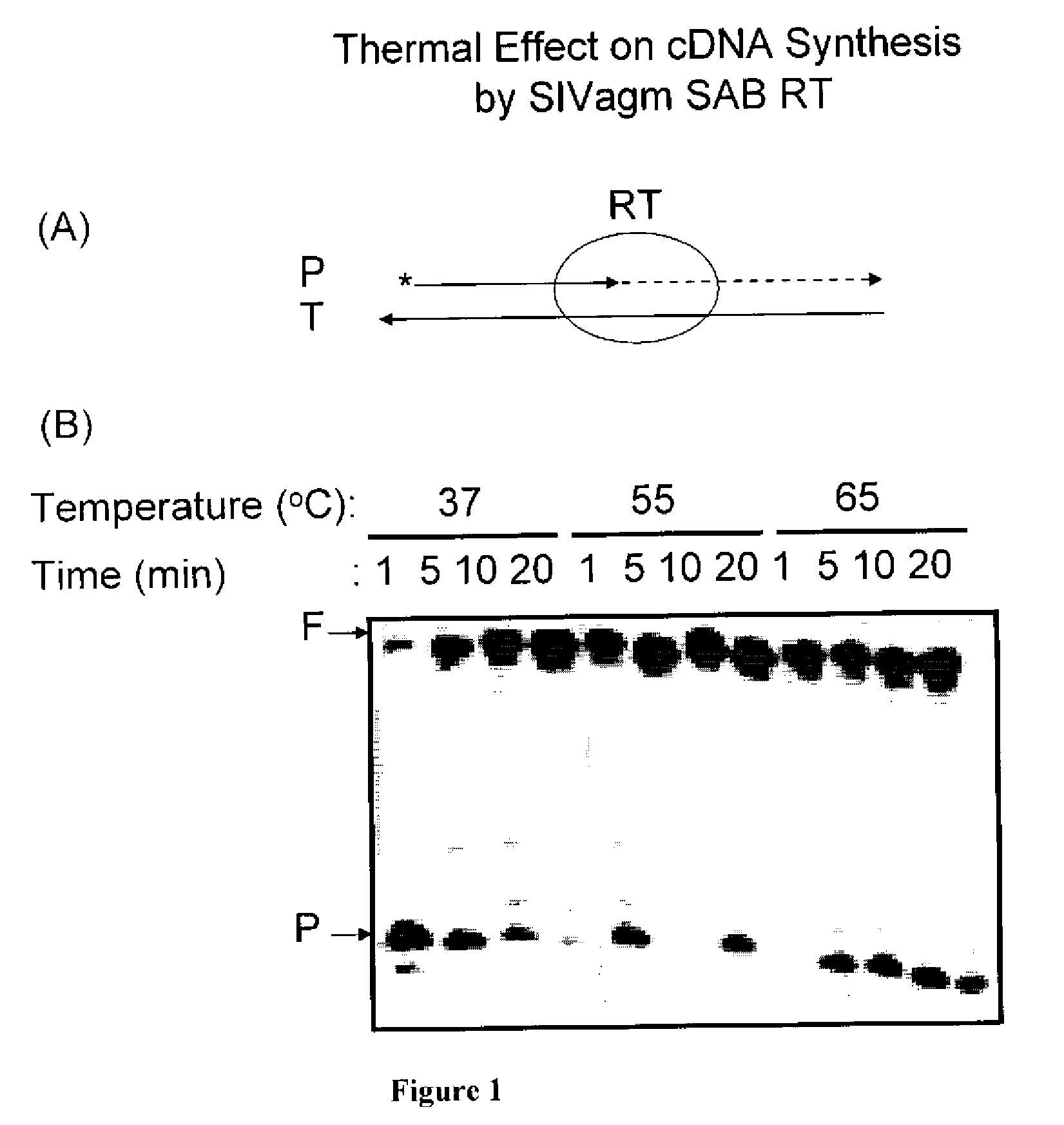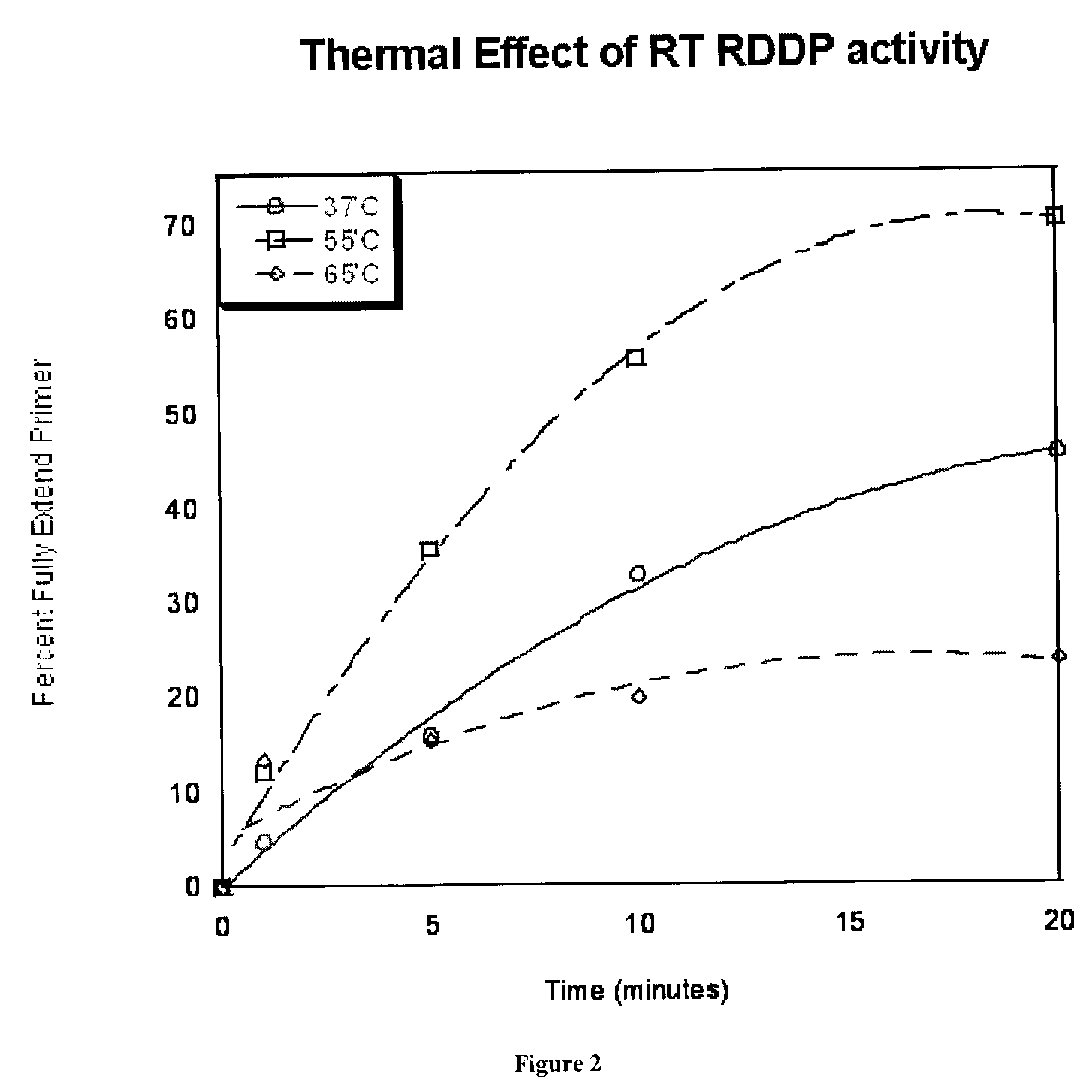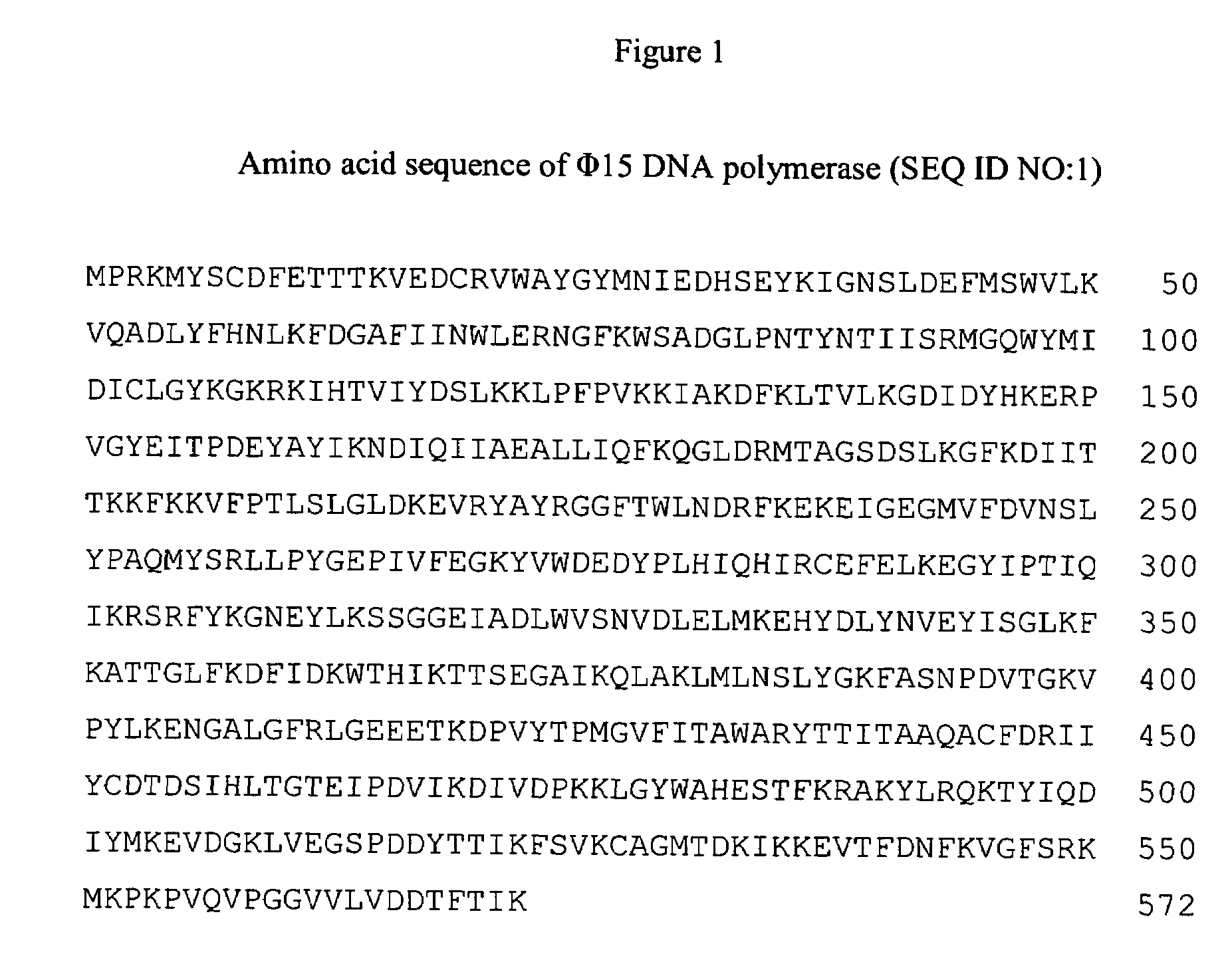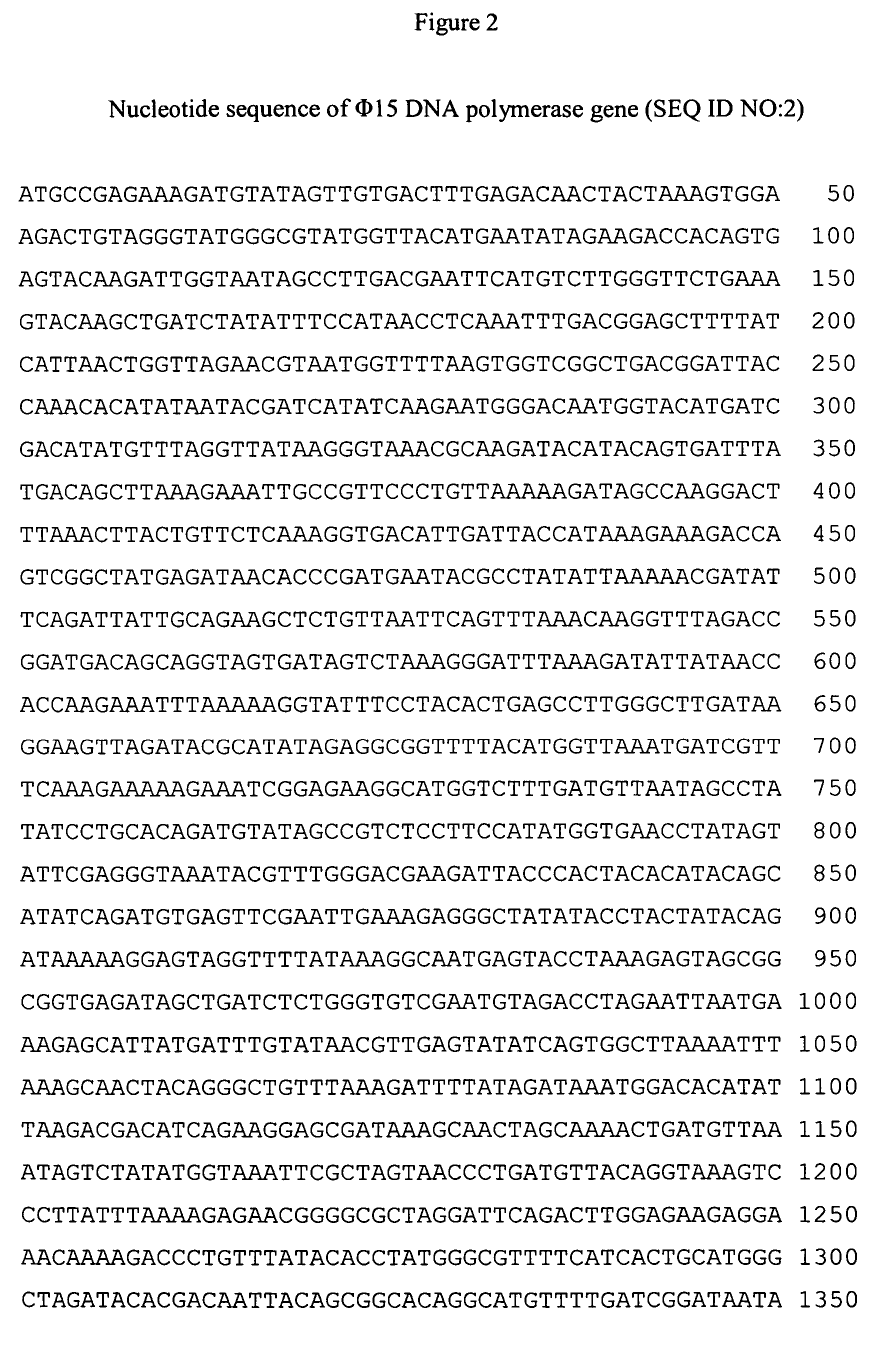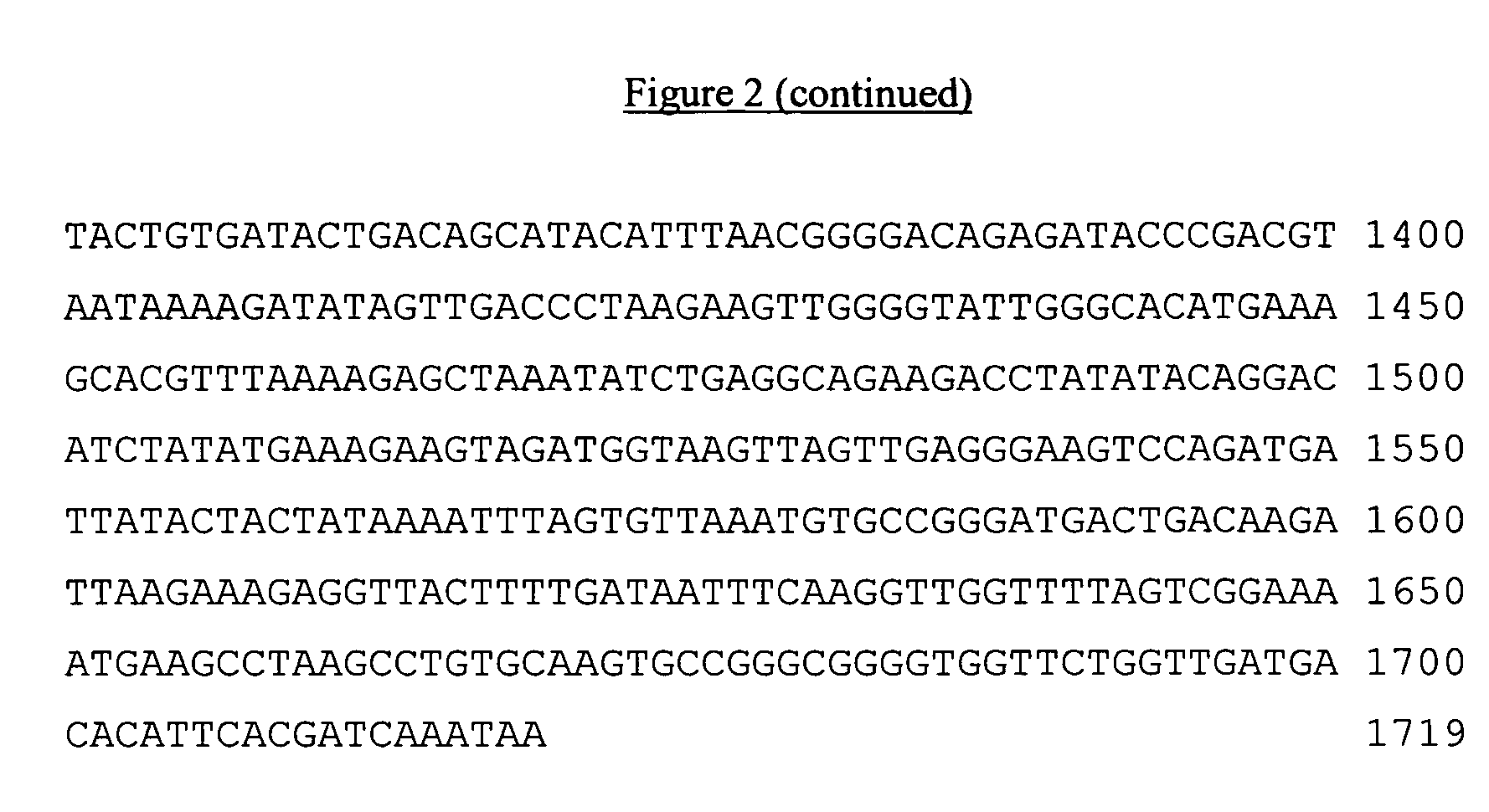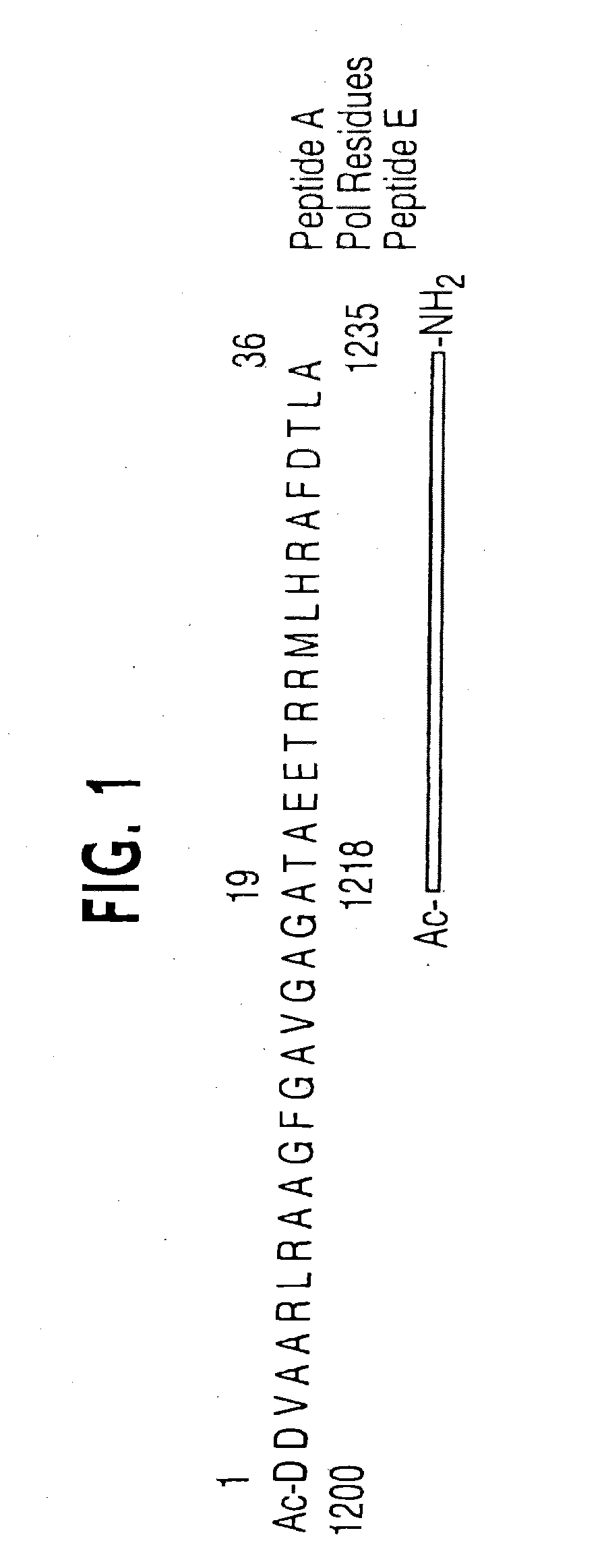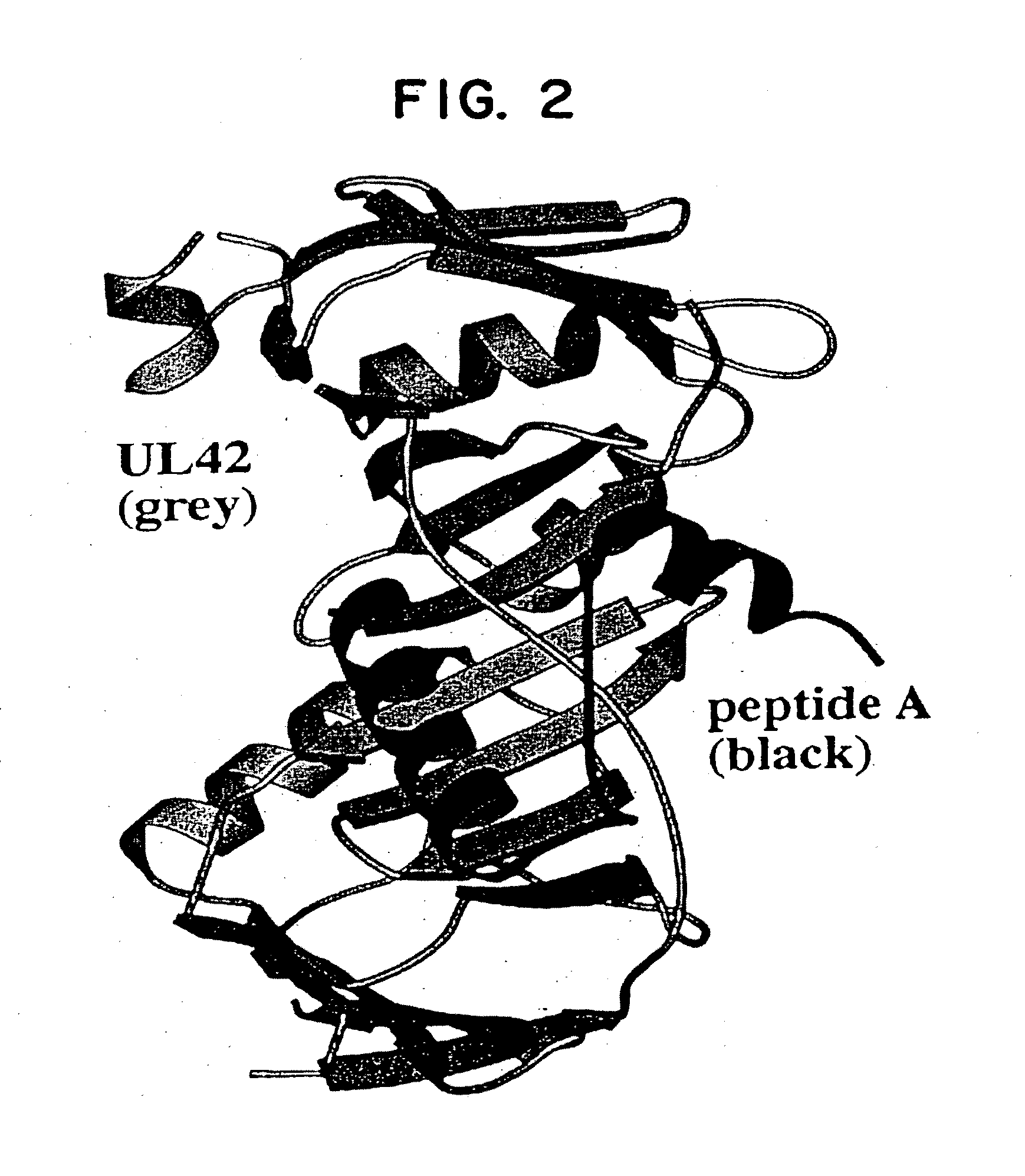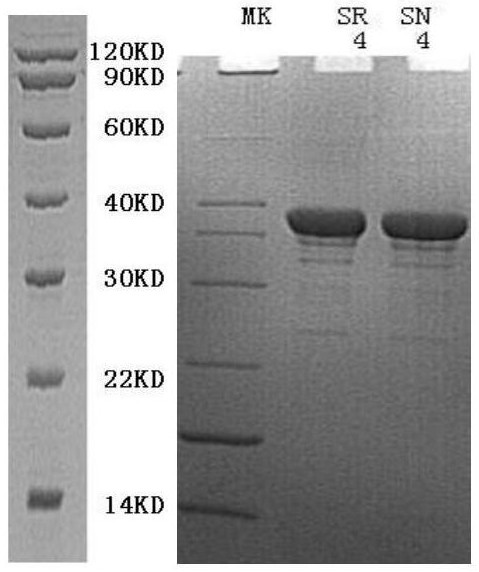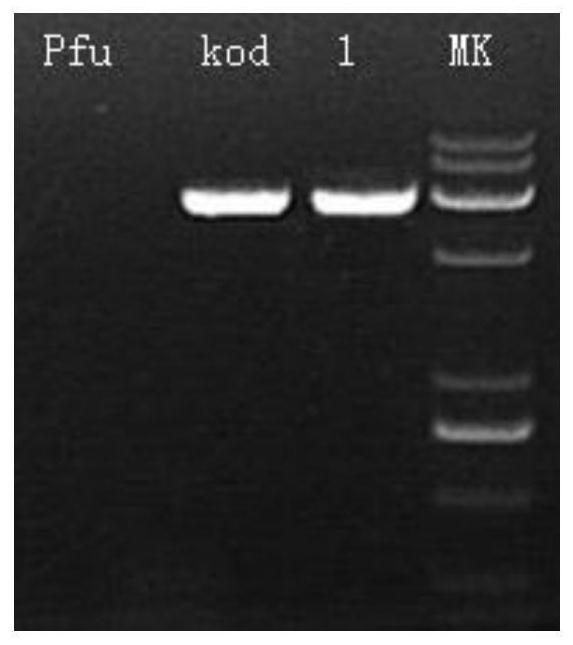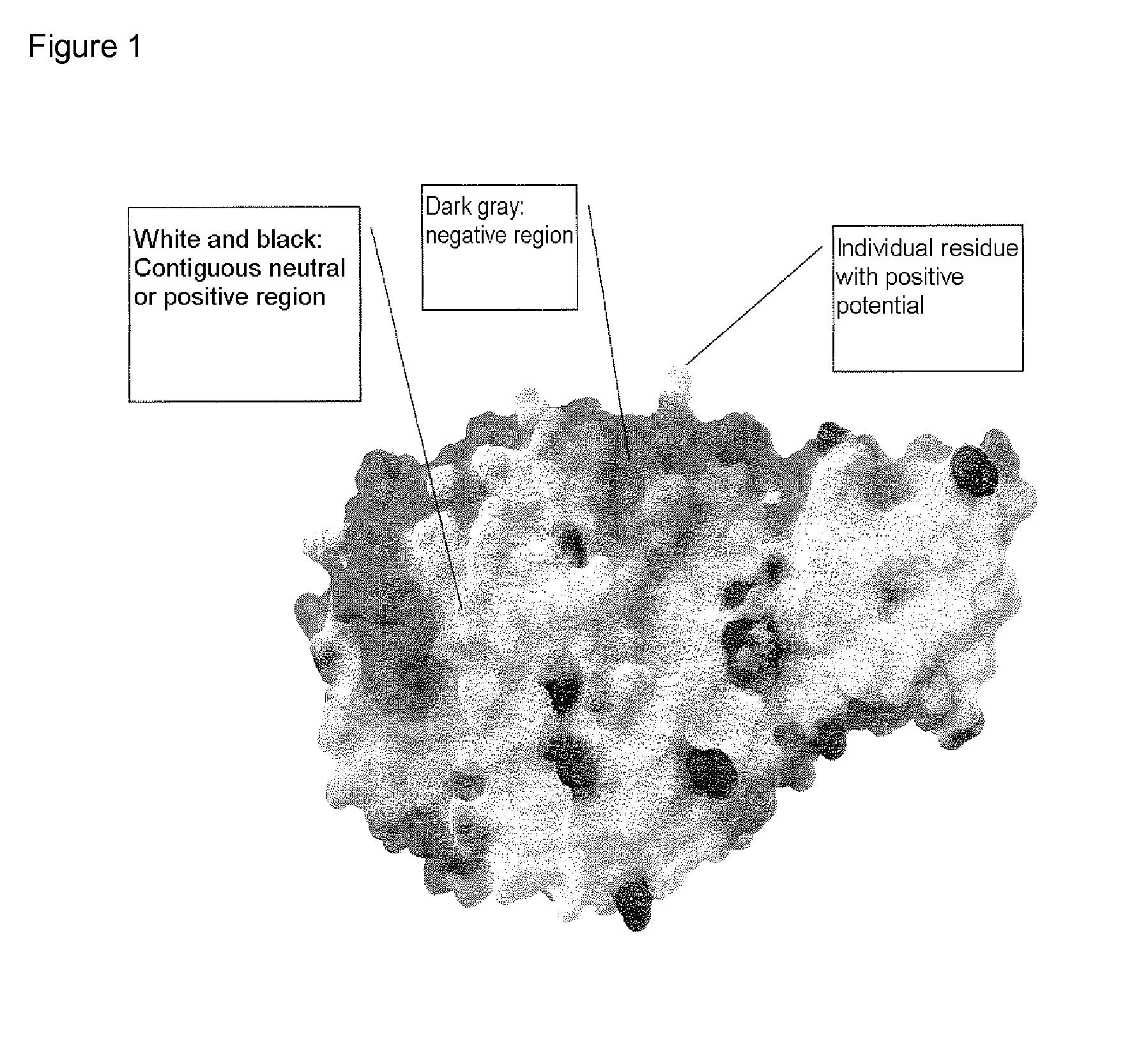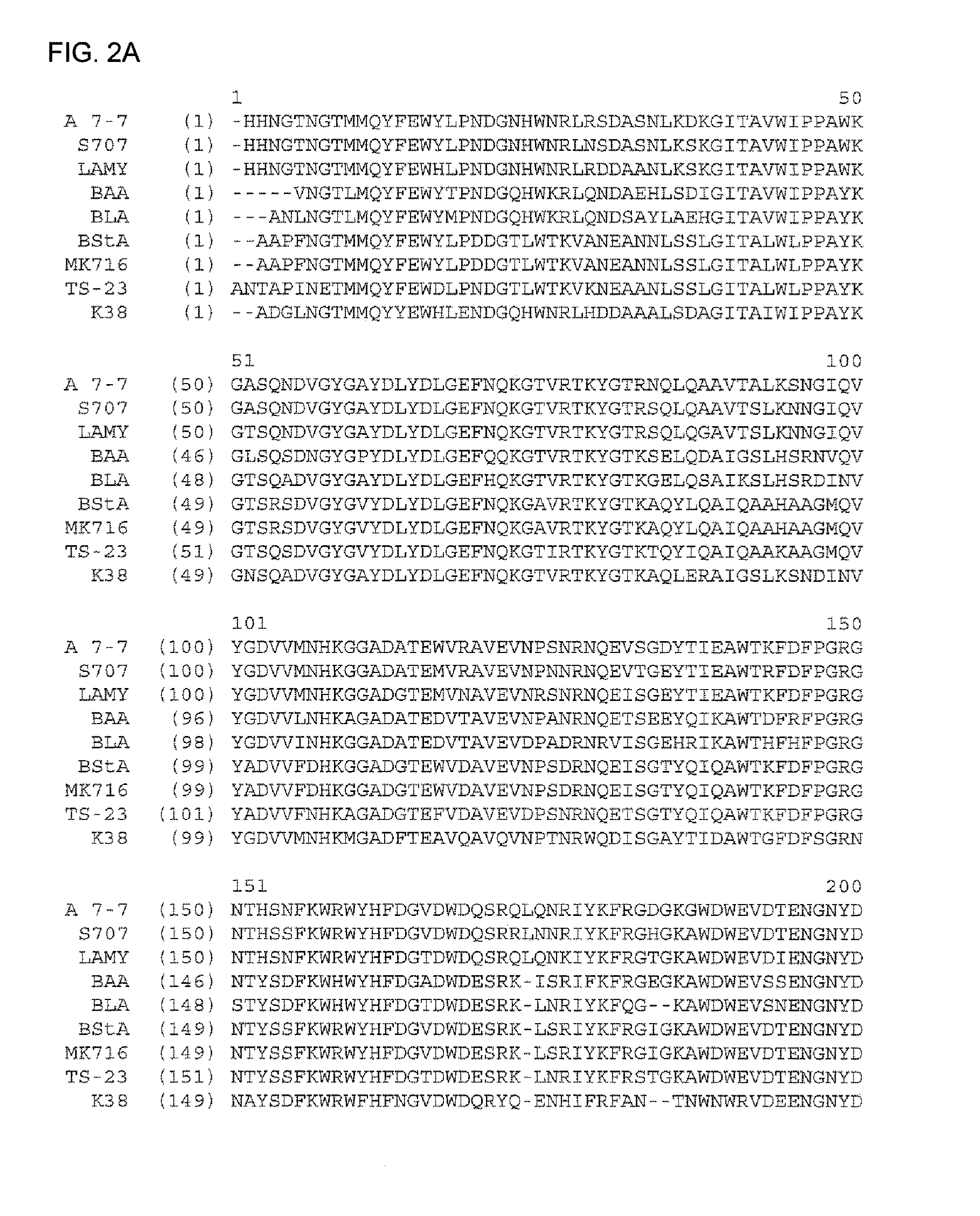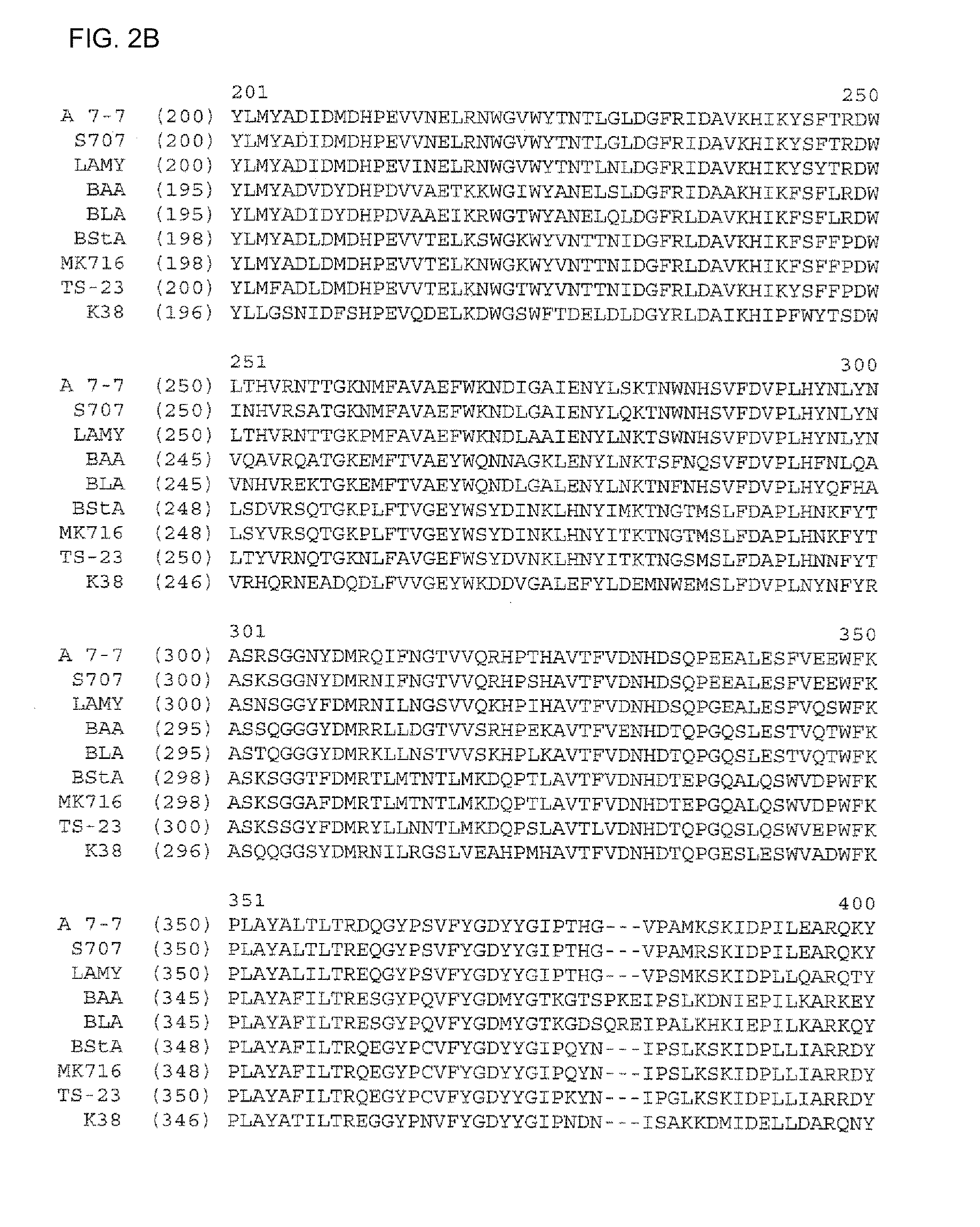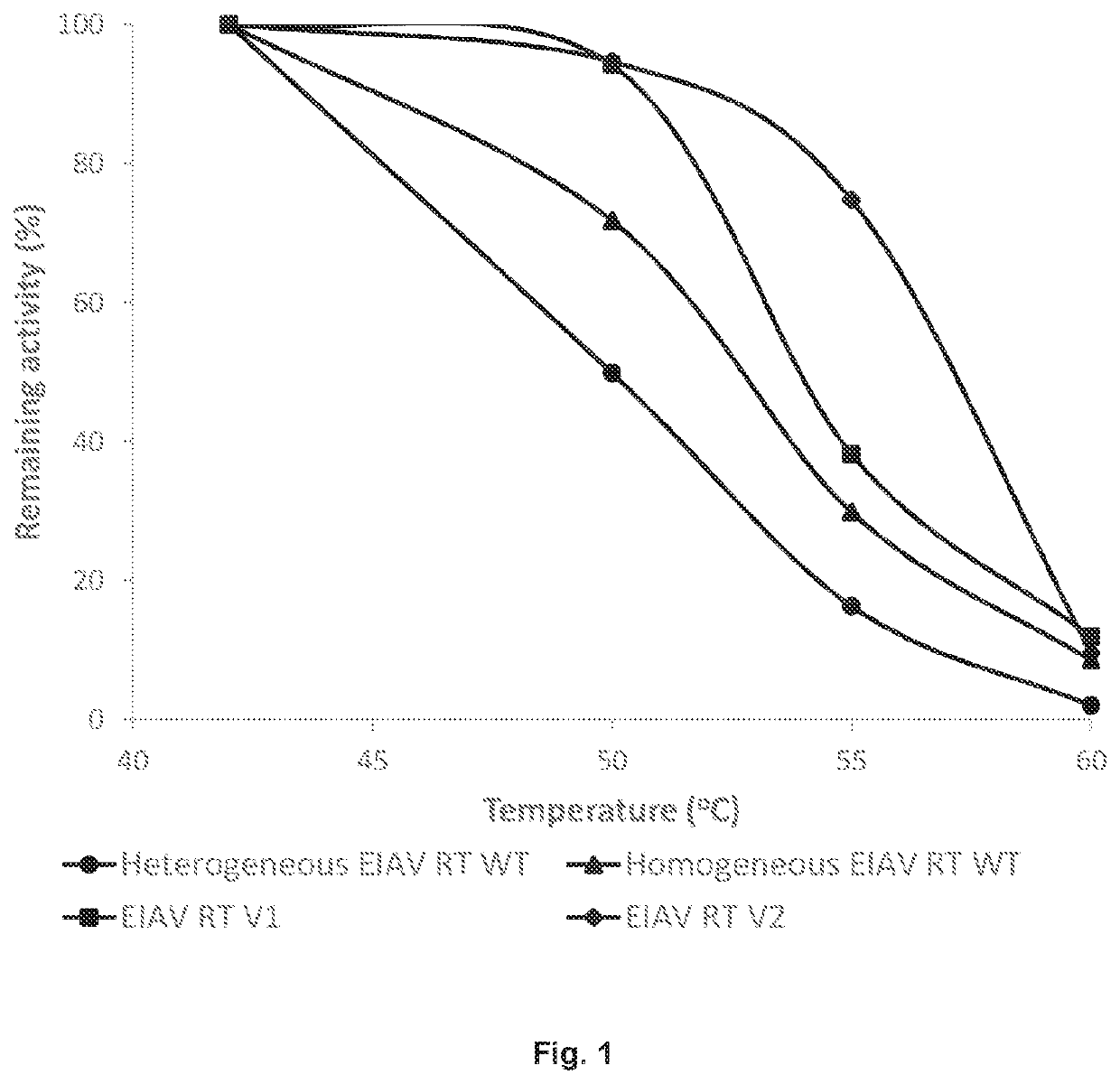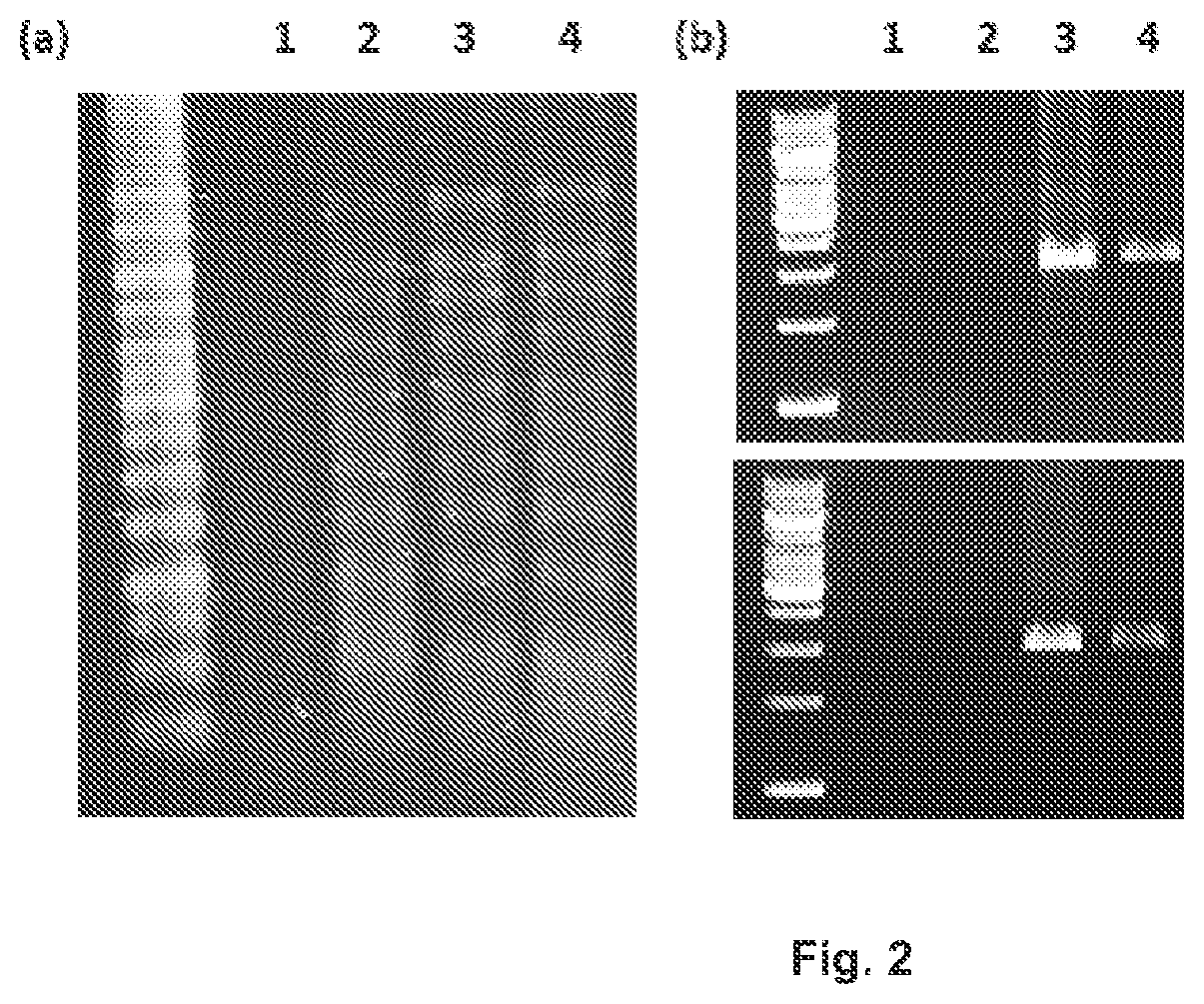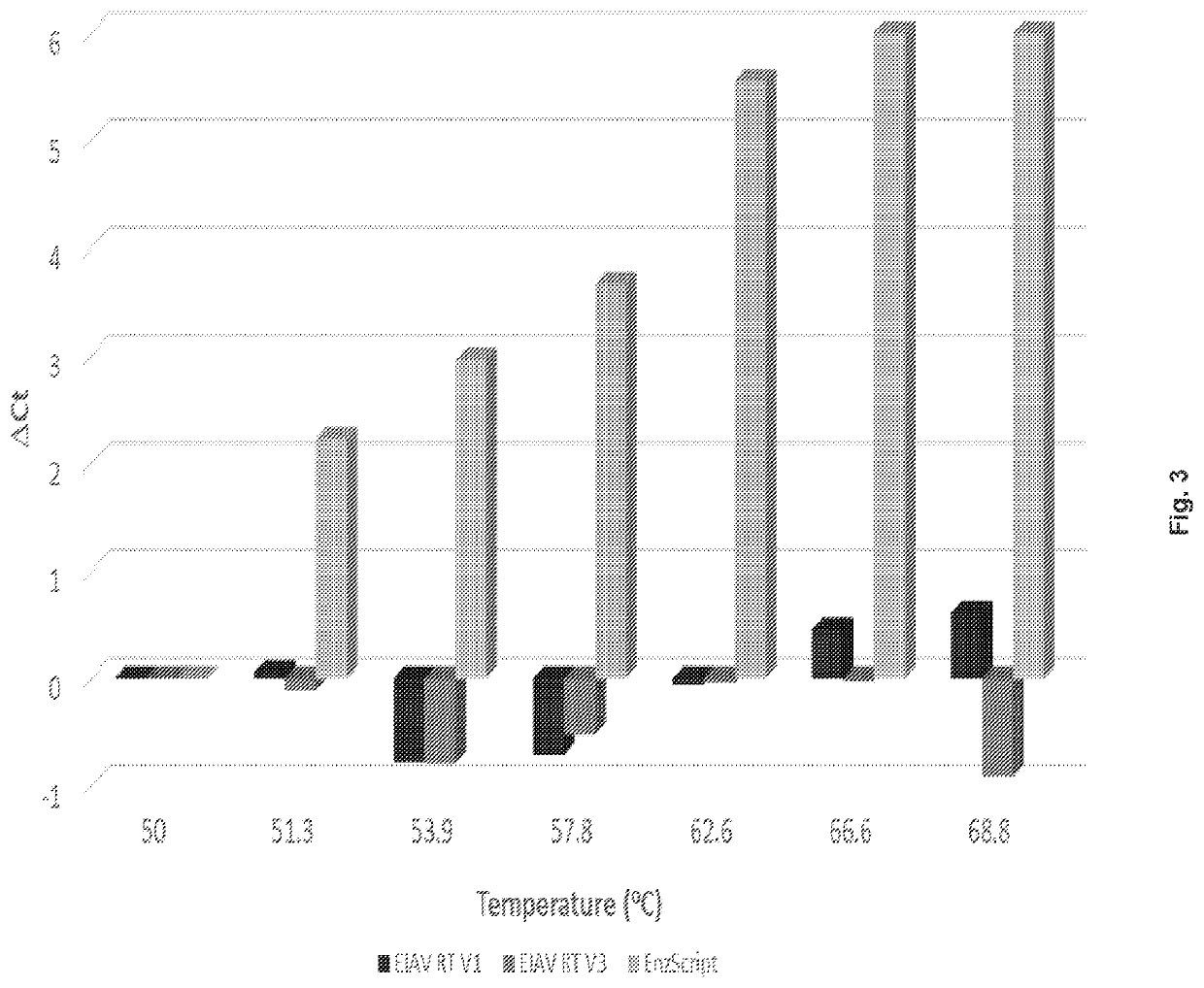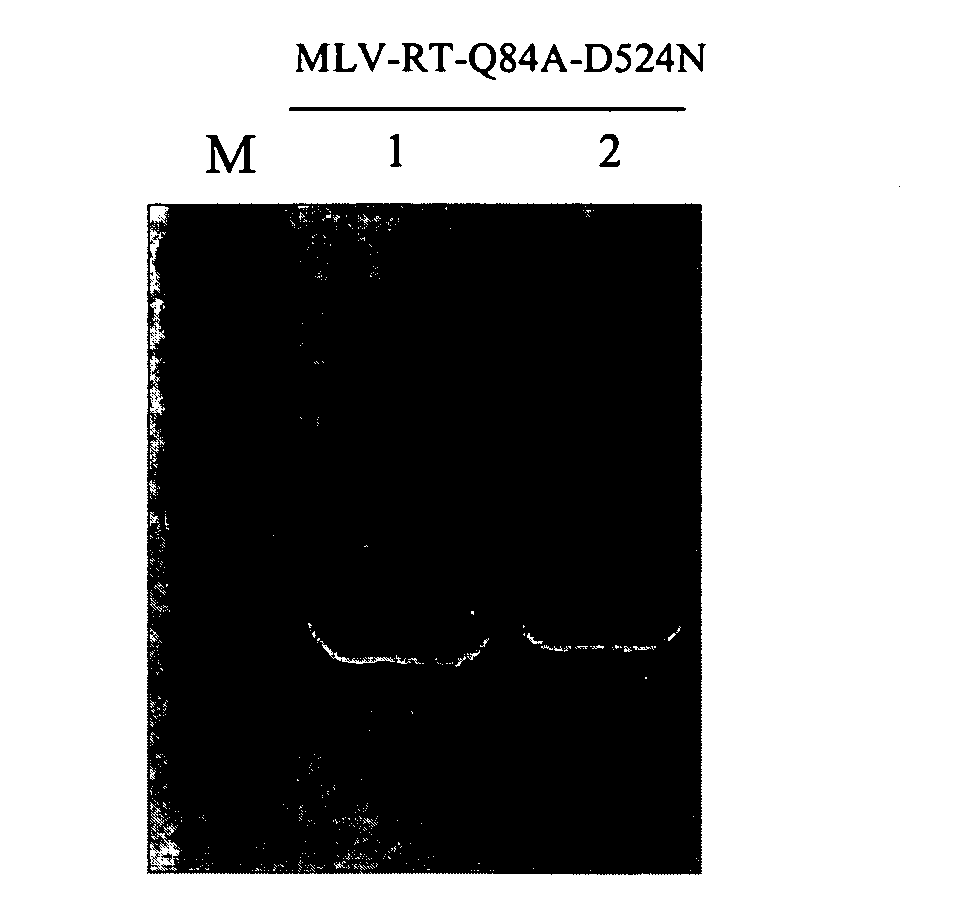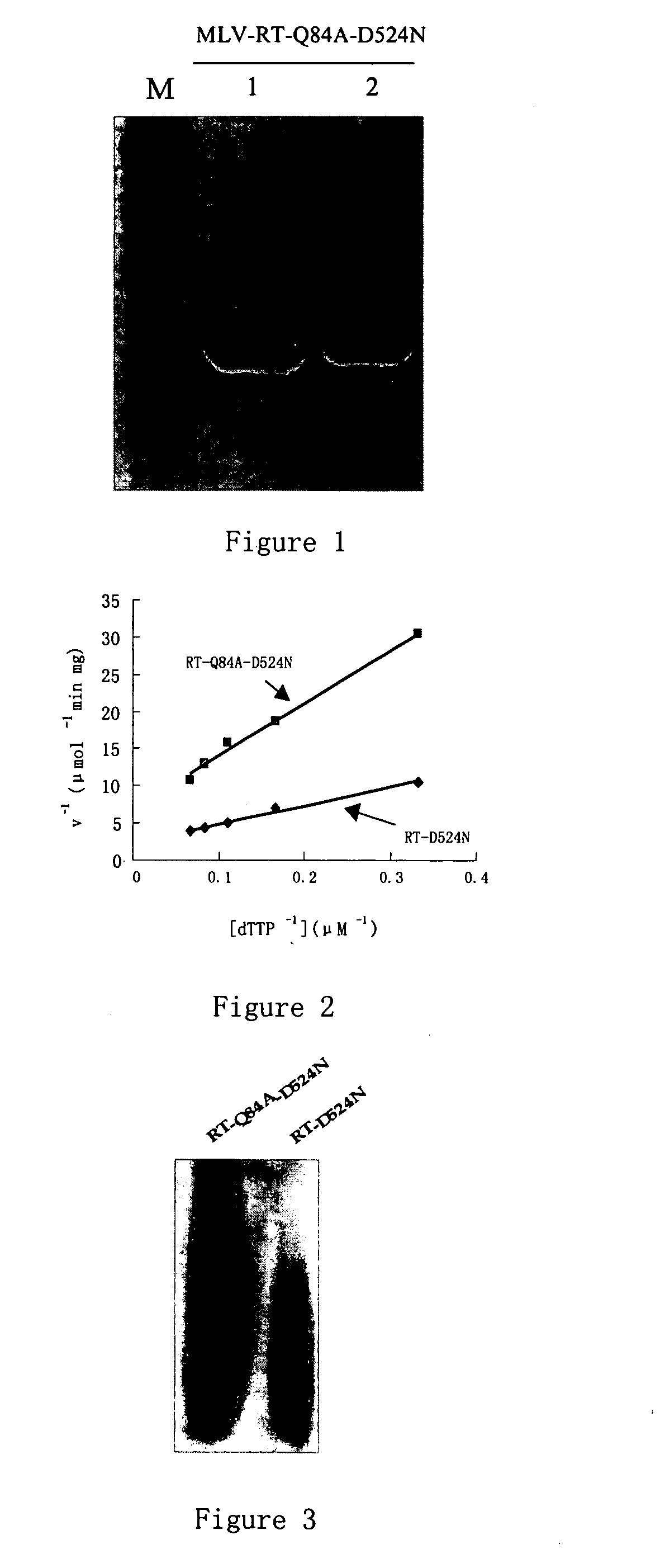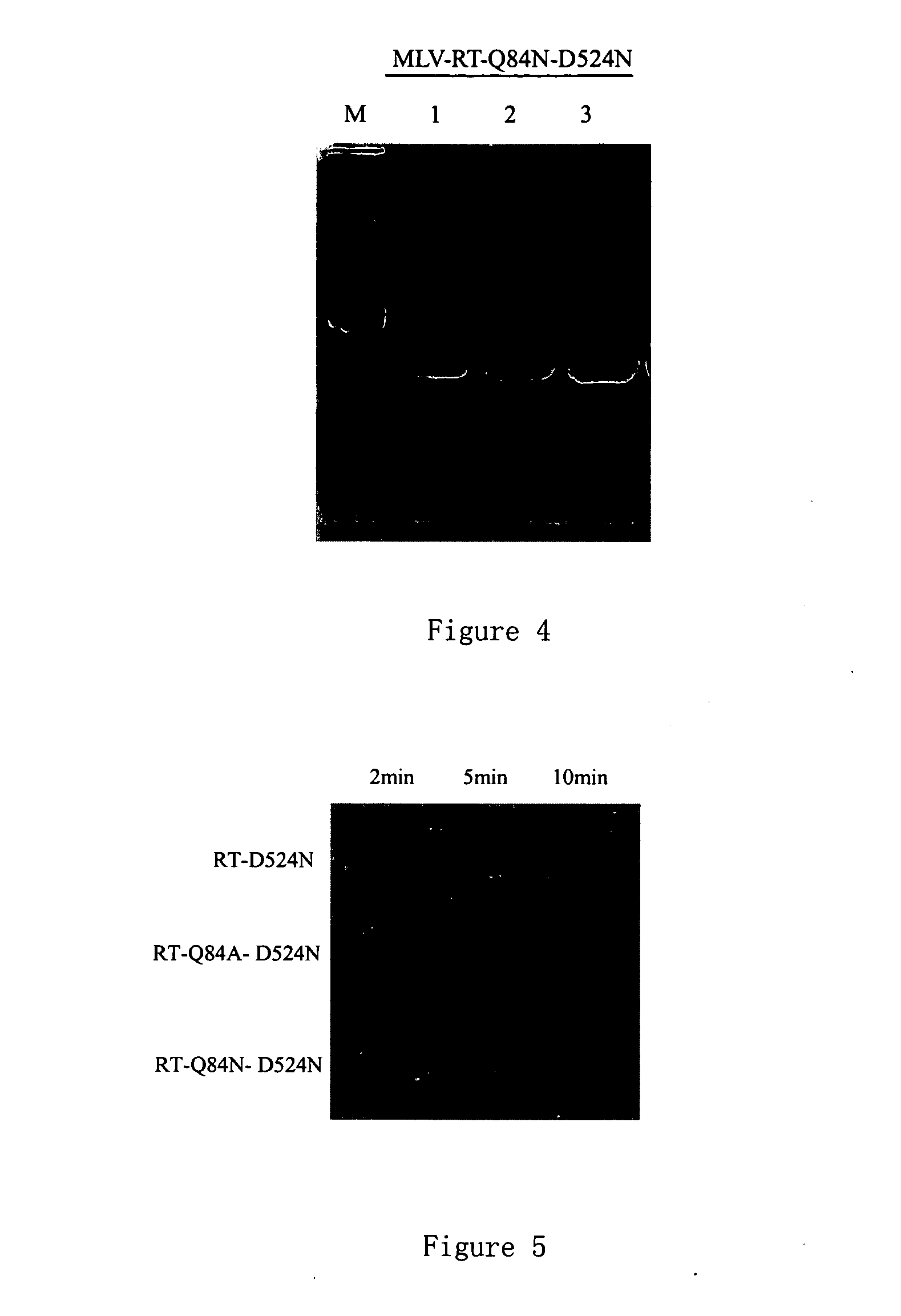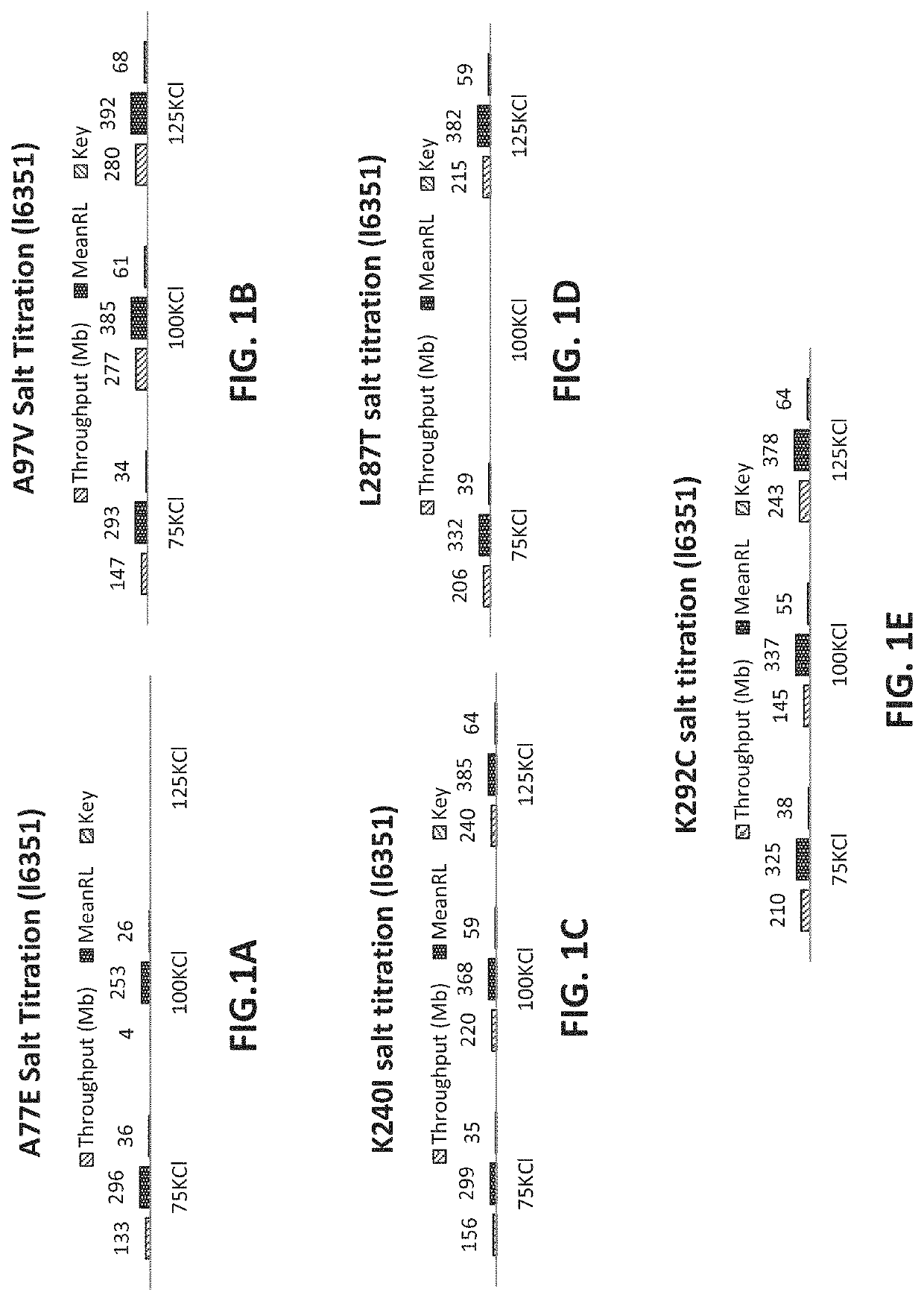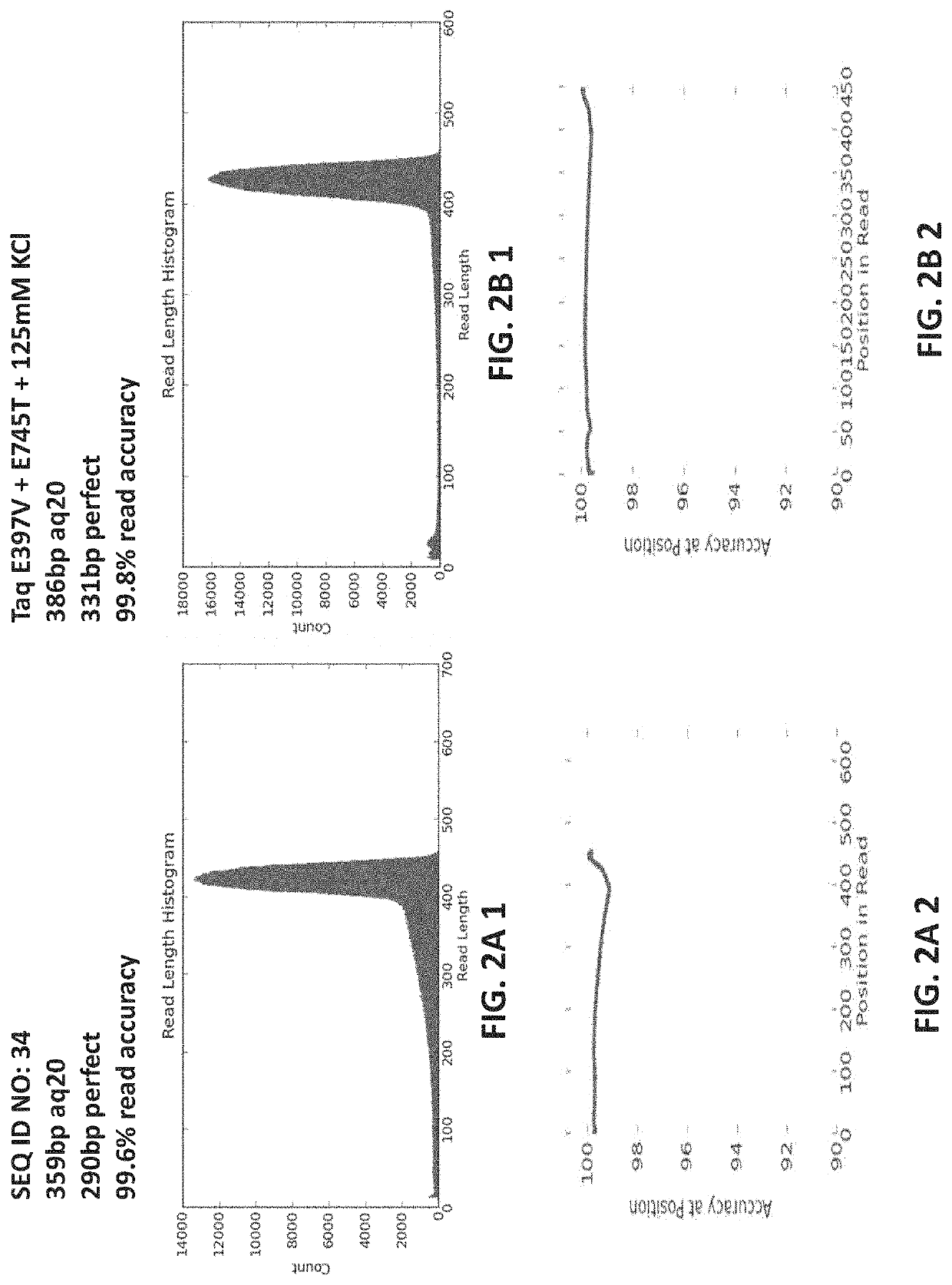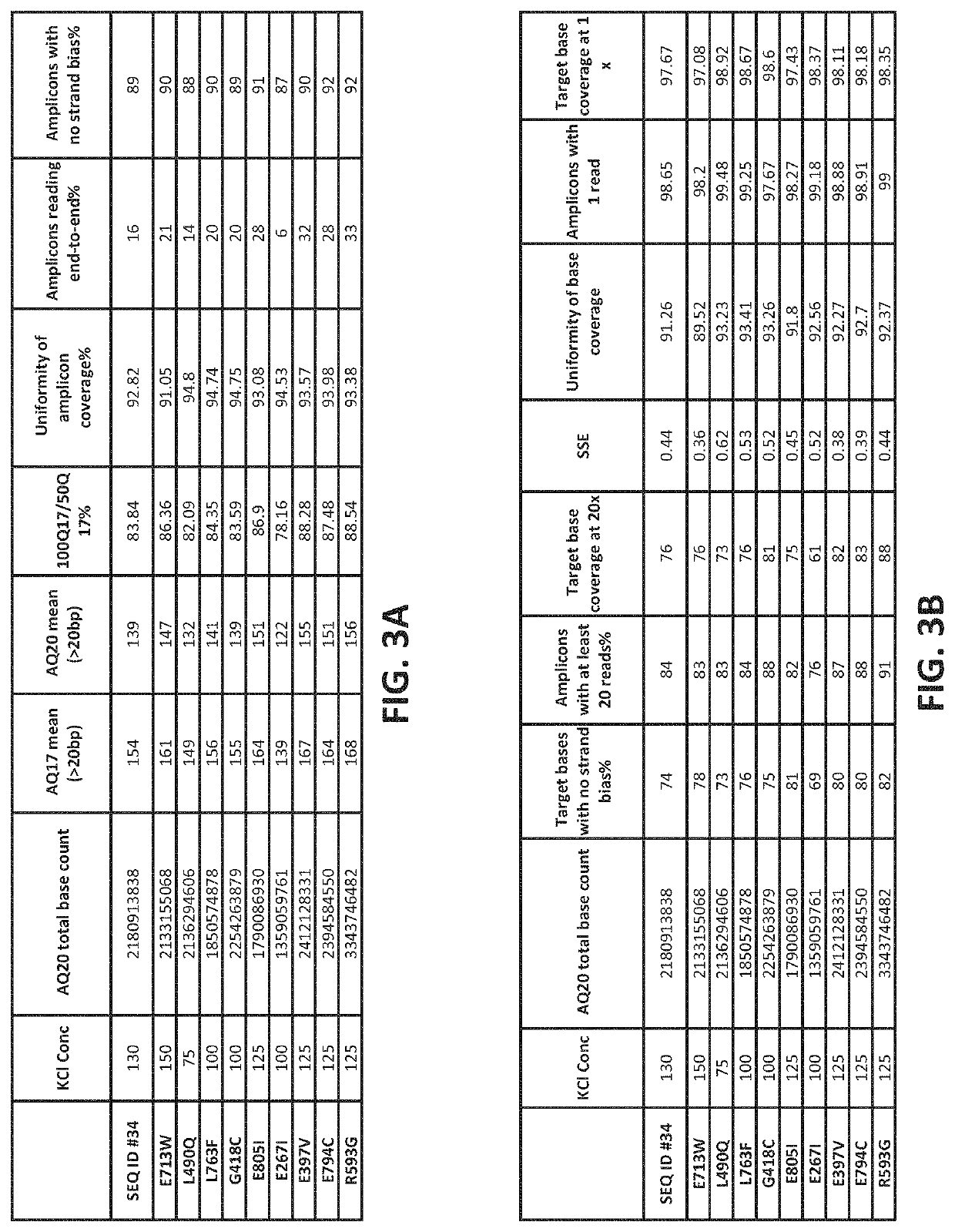Patents
Literature
Hiro is an intelligent assistant for R&D personnel, combined with Patent DNA, to facilitate innovative research.
39 results about "Processivity" patented technology
Efficacy Topic
Property
Owner
Technical Advancement
Application Domain
Technology Topic
Technology Field Word
Patent Country/Region
Patent Type
Patent Status
Application Year
Inventor
In molecular biology and biochemistry, processivity is an enzyme's ability to catalyze "consecutive reactions without releasing its substrate". For example, processivity is the average number of nucleotides added by a polymerase enzyme, such as DNA polymerase, per association event with the template strand. Because the binding of the polymerase to the template is the rate-limiting step in DNA synthesis, the overall rate of DNA replication during S phase of the cell cycle is dependent on the processivity of the DNA polymerases performing the replication. DNA clamp proteins are integral components of the DNA replication machinery and serve to increase the processivity of their associated polymerases. Some polymerases add over 50,000 nucleotides to a growing DNA strand before dissociating from the template strand, giving a replication rate of up to 1,000 nucleotides per second.
Recombinase polymerase amplification
ActiveUS7399590B2HydrolasesMicrobiological testing/measurementRecombinase Polymerase AmplificationSingle strand
Owner:ABBOTT DIAGNOSTICS SCARBOROUGH INC
Recombinase polymerase amplification
ActiveUS7270981B2Web data indexingMicrobiological testing/measurementSingle strandRecombinase Polymerase Amplification
This disclosure describe three related novel methods for Recombinase-Polymerase Amplification (RPA) of a target DNA that exploit the properties of the bacterial RecA and related proteins, to invade double-stranded DNA with single stranded homologous DNA permitting sequence specific priming of DNA polymerase reactions. The disclosed methods has the advantage of not requiring thermocycling or thermophilic enzymes. Further, the improved processivity of the disclosed methods allow amplification of DNA up to hundreds of megabases in length.
Owner:ABBOTT DIAGNOSTICS SCARBOROUGH INC
Recombinase polymerase amplification
ActiveUS20050112631A1HydrolasesMicrobiological testing/measurementRecombinase Polymerase AmplificationSingle strand
This disclosure describe three related novel methods for Recombinase-Polymerase Amplification (RPA) of a target DNA that exploit the properties of recombinase and related proteins, to invade double-stranded DNA with single stranded homologous DNA permitting sequence specific priming of DNA polymerase reactions. The disclosed methods have the advantage of not requiring thermocycling or thermophilic enzymes. Further, the improved processivity of the disclosed methods may allow amplification of DNA up to hundreds of megabases in length.
Owner:ABBOTT DIAGNOSTICS SCARBOROUGH INC
Therapeutic compounds for blocking DNA synthesis of pox viruses
ActiveUS20100035887A1Inhibition of replicationInhibit and reduce activityBiocideTetracycline active ingredientsMedicinePoxvirus Infections
This invention provides methods of inhibiting replication of a poxvirus by contacting a poxvirus with a compound having formula I, formula XXI, formula XXXII, or formula XLI which in turn reduce, inhibit, or abrogate poxvirus DNA polymerase activity and / or its interaction with its processivity factor. Formula I, formula XXI, formula XXXII, or formula XLI can be utilized to treat humans and animals suffering from a poxvirus infection. Pharmaceutical compositions for treating poxvirus infected subjects are also provided.
Owner:THE TRUSTEES OF THE UNIV OF PENNSYLVANIA
Recombinase polymerase amplification
InactiveUS20080076160A1Web data indexingMicrobiological testing/measurementSingle strandRecombinase Polymerase Amplification
This disclosure describe three related novel methods for Recombinase-Polymerase Amplification (RPA) of a target DNA that exploit the properties of the bacterial RecA and related proteins, to invade double-stranded DNA with single stranded homologous DNA permitting sequence specific priming of DNA polymerase reactions. The disclosed methods has the advantage of not requiring thermocycling or thermophilic enzymes. Further, the improved processivity of the disclosed methods allow amplification of DNA up to hundreds of megabases in length.
Owner:ABBOTT DIAGNOSTICS SCARBOROUGH INC
Alpha-amylase variants stabilized against dimerization and/or multimerization, method for the production thereof, and detergents and cleansers containing these alpha-amylase variants
InactiveUS20070212768A1Improve stabilityHigh homologyDetergent compounding agentsPancreatinAlpha-amylaseSolvent
The present invention relates to α-amylase variants that are stabilized to dimerization and / or multimerization, in particular at elevated temperatures or high pH, by point mutagenesis of positively polarized or charged or neutral surface amino acids to give more negatively polarized or charged amino acids. The invention further relates to methods of increasing the stability of an α-amylase to dimerization and / or multimerization brought about by electrostatic interactions whereby at least one amino acid residue on the surface of the starting molecule, which makes a neutral or positively polar or charged contribution to the electrostatic potential of said molecule, is replaced with a more negatively polar or negatively charged amino acid residue. The α-amylase variants obtained thereby exhibit better stability to influences of the solvent, increased processivity, and are suited for numerous industrial areas of use, in particular as active ingredients in detergents and cleansers.
Owner:BASF AG
Polymerase variants
ActiveUS20180245147A1Easy to processIncrease read lengthMicrobiological testing/measurementTransferasesPolymerase LBiology
The present of disclosure provides variant Pol6 polymerase polypeptide, compositions comprising the Pol6 variant polypeptides, and methods for using the variant Pol6 polypeptides for determining the sequencing of nucleic acids, for example, by nanopore sequencing. The variant Pol6 polymerases possess decreased rates of dissociation of template from the polymerase-template complex, which result n increased processivity relative to the parental Pol6 polypeptides from which they are derived.
Owner:ROCHE SEQUENCING SOLUTIONS INC
Hot start polymerase reaction using a thermolabile blocker
The invention relates to compositions, methods, and kits for hot start polynucleotide synthesis, including extension of primed polynucleotide templates and polymerase chain reaction (PCR). Hot start is provided by a thermally inactivated blocking polymerase protein that binds primed polynucleotide templates and prevents their access to a thermostable nucleic acid polymerase. High temperatures employed in the synthesis reaction cause the blocking polymerase to denature, thereby permitting the action of a thermostable processive polymerase. Compositions of the invention include a specific blocking polymerase protein which is a mutant of the Klenow fragment of E. coli DNA polymerase. The mutant is essentially devoid of polymerase activity, processivity, and 3′ to 5′ exonuclease activity. Use of the thermally inactivated blocking polymerase together with a thermostable polymerase reduces non-specific priming and accumulation of unwanted amplification products, increasing the specificity and sensitivity of the synthesis reaction.
Owner:STRATAGENE INC US
Polymerase-template complexes
InactiveUS20170268052A1Easy to processMicrobiological testing/measurementTransferasesHigh concentrationBiotechnology
The present disclosure provides methods and compositions for enhancing the processivity of a polymerase in catalyzing template-dependent DNA synthesis in high concentrations of salt. Also disclosed are methods and compositions for enhancing the assembly of polymerase-template complex compatible with active DNA synthesis in the presence of low levels of nucleotides and at a high temperature, such as temperatures at or near the melting temperature of the polymerase.
Owner:GENIA TECH
Polymerase Variants
ActiveUS20180094249A1Improved strand displacementCharacteristic can be alteredMicrobiological testing/measurementTransferasesBiotechnologyPolymerase L
The present disclosure provides variant Pol6 polymerase polypeptides, compositions comprising the Pol6 variant polypeptides, and methods for using the variant Pol6 polypeptides for determining the sequencing of nucleic acids, for example, by nanopore sequencing. The variant Pol6 polymerases possess decreased rates of dissociation of template from the polymerase-template complex, which result in increased processivity relative to the parental Pol6 polypeptides from which they are derived.
Owner:ROCHE SEQUENCING SOLUTIONS INC +1
Method of producing short hairpin library
InactiveUS20070141594A1Improve synthesis abilityEfficient processingMicrobiological testing/measurementFermentationNucleotideGenetics
Described herein is a method of cloning synthetic oligos (including in situ synthesized oligos) into an (one or more) expression vector for library (e.g., shRNA library) production. The oligos are synthesized with one portion of the first stem of the hairpin, followed by a first loop sequence, the complete second stem, a second loop sequence, and finished with the remaining portion of the first stem of the hairpin. The two portions of the first stem anneal to the second stem, juxtaposing the 5′ end close to the 3′ end of the oligo. The methods described herein selected for hairpins with perfectly base-paired stems. After annealing, a ligase is added to the annealed oligos and the base-paired hairpins are preferentially annealed, and ligated, creating closed circular oligos. The now circularized hairpins served as templates for rolling circle amplification using a polymerase with high processivity. One or more primers complementary to the two strands of the amplified double stranded circular hairpins initiate the rolling circle amplification in the presence of a polymerase. Using primers (e.g., a sense and antisense primer), the rolling circle amplification yields double stranded hairpin sequences. These can be digested (e.g., using restriction enzymes) to produce a double-stranded hairpin fragment encoding a single hairpin. The fragment can be cloned into an appropriately digested vector for a variety of uses including expression.
Owner:DANA FARBER CANCER INST INC +1
Mutant DNA polymerases and their genes from thermococcus
The present invention relates to mutant DNA polymerases and their genes isolated from Thermococcus sp. More specifically, the present invention relates to mutant DNA polymerases which are originally isolated from Thermococcus sp NA1. strain and produced by site-specific mutagenesis, their amino acid sequences, genes encoding said mutant DNA polymerases, their nucleic acids sequences, recombinant vectors containing said nucleic acids sequences, host cells transformed with thereof and methods for producing mutant DNA polymerase protein by using thereof. As mutant DNA polymerases according to the present invention have increased processivity by site-specific mutagenesis on exonuclease active site compared to wild type DNA polymerase, the present invention is broadly applicable for PCR in various molecular genetic technologies.
Owner:KOREA OCEAN RES & DEV INST
Alpha-amylase variants having an elevated solvent stability, method for the production thereof and detergents and cleansers containing these alpha-amylase variants
ActiveUS8080401B2Improve stabilityImprove instabilitySugar derivativesBiochemical fibre treatmentAlpha-amylaseSolvent
Owner:HENKEL KGAA
DNA polymerase mutants with increased processivity of DNA synthesis
Disclosed are Dpo4 DNA polymerase mutants with increased DNA synthesis processivity. The mutant enzymes, Dpo4 A181D and Dpo4 E63K, are constructed based on the wild-type Dpo4 derived from Sulfolobus solfataricus to obtain Dpo4DNA polymerase mutants with increased DNA processivity. The extension length of Dpo4 A181D and Dpo4 E63K are respectively increased by 25% and 18.8% than that of the wild-type Dpo4. The fidelity of Dpo4 A181D and wild-type Dpo4 are similar, and the fidelity of Dpo4 E63K is increased from that of the wild-type Dpo4. In summary, the mutants Dpo4 A181D and Dpo4 E63K obtained by the present invention have increased processivity compared to that of the wild-type Dpo4 DNA polymerase.
Owner:JIANGNAN UNIV
Sso7d-Sau recombinant DNA polymerase
InactiveCN104480081AImprove scalabilityImprove toleranceFusion with DNA-binding domainTransferasesBiotechnologyDNA polymerase I
The invention relates to an Sso7d-Sau recombinant DNA polymerase. The Sso7d-Sau recombinant DNA polymerase is the hybrid DNA polymerase obtained by covalently linking Sso7d protein to the N end of a staphylococcus aureus DNA polymerase I (Sau) protein sequence by a flexible linkage sequence, wherein the amino acid sequence of the Sso7d-Sau recombinant DNA polymerase is shown in SEQ ID No. 2, or an amino acid sequence is formed by replacing, deleting or adding one or more amino acids of the amino acid sequence shown in SEQ ID No. 2 and has the same function as the amino acid sequence shown in SEQ ID No. 2. The invention further provides a gene for coding the protein as well as a preparation method and an application of the protein. The transformed DNA polymerase disclosed by the invention keeps the catalytic activity invariable, however, the processivity is remarkably improved, the tolerance to salt is improved, and the DNA amplification effect of a recombinase-mediated nucleic acid isothermal amplification technology can be remarkably improved during farmland and field detection processes. The DNA polymerase has a wide application prospect.
Owner:THE INST OF BIOTECHNOLOGY OF THE CHINESE ACAD OF AGRI SCI
Therapeutic compounds for blocking DNA synthesis of pox viruses
ActiveUS8278342B2Inhibit and reduce activityInhibition of replicationBiocideTetracycline active ingredientsPoxvirus InfectionsViral replication
This invention provides methods of inhibiting replication of a poxvirus by contacting a poxvirus with a compound having formula XVII which in turn reduce, inhibit, or abrogate poxvirus DNA polymerase activity and / or its interaction with its processivity factor. Formula XVII can be utilized to treat humans and animals suffering from a poxvirus infection. Pharmaceutical compositions for treating poxvirus infected subjects are also provided.
Owner:THE TRUSTEES OF THE UNIV OF PENNSYLVANIA
Polymerase variants
The present of disclosure provides variant Pol6 polymerase polypeptide, compositions comprising the Pol6 variant polypeptides, and methods for using the variant Pol6 polypeptides for determining the sequencing of nucleic acids, for example, by nanopore sequencing. The variant Pol6 polymerases possess decreased rates of dissociation of template from the polymerase-template complex, which result in increased processivity relative to the parental Pol6 polypeptides from which they are derived.
Owner:ROCHE SEQUENCING SOLUTIONS INC
PHI 15 DNA polymerase
A purified recombinant DNA polymerase having high processivity and strand-displacement activity. An isolated nucleic acid that encodes the bacteriophage DNA polymerase. A kit and method for amplifying DNA is also disclosed.
Owner:GE HEALTHCARE BIO SCI CORP
Single-molecule real-time analysis of protein synthesis
The present invention is generally directed to compositions, methods, and systems for performing single-molecule, real-time analysis of analytical reactions in which protein synthesis is occurring. The ability to analyze such reactions provides an opportunity to study those reactions as well as to potentially identify factors and / or approaches for impacting such reactions, e.g., to either enhance, inhibit, or otherwise affect such reactions including, but not limited to, affecting the reaction rate, processivity, fidelity, duration, and the like.
Owner:PACIFIC BIOSCIENCES
DNA Polymerase Mutants with Increased Processivity of DNA Synthesis
ActiveUS20190203190A1Easy to processIncreased DNA processivityTransferasesFermentationWild typePolymerase
Disclosed are Dpo4 DNA polymerase mutants with increased DNA synthesis processivity. The mutant enzymes, Dpo4 A181D and Dpo4 E63K, are constructed based on the wild-type Dpo4 derived from Sulfolobus solfataricus to obtain Dpo4DNA polymerase mutants with increased DNA processivity. The extension length of Dpo4 A181D and Dpo4 E63K are respectively increased by 25% and 18.8% than that of the wild-type Dpo4. The fidelity of Dpo4 A181D and wild-type Dpo4 are similar, and the fidelity of Dpo4 E63K is increased from that of the wild-type Dpo4. In summary, the mutants Dpo4 A181D and Dpo4 E63K obtained by the present invention have increased processivity compared to that of the wild-type Dpo4 DNA polymerase.
Owner:JIANGNAN UNIV
Gamma-secretase stabilizing compound screening assay
ActiveUS20190339292A1Reduce productionPreventing Alzheimer diseaseCompound screeningApoptosis detectionAβ peptideGamma secretase
The present invention relates to the field of neurodegenerative diseases. More specifically, the present invention relates to a screening assay to produce compounds stabilizing the gamma-secretase enzyme substrate complex, thereby increasing gamma-secretase processivity while attenuating the release of longer Aβ peptides. More specifically, gamma-secretase stabilizing compounds increase thermostability of the enzyme / substrate complexes acting in the sequential γ-secretase processing of APP, to result in reduced amyloidogenic Aβ production, thereby preventing Alzheimer disease.
Owner:VLAAMS INTERUNIVERSITAIR INST VOOR BIOTECHNOLOGIE VZW +1
Methods of using improved polymerases
InactiveUS8232078B2Easy to processEfficient polymerase reactionFusion with DNA-binding domainAntibody mimetics/scaffoldsPolymerase LBinding domain
This invention provides for methods of sequencing and performing polymerase reactions using an improved generation of nucleic acid polymerases. The improvement is the fusion of a sequence-non-specific nucleic-acid-binding domain to the enzyme in a manner that enhances the processivity of the polymerase.
Owner:BIO RAD LAB INC
THERMOACTIVE SIVagm SAB REVERSE TRANSCRIPTASE
InactiveUS20090325235A1High activityImprove fidelityMicrobiological testing/measurementEnzymesReverse transcriptasePolymerase L
Methods and kits performing reverse transcription and RT-PCR reactions having high fidelity, processivity and DNA polymerase activity are described. The methods involve performance of reverse transcription at an increased temperature with a reverse transcriptase from Simian Immunodeficiency Virus-agm.sab or a variation thereof. The kits of the present invention include a reverse transcriptase from Simian Immunodeficiency Virus-agm.sab or a variation thereof, a DNA polymerase capable of amplifying cDNA under conditions suitable for polymerase chain reaction, and the reagents necessary to carry out both processes.
Owner:UNIVERSITY OF ROCHESTER
PHI 15 DNA polymerase
Owner:GE HEALTHCARE BIO SCI CORP
Structure-based approach to design of inhibitors of protein-processivity factor interactions
A method for the structure-based identification and selection of inhibitors of processivity factor binding to protein is disclosed herein. Characterization of the protein / processivity factor interface is given. Methods for the structure-based inhibition of processivity factor binding to protein are also given. One embodiment includes a class of peptidomimetics that mimic helical portions of proteins. In addition, methods of treatment of various diseases are given, using the inhibitors of the invention.
Owner:PRESIDENT & FELLOWS OF HARVARD COLLEGE
A kind of novel chimeric dna polymerase and preparation method thereof
The present invention develops a novel chimeric DNA polymerase, and in some embodiments, the chimeric polymerase designed according to the present invention has processivity, elongation rate, and thermostability substantially similar to the first DNA polymerase and a fidelity substantially similar to that of the second DNA polymerase. The first DNA polymerase of the present invention is KOD polymerase SEQ ID No.1, and the second DNA polymerase is Pfu polymerase SEQ ID No.2. The technical solution of the present invention utilizes the switching of functional regions in high-fidelity DNA polymerases to combine the expected functional characteristics of different DNA polymerases. Among other things, the present invention provides robust, fast and accurate DNA polymerases for DNA amplification, synthesis, detection, sequencing and other important recombinant DNA techniques. The innovative high-fidelity DNA polymerase invented is a high-fidelity DNA polymerase with high fidelity, high processivity, high elongation rate, thermostability, and salt tolerance.
Owner:NOVOPROTEIN SCI INC
Alpha-amylase variants stabilized against dimerization and/or multimerization, method for the production thereof, and detergents and cleansers containing these alpha-amylase variants
InactiveUS8785365B2High homologyHigh activityBiochemical fibre treatmentNon-surface-active detergent compositionsAlpha-amylaseSolvent
The present invention relates to α-amylase variants that are stabilized to dimerization and / or multimerization, in particular at elevated temperatures or high pH, by point mutagenesis of positively polarized or charged or neutral surface amino acids to give more negatively polarized or charged amino acids. The invention further relates to methods of increasing the stability of an α-amylase to dimerization and / or multimerization brought about by electrostatic interactions whereby at least one amino acid residue on the surface of the starting molecule, which makes a neutral or positively polar or charged contribution to the electrostatic potential of said molecule, is replaced with a more negatively polar or negatively charged amino acid residue. The α-amylase variants obtained thereby exhibit better stability to influences of the solvent, increased processivity, and are suited for numerous industrial areas of use, in particular as active ingredients in detergents and cleansers.
Owner:BASF SE
Improved thermostable viral reverse transcriptase
PendingUS20220348891A1Increase the lengthImprove stabilityTransferasesReverse transcribing RNA virusesReverse transcriptaseNucleotide
The present invention provides novel engineered reverse transcriptase enzymes that afford beneficial improvements in thermal stability, processivity, cDNA yields and elimination of secondary enzymatic activity. The present invention also provides methods for amplifying template nucleic acids using such reverse transcriptase enzymes. This invention addresses deficiencies in the current state of the art reverse transcriptase enzymes in RNA detection and analysis including deficiencies in detection sensitivity, specificity, side enzyme activities, enzyme stability and synthesis capacity, especially when using template nucleic acids ranging in length, secondary structure and nucleotide content.
Owner:QIAGEN BEVERLY LLC
Recombinant Murine Leukemia Virus Reverse Transcriptases, The Genes Encoding And The Method For Expressing It
This invention provides recombinant murine leukemia virus reverse transcriptases, genes encoding these proteins and expression methods. The said murine leukemia virus reverse transcriptases are a series of MLV-RT proteins wherein the 84th amino acid residue (Q84) from the N-terminus is replaced with amino acid X, which is an amino acid with a side chain shorter than glutamine. The said murine leukemia virus reverse transcriptases have higher enzyme activity and processivity than the wild type enzyme, and are expected to be widely used in the field of biotechnology for cDNA synthesis.
Owner:INSITUTE OF BIOPHYSICS CHINESE ACADEMY OF SCIENCES
Polymerase compositions and methods of making and using same
PendingUS20220307071A1Reduced strand biasExpand coverageMicrobiological testing/measurementTransferasesPHA polymeraseTaq polymerase
The present disclosure provides compositions, methods, kits, systems and apparatus that are useful for nucleic acid polymerization. In particular, modified polymerases and biologically active fragments thereof, such as modified Taq polymerases, are provided that allow for improved nucleic acid amplification. In some aspects, the disclosure provides modified polymerases having improved thermostability, accuracy, processivity and / or read length as compared to a referenceTaq polymerase. In some aspects, the disclosure relates to modified polymerases or biologically active fragments thereof, useful for amplification methods, and in practically illustrative embodiments, emulsion PCR.
Owner:LIFE TECH CORP
Features
- R&D
- Intellectual Property
- Life Sciences
- Materials
- Tech Scout
Why Patsnap Eureka
- Unparalleled Data Quality
- Higher Quality Content
- 60% Fewer Hallucinations
Social media
Patsnap Eureka Blog
Learn More Browse by: Latest US Patents, China's latest patents, Technical Efficacy Thesaurus, Application Domain, Technology Topic, Popular Technical Reports.
© 2025 PatSnap. All rights reserved.Legal|Privacy policy|Modern Slavery Act Transparency Statement|Sitemap|About US| Contact US: help@patsnap.com
